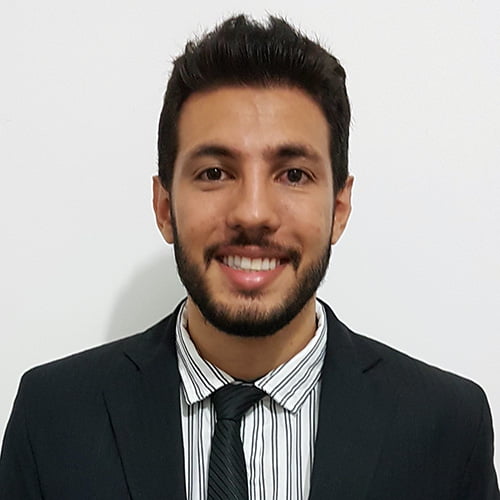
Adilson Junior
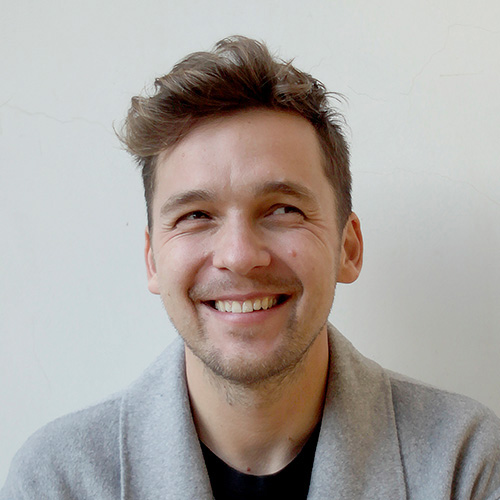
Adrian Krezlik
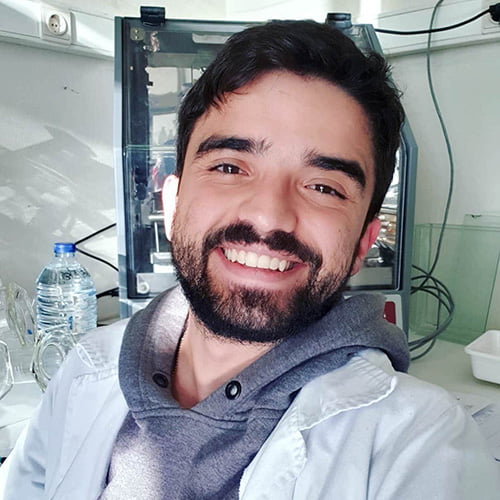
Adriano Silva
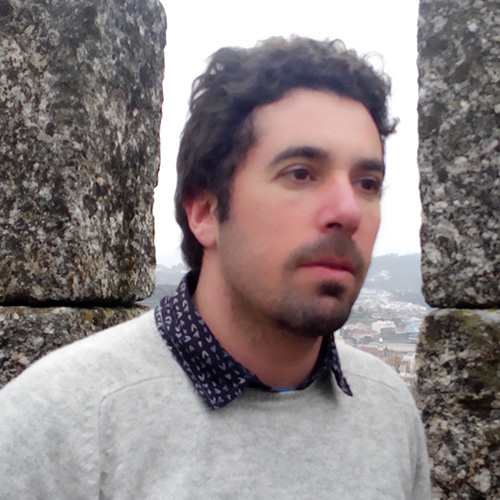
Albano Martins
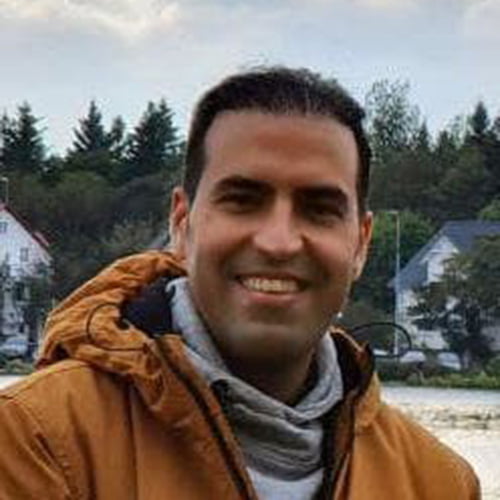
Amir Gholipour
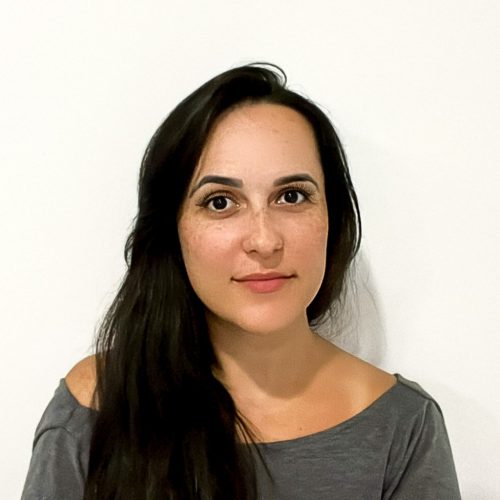
Ana Christ
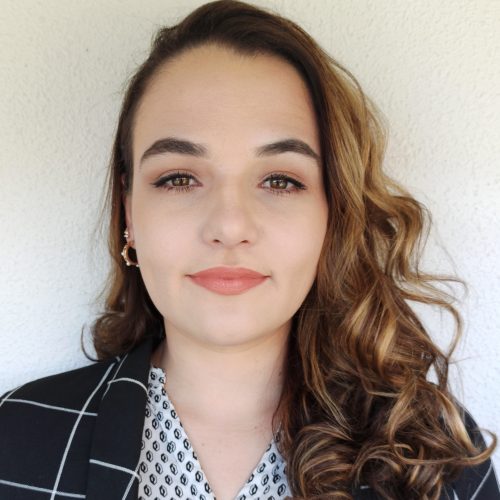
Ana Ferreira da Silva
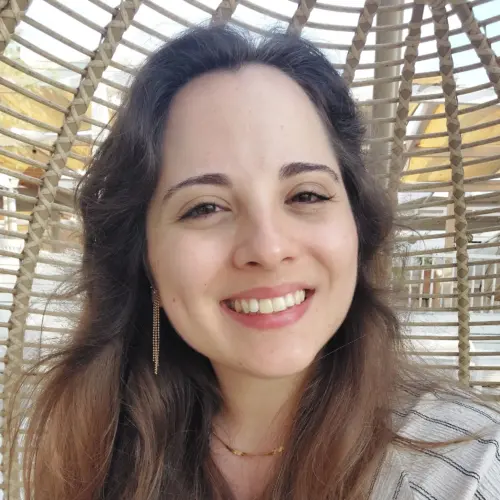
Ana Filipa Duarte
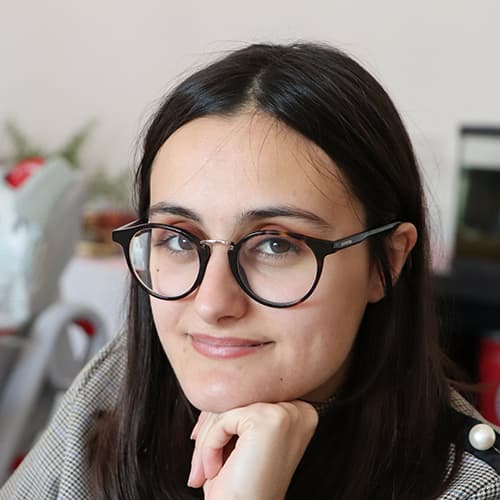
Ana Pais
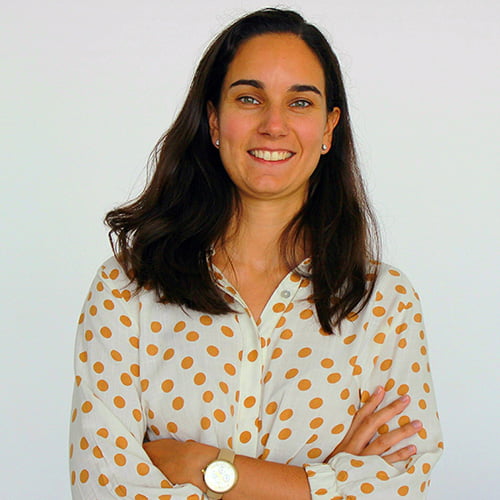
Ana Reis
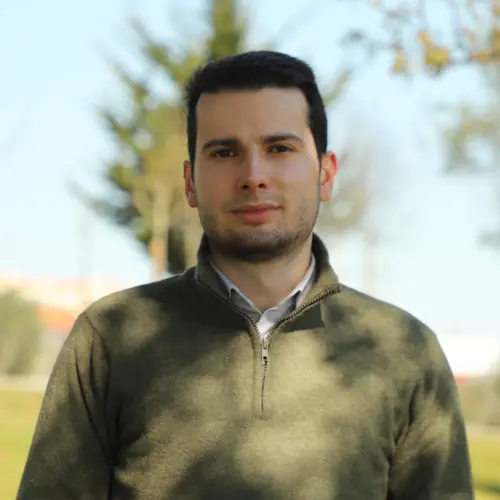
André Alves

Andre Cardoso
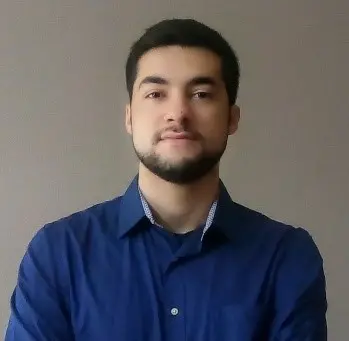
André Claro
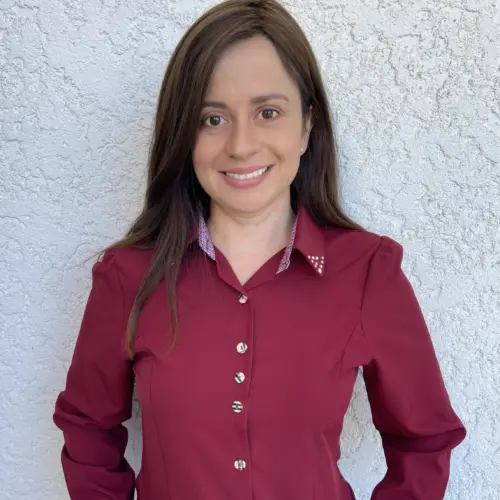
Andrea Tarazona
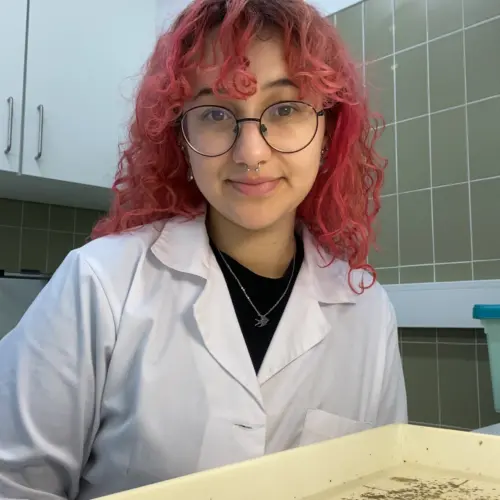
Andreina Zerega
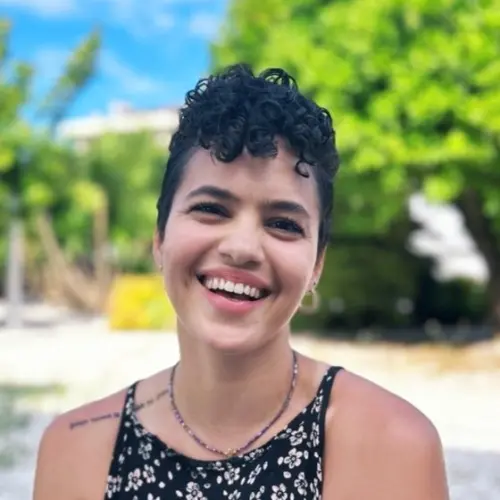
Andressa Oliveira
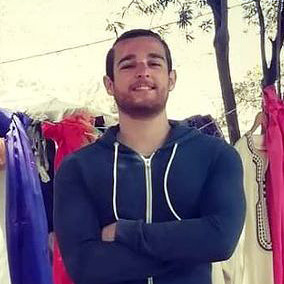
Andry Castro
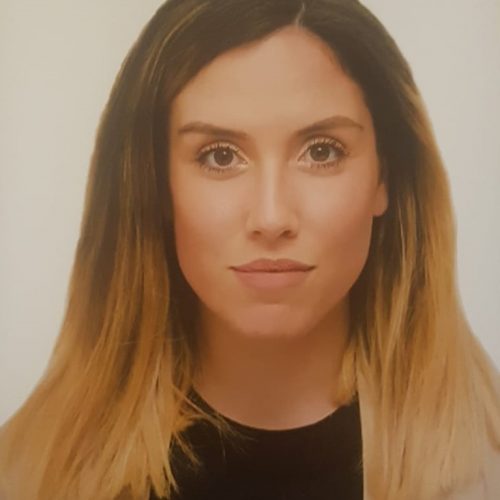
Annalaura Vuoto

Arturo Sousa

Aydan Aghabayli
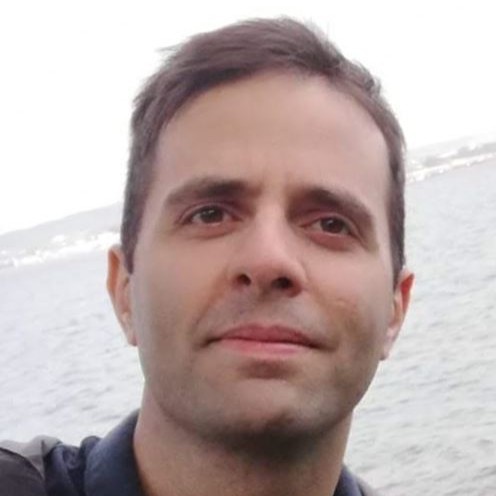
Bardia Naghshineh
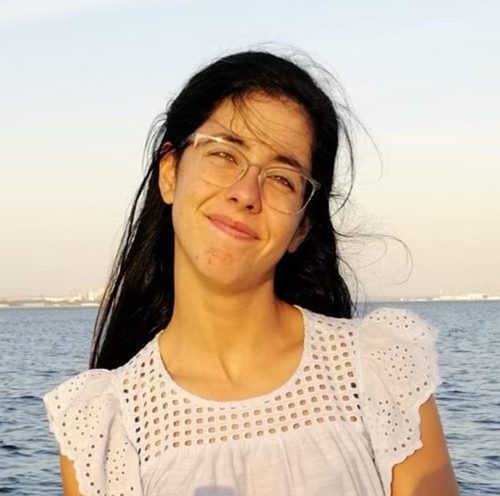
Beatriz Biguino
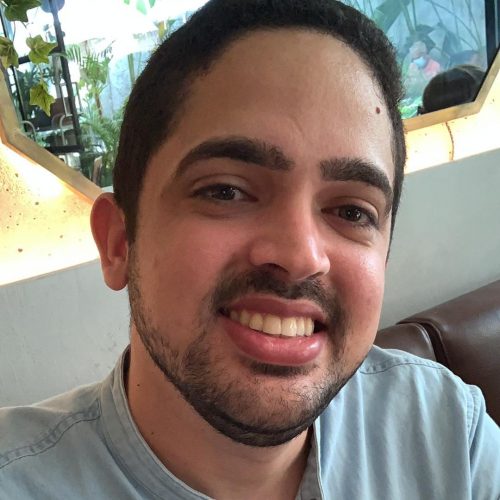
Breno Sousa
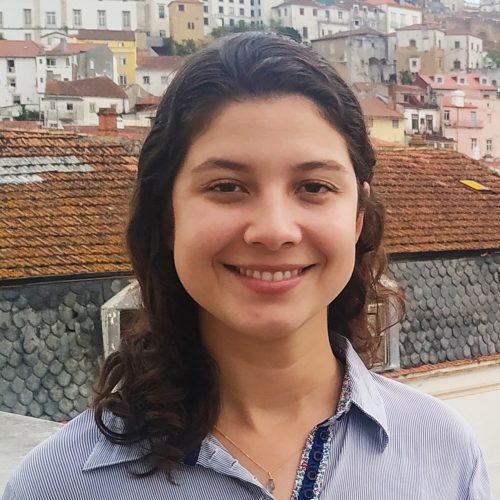
Bruna Thomazinho França

Camila Penso
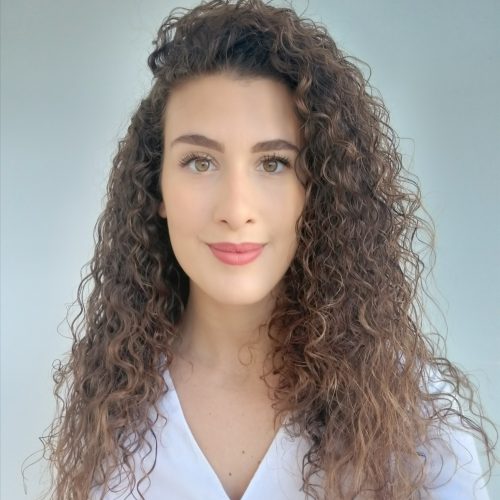
Carla Colombo
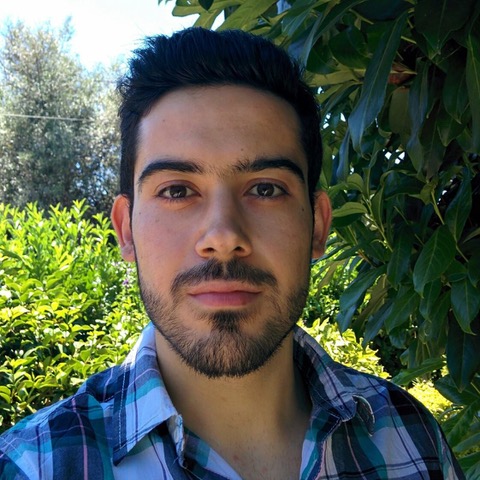
Carlos Carvalho

Carlos Hernandez
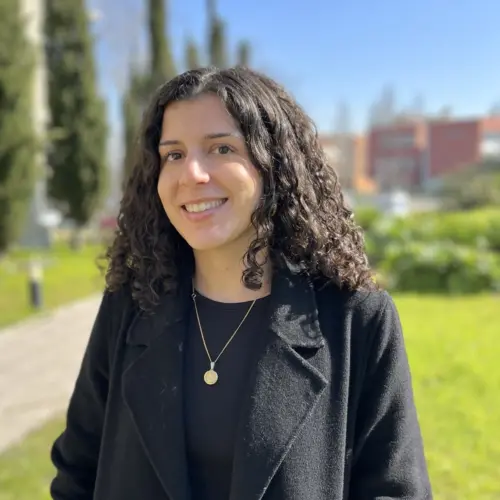
Catarina Santos
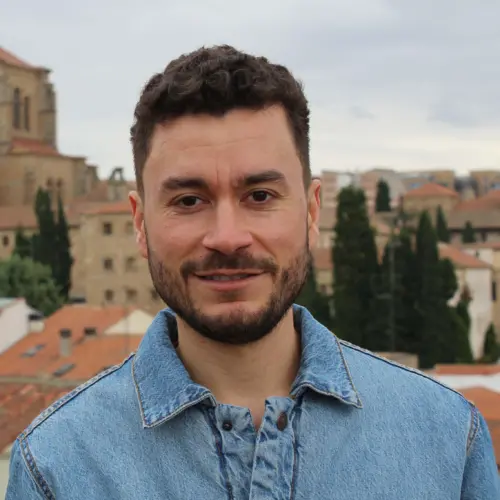
Cauê Rios
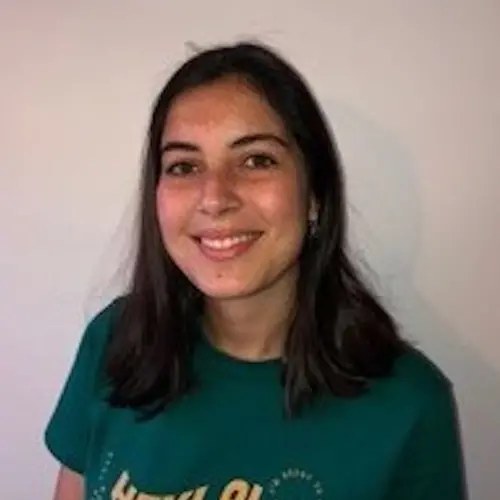
Cláudia Rodrigues

Cláudio Meireis

Constantino Justo
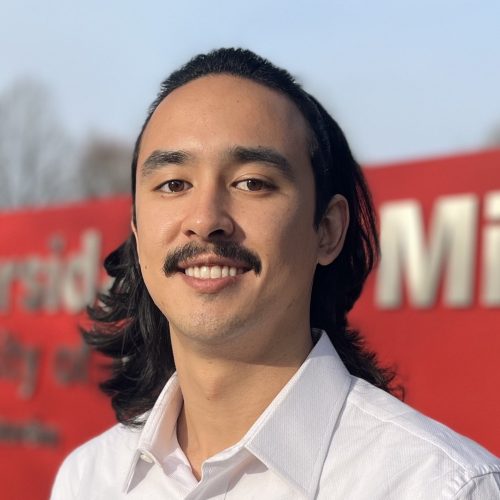
Daniel Freitas Lima
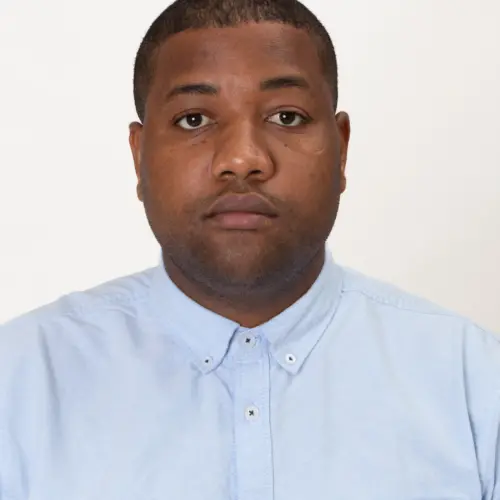
Erany Constantino

Eva Iñiguez Santamaria
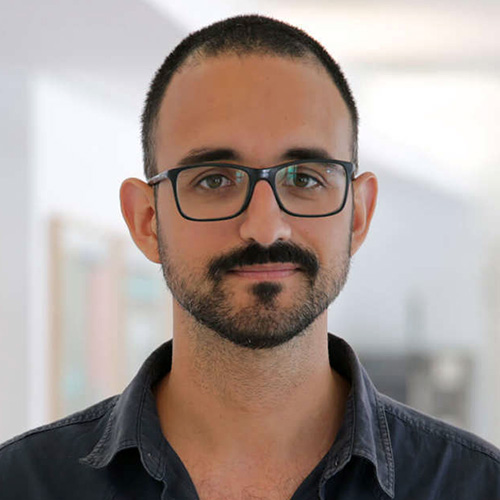
Fernando Ribeiro
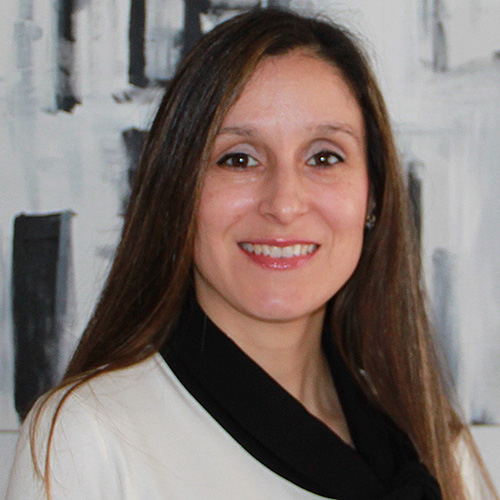
Filipa Corais
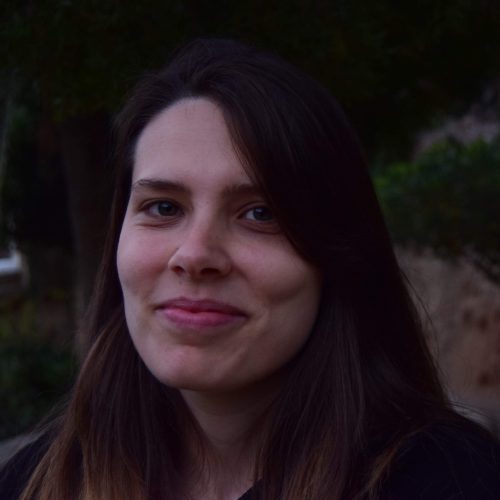
Filipa Ferreira
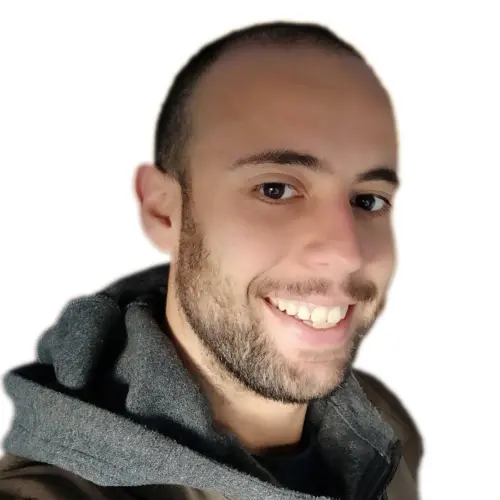
Gabriel Serra
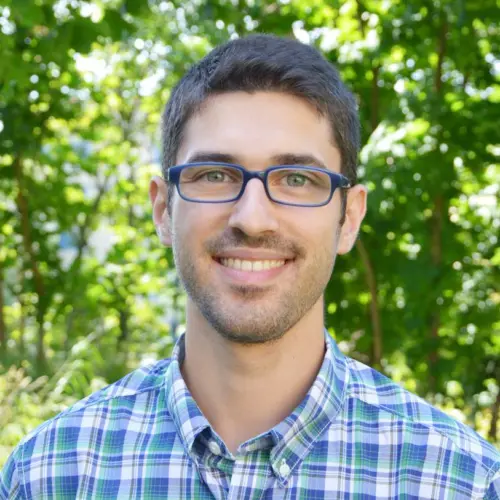
Gil Serrano
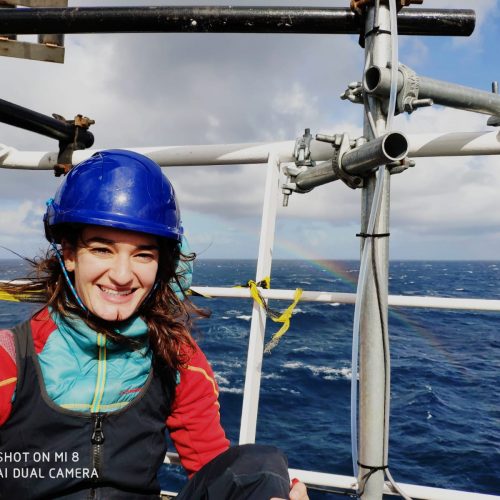
Giulia Sent

Glauco Nobrega
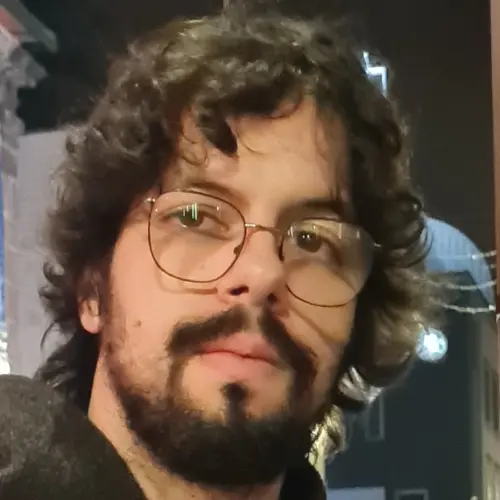
Gonçalo Carvalho

Hatice Gonçalves
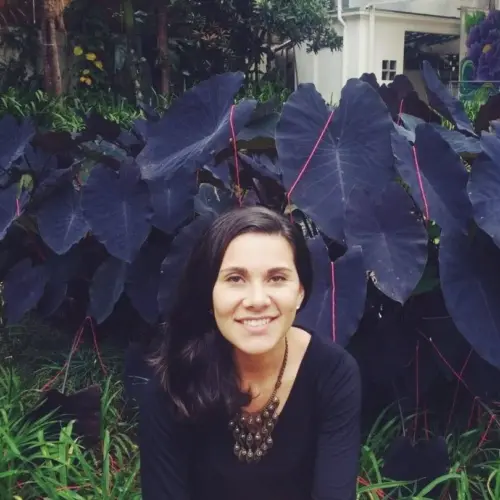
Heloisa Antunes

Isabel Pereira

Jabez Abraham
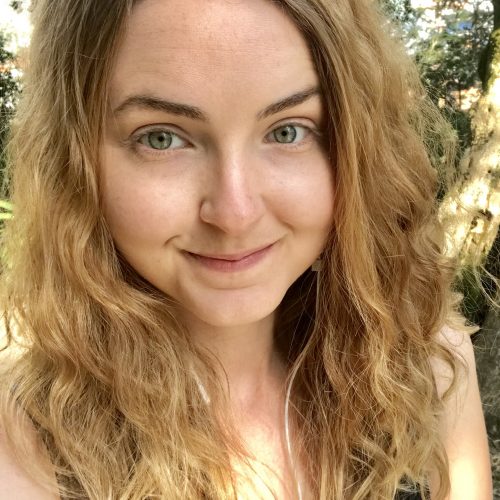
Jade Müller Carneiro
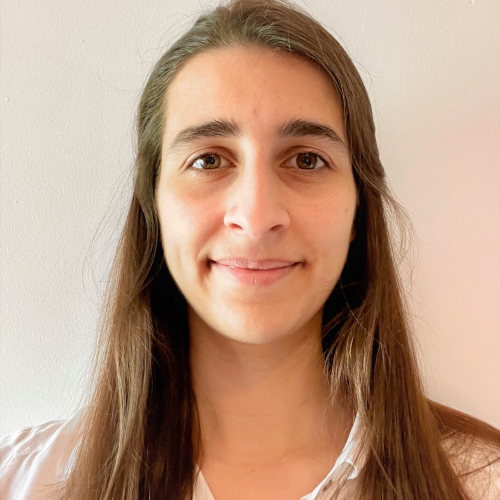
Joana Couceiro
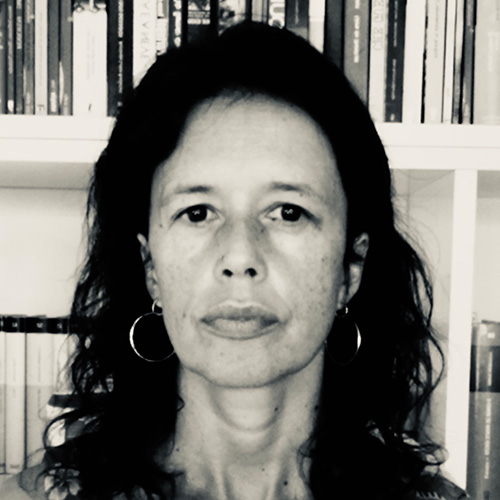
Joana Fernandes
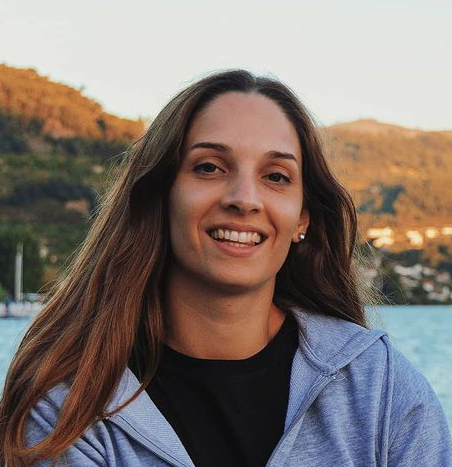
Joana Martins
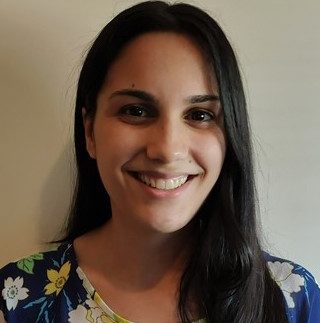
Joana Príncipe
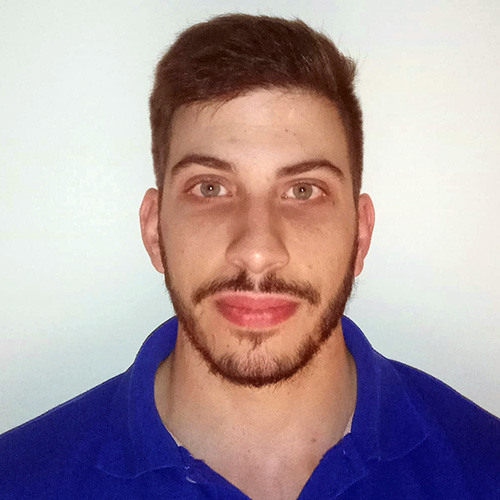
João Faria
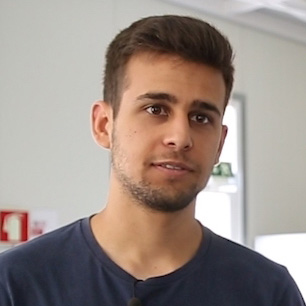
João Fonseca
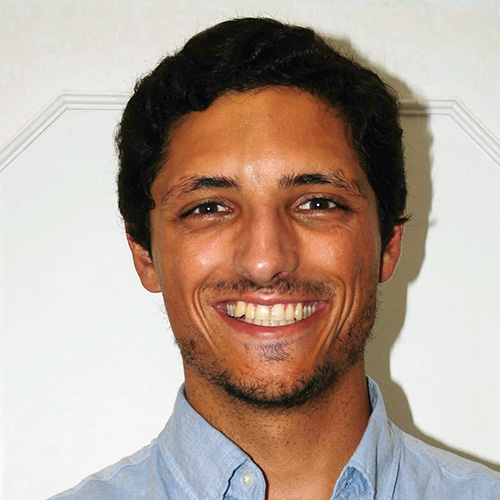
João Ribeiro
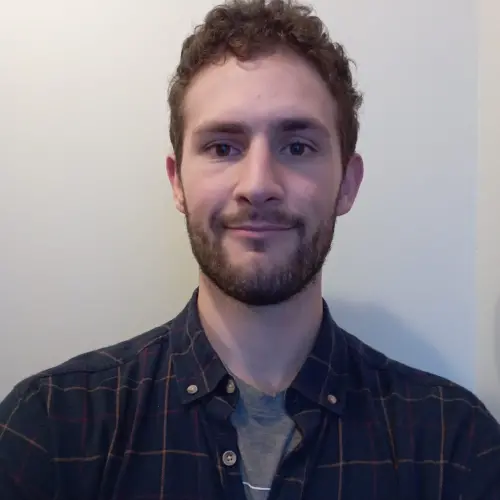
João Rocha
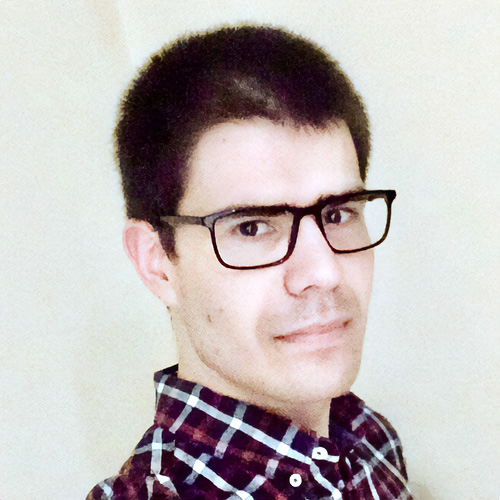
José Caetano

Lázaro Costa
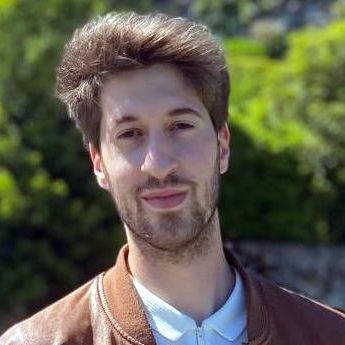
Leandro Madureira
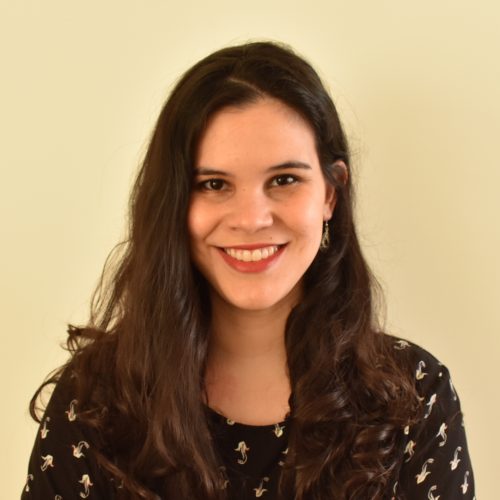
Livia Tavares Cosentino
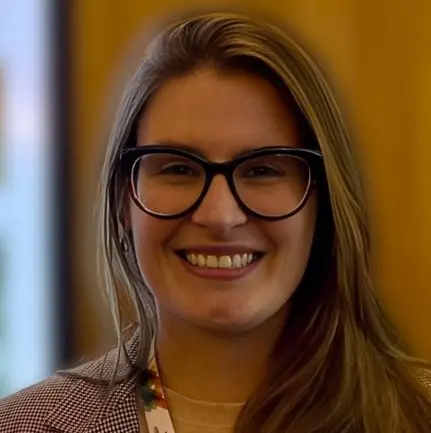
Luana Tesch
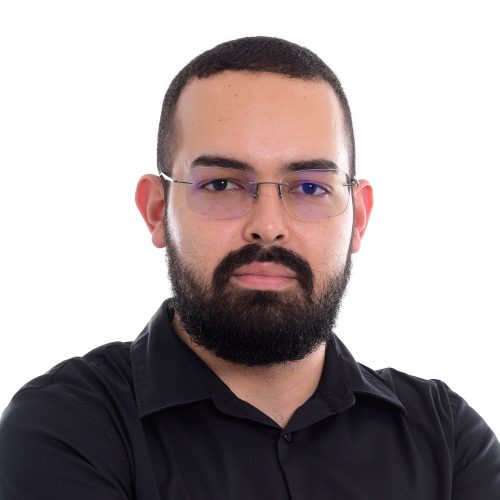
Lucas Paiva

Luís Oliveira
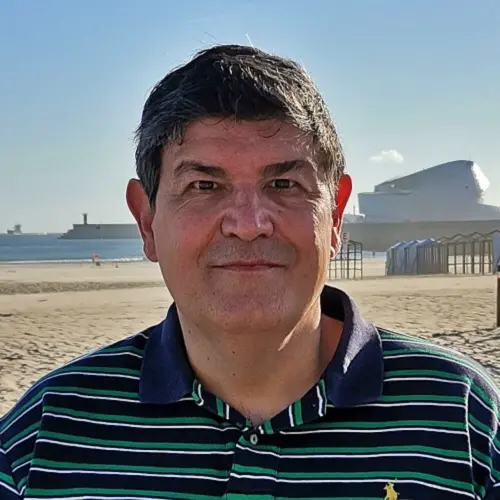
Luiz Claudio Navarro
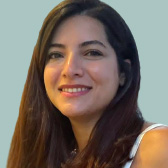
Mahla Shariatzadeh
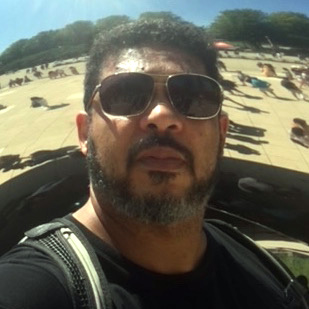
Marcos Motta
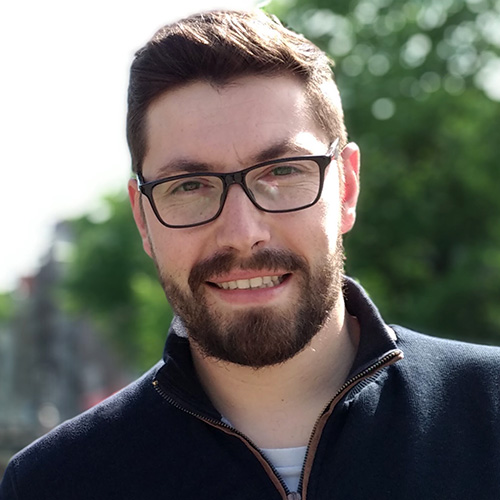
Marcos Tenente
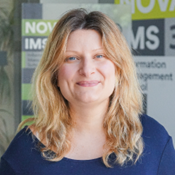
Maria Anastasiadou
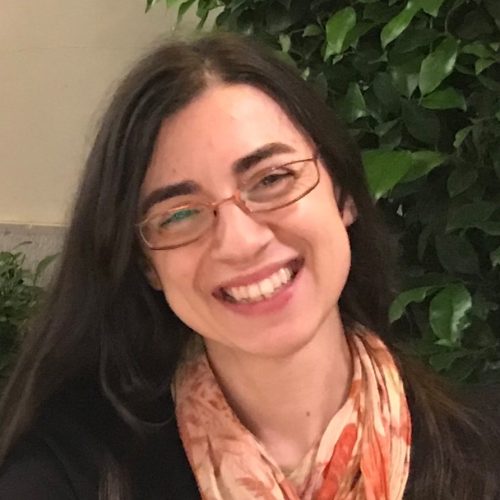
Maria José Morais
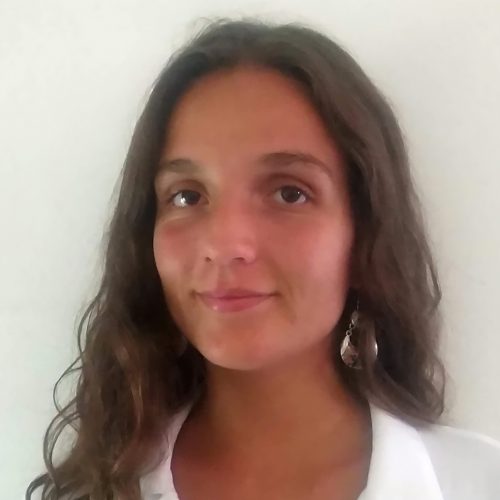
Mariana Dias
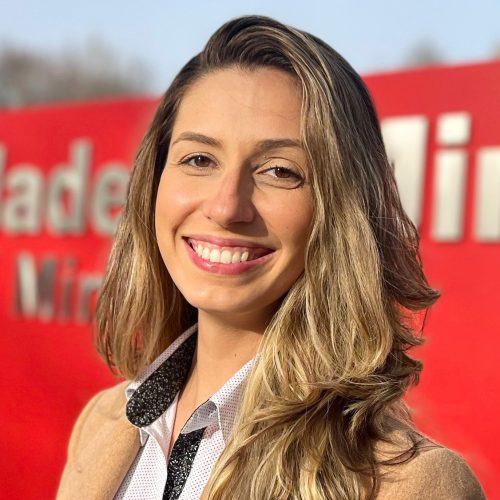
Marina Tenório
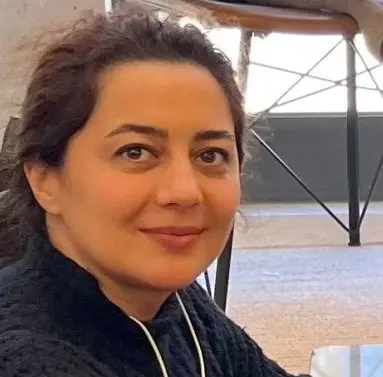
Maryam Salati
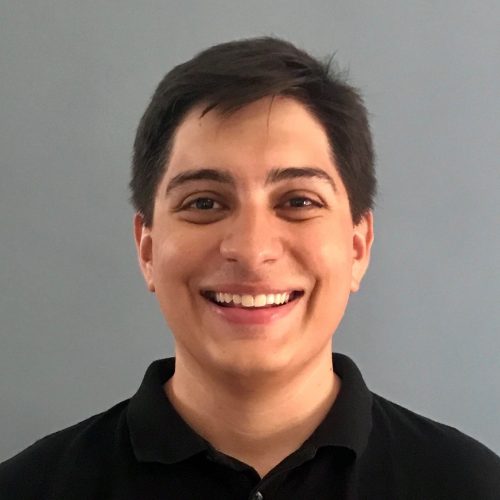
Matheus Gomes Correia
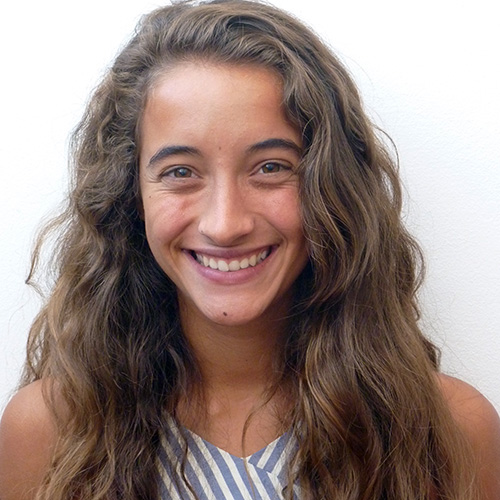
Matilde Marques
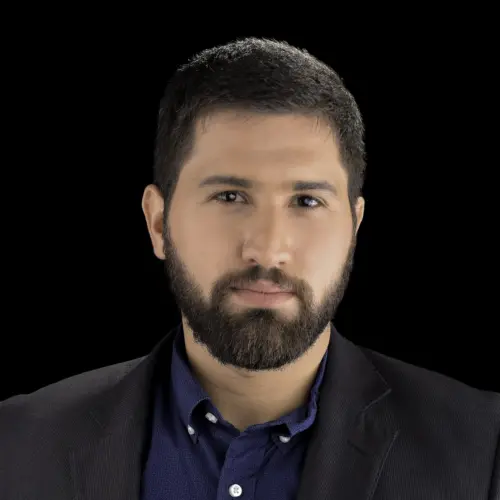
Maurício Bonatte
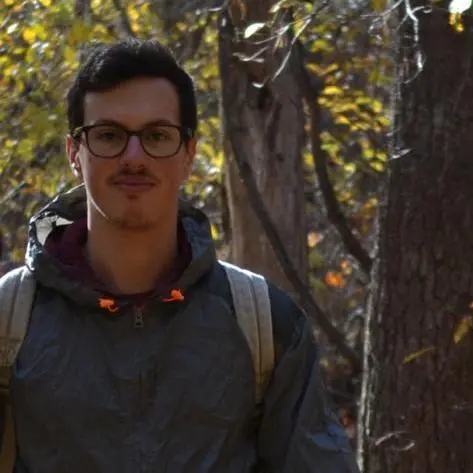
Miguel Fernandes

Miguel Lima
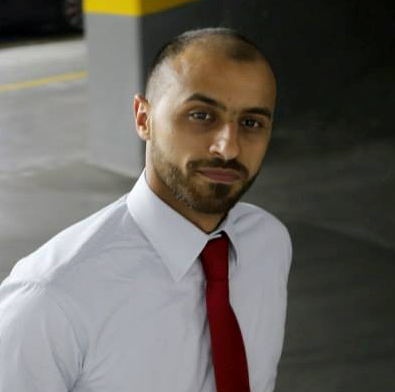
Mohamad El Sibaii
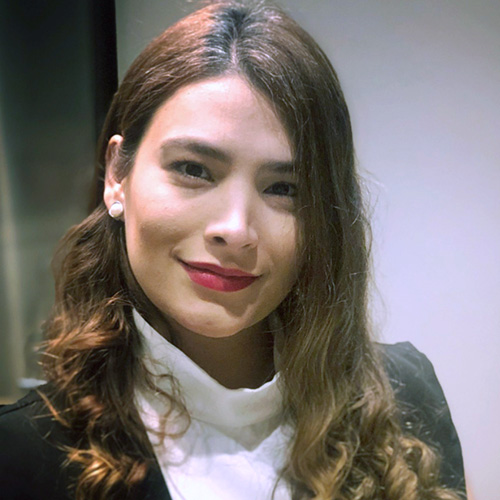
Nazanin Azimi Fereidani
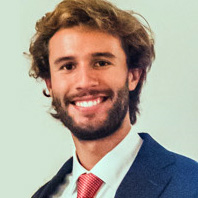
Nuno Saraiva

Orlando Lima

Paolo Tufoni
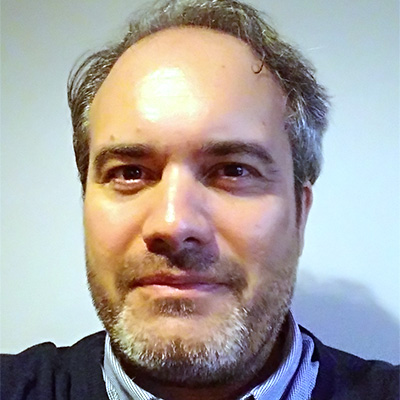
Paulo Costa
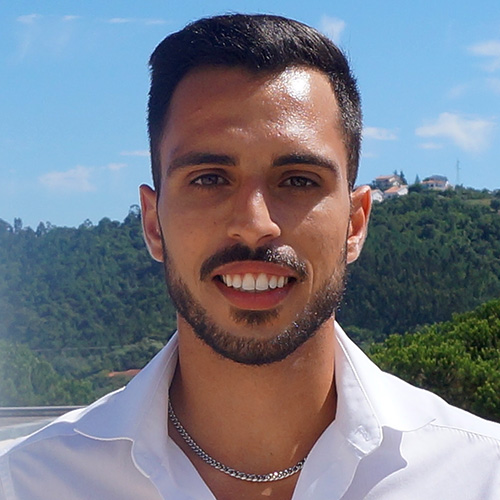
Paulo Nascimento
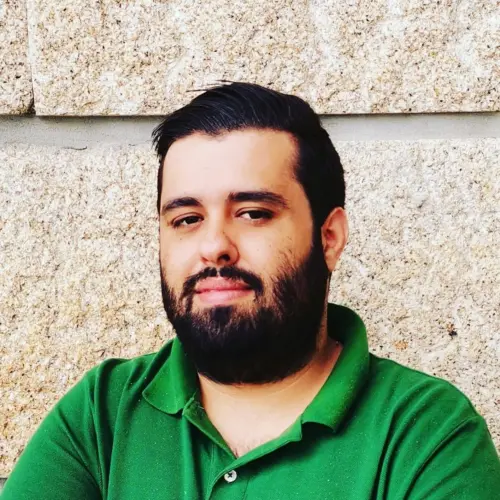
Pedro Oliveira
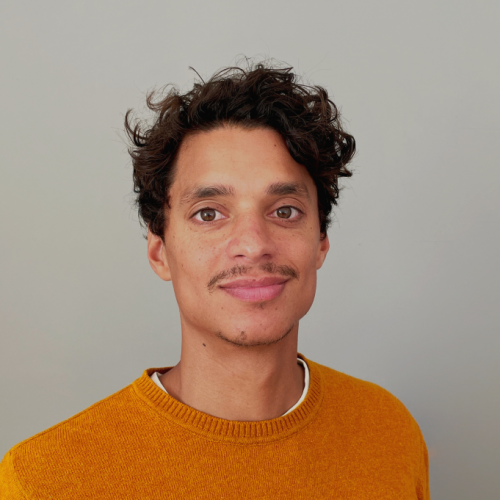
Phillip Probst
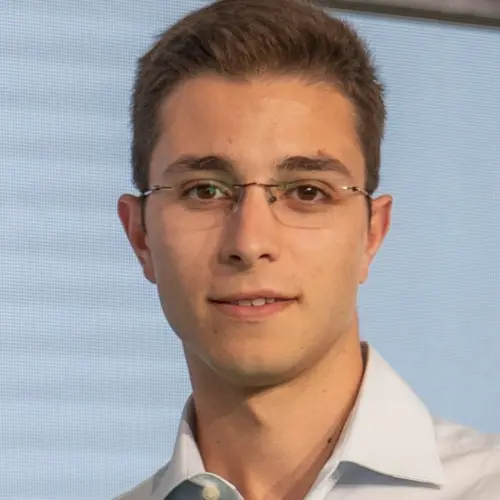
Rafael Anjos
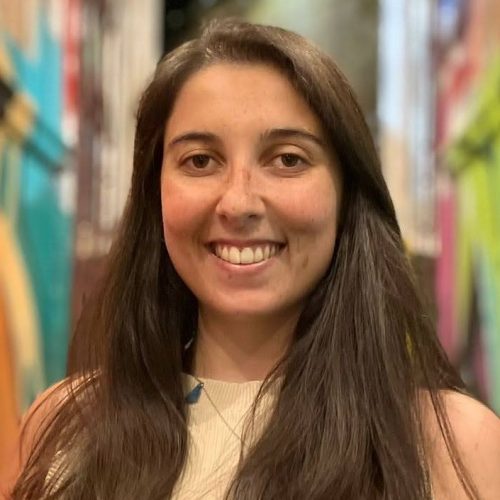
Raquel Fernandes
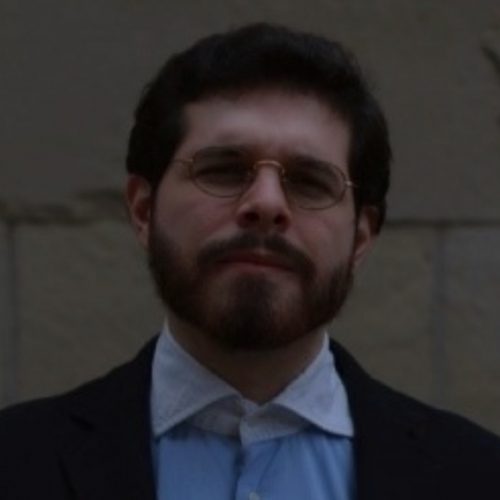
Raul Emilio Fretes
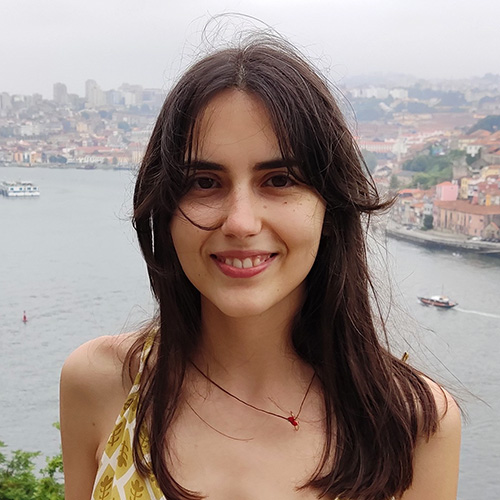
Rita Dantas
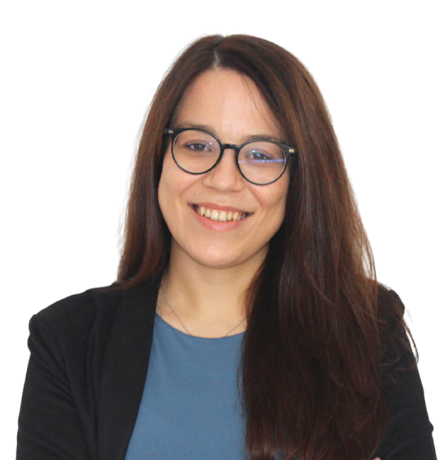
Rita Pereira
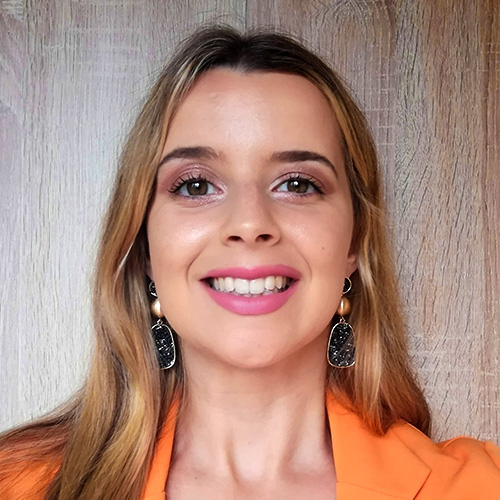
Rita Pombo
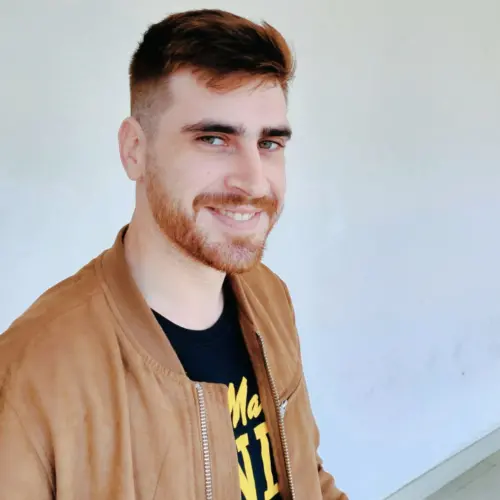
Rodrigo Paredes
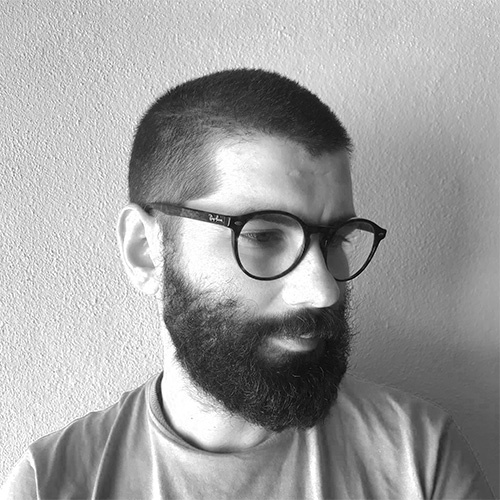
Rui del Pino Fernandes
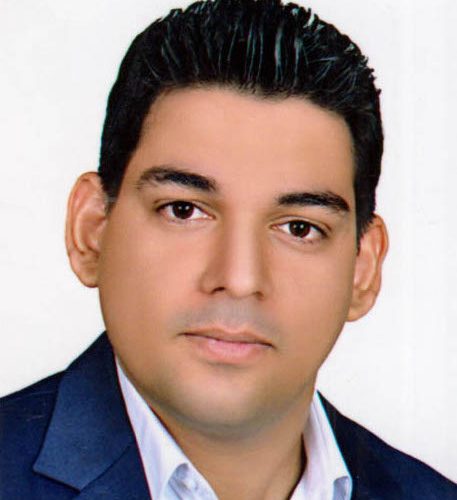
Saeid Lotfi
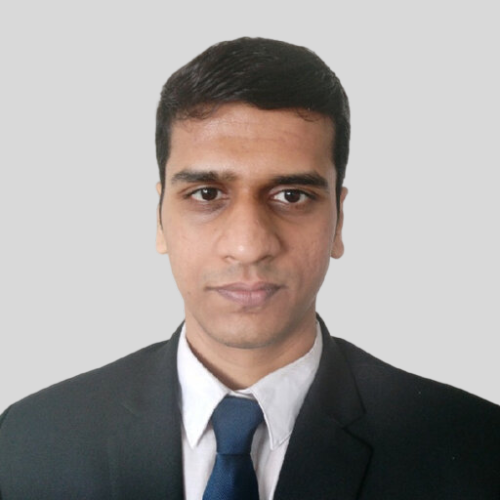
Samruddha Kokare
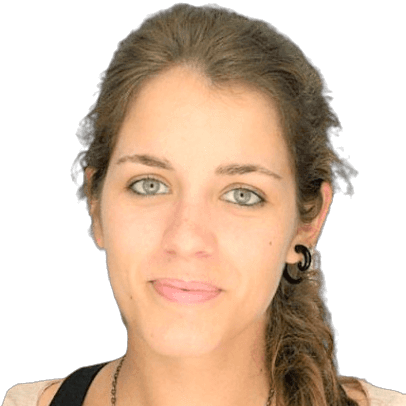
Sara Aparício
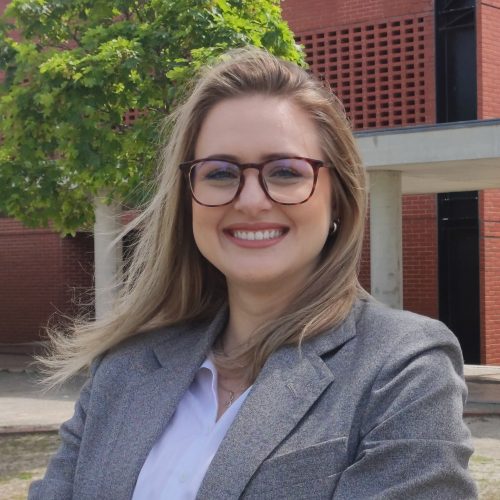
Sara Caroline Bona
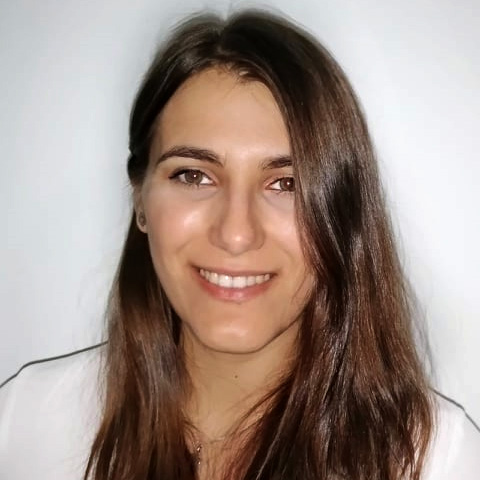
Sara Cerqueira

Sara Parece
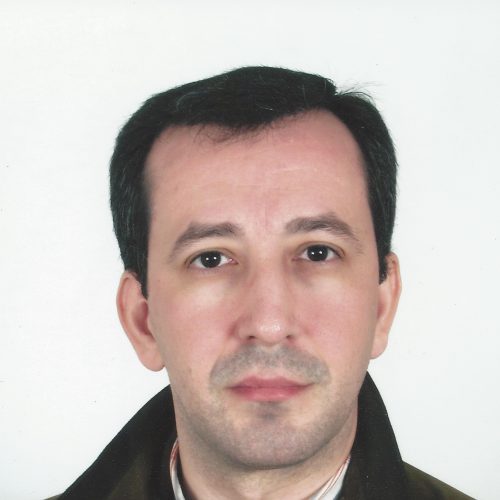
Sérgio Fernandes
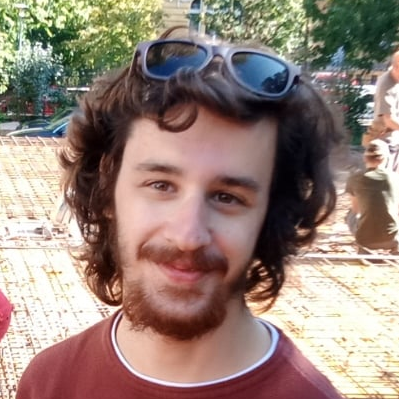
Simon Szabó
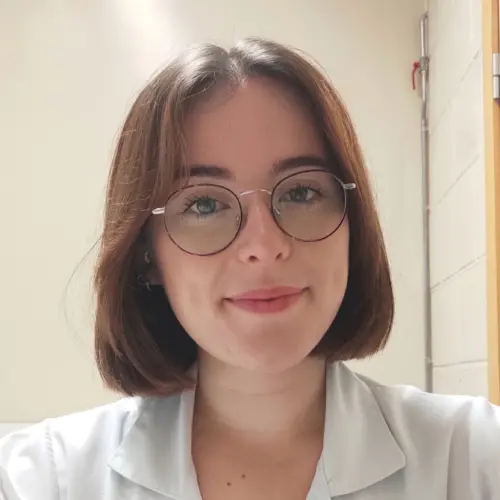
Simone Fernandes

Tiago Mindrico
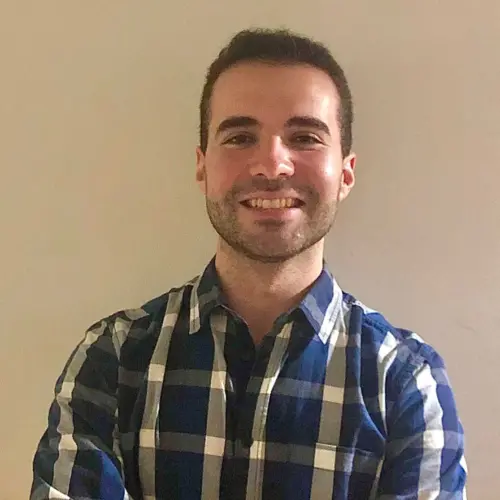
Tiago Ermitão
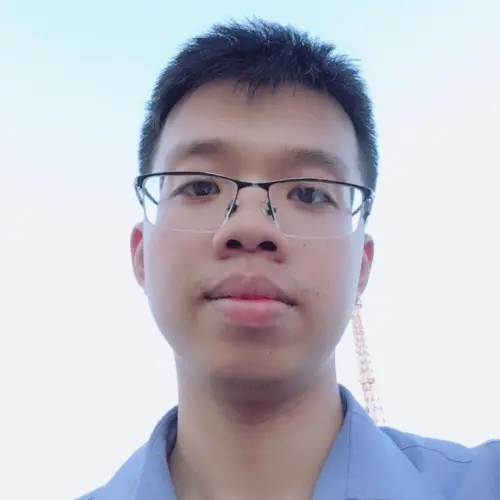
Tran Quang Minh
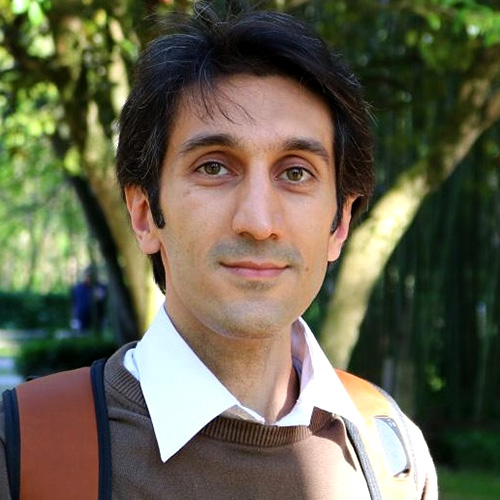
Vahid Rasouli

Vinicius Viena Santana
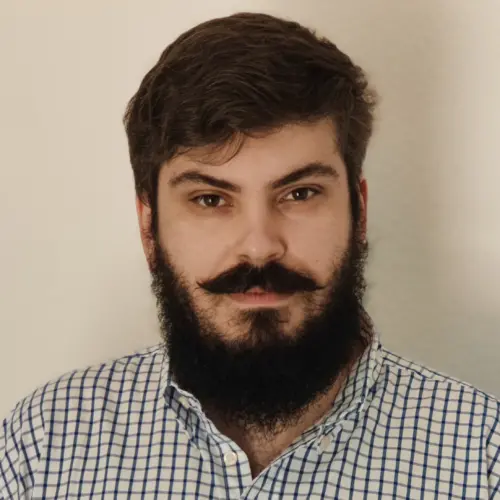
Vítor Sousa
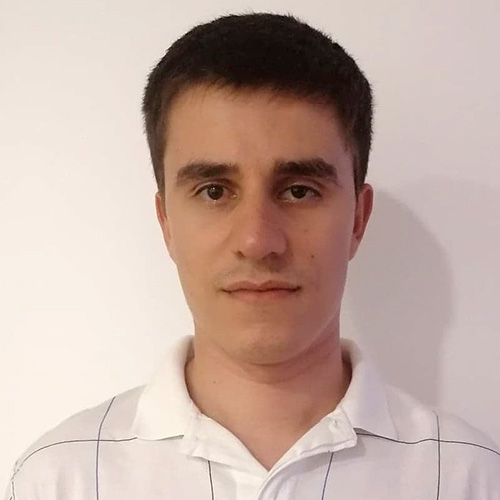
Willian Weber de Melo

PhD Student
Adilson Junior
Project Title
Development of optimized compressed earth blocks
Abstract
Currently, with the growing concern in adopting more sustainable technical solutions, the interest in earth as a building material has been renewed. The present proposal has as main objective the development of compressed earth blocks (CEBs) capable of meeting the requirements of safety, durability, comfort and hygiene proportional to the expectations of the modern world, contributing to the circular economy. Thus, it is expected to optimize the thermal behavior of the CEBs from the incorporation of low-cost natural materials and to study the incorporation of construction and demolition waste (CDW), without neglecting the optimization of its mechanical and structural performance. The desired products will represent more economical solutions, with reduced environmental impact, in a perspective of contribution to sustainable development. The results of the study will assist professionals who intervene in the rehabilitation and conception of new buildings using earthen construction.
Science Area
Sustainable Cities
Date Science
Host Institution(s)
University of Minho, ISISE
Supervisor(s)
Ricardo Mateus
Elisabete Teixeira
Profile
Adilson Junior has a master’s (2019) and a bachelor’s degree (2016) in Civil Engineering from the Federal University of Juiz de Fora. He currently participates as a collaborating member of ReVer+ project. He works in the field of sustainable construction and eco-materials through the reuse of Construction and Demolition Waste (CDW) in Compressed earth blocks (CEB). His background includes works involving the study of CDW, whether in its management or its incorporation in pervious concrete. His areas of scientific interest are: Earth Construction, CDW, Circular Economy, Vernacular Architecture, Thermal and mechanical optimization of building elements. Adilson has as personal interests: Sports, Reading, Cooking, Travel.

PhD Student
Adrian Krezlik
Project Title
Energy, Materials and Health in regenerative processes of common architecture for Sustainable Cities
Abstract
The Intergovernmental Panel on Climate Change urges industries to disrupt with changes. From design to build takes years, and decades to operate, making it a long-lasting machine that has a large impact on the climate and biodiversity and could be thought to regenerate the environment. The International Style, developed at the beginning of the 20th-century, paid no interest to climate or past knowledge. The digital turn in architectural design — computer simulation and performance optimization allows not only creating ideas and processes but also revisiting vernacular, historical, early-modern and counter-culture architecture and with accurate tools in the search for solutions for better daylight conditions, energy consumption or ventilation. This proposal looks for regenerative architecture schemes in three domains (Energy, Materials and Health) for rapidly changing: retrofitting and urbanizing, regions and those researching borders concepts like tradition/innovation, local/innovation to create a sustainable built environment. Finally, the proposal is in line with the New European Bauhaus and its local version the NEB Goes South that has been developed at the University of Porto and partners recently .
Scientific Area
Sustainable Cities
Climate Science & Climate Change
Host Institution(s)
Faculty of Architecture, University of Porto
Supervisor(s)
Jose Pedro Sousa
Rui J. G. Ramos
Profile
Architect graduated from Technical University of Łódź (Poland), worked for Zaha Hadid Architects in London (2009-2011), and later for Fernando Romero (2011-2012) and Rojkind Arquitectos (2013-2014) in Mexico City. In Poland, he founded the Contemporary Architecture Foundation that has organized more than seventy events dedicated to parametric design. He is interested in science-based architectural design, especially based on building performance, its impact on the environment. He lectured in Barcelona, Cairo, Copenhagen, Helsinki and Warsaw, to list some. He was Visiting Assistant Professor at Weißensee Kunsthochschule in Berlin. He is an architecture curator for the Polish Pavilion for the EXPO 2020. Adrian has started PhD research at FAUP in 2019 and joined CEAU in 2020.
Email:adrian.krezlik@gmail.com

PhD Student
Adriano Silva
Project Title
Optimization of municipal solid waste management systems towards sustainability.
Abstract
The project aims the development of (i) data acquisition strategies for waste management systems, using the northeast of Portugal as a model region, and (ii) innovative technological solutions to valorise solid waste streams into carbon nanostructured materials (CNMs), with applicability in the treatment of leachate waters. Learning algorithms will be applied to characterize the waste, and optimization algorithms will be used to optimize waste transportation considering the consumer’s behaviour. Regarding waste valorization, CNMs will be prepared from plastic solid wastes by chemical vapor deposition. These as-synthesized CNMs will be employed as precursors to produce catalysts and membranes for advanced oxidation and separation technologies to treat landfill leachates. The project will be conducted in collaboration with a waste management company (Resíduos do Nordeste) dealing with the municipal solid waste generated in the northeast region of Portugal.
Science Area
Sustainable Cities
Data Science
Host Institution(s)
Centro de Investigação de Montanha (CIMO), Instituto Politécnico de Bragança (IPB)
Centro de Investigação em Digitalização e Robótica Inteligente (CeDRI), Instituto Politécnico de Bragança (IPB)
Laboratório de Processos de Separação e Reacção – Laboratório de Catálise e Materiais (LSRE-LCM), Faculdade de Engenharia da Universidade do Porto (FEUP)
Supervisor(s)
Hélder Teixeira Gomes
Ana Isabel Pinheiro Nunes Pereira
Adrián Manuel Tavares da Silva
Profile
Chemical Engineer, Brazilian, and enjoying all the opportunities to make the world a better place. My interest is to continuously learn and evolve as a person and researcher, using the feedback and help of other people as an instrument. I believe collaboration is the key to success. For this reason, I love to share my work and hear from other people what they are working on. My scientific interests are focused on developing a good thesis work, aligning scientific quality with social benefits achieved via what I’ve done. I have already worked with the synthesis of nano and macro-structured materials for biomedical and heterogeneous catalysis applications in my academic life. Currently, I am focused on optimizing municipal solid waste management systems (i.e., optimization of collection routes and synthesis of carbon nanotubes using plastic solid wastes for posterior application in wastewater treatment technologies).

PhD Student
Albano Martins
Project Title
Bioclimatic design in urban context through the recovery of vernacular solutions
Abstract
The bioclimatic solutions of vernacular architecture and its principles of adapting the building to the climate constitute important lessons in constructive and environmental sustainability. Thus there is a strong correlation between construction and morphological characteristics and the respective local climatic contexts.
Contemporary architecture ends up neglecting these issues to a certain extent, where traditional and empirical knowledge has been lost over time, as well as cultural identity, giving rise so often to constructions disconnected from the characteristics of the “region”, and without sustainable basis in constructive and environmental terms.
The PhD work plan intends to reflect on the advantages of recovering the empirical knowledge of vernacular construction, being able to serve as a guideline in the eventual creation of specific regulations. These guidelines are also suitable for application in countries with similar climatic characteristics, highlighting the traditional materials available locally and the techniques used in construction, together with the possibility of linking these constructive solutions to the contemporary technologies available.
Scientific Area
Sustainable Cities
Climate Science & Climate Change
Host Institution(s)
Faculty of Engineering, University of Porto
Supervisor(s)
Fernando Brandão Alves
Helena Corvacho
Profile
Education:
– PhD Student in Civil Engineering – Spatial Planning and Environment at the Faculty of Engineering of University of Porto, Portugal (MIT Portugal Program – 2020 FCT-MPP2030 PhD Grant);
– MSc in Civil Engineering – Building Construction at the Faculty of Engineering of University of Porto, Portugal.
Research Interests:
– Spatial Planning and Environment;
– Bioclimatic Design and Thermal Comfort;
– Climate Science and Energy Efficiency;
– Urban Design and Built Environment;
– Vernacular Architecture and Building Construction.

PhD Student
Amir Gholipour
Project Title
Sludge treatment by earthworm-enhanced reed beds towards smart-cities
Abstract
The objective of this study is to demonstrate the potential of the sludge-treatment-reed-bed (STRB) assisted with earthworm as a sustainable solution for sewage sludge management within a smart city plan. This alternative solution can be used instead of conventional ones that are costly, low in life expectancy and by-products need further treatment. This cost-effective project will be developed in cooperation with the water industry (Frielas wastewater-treatment plant) that will supply sludge samples and validate the benefits of this innovative technology. The project comprises earthworms’ roles in sustainable sewage sludge management, dewatering and stabilization processes, evapotranspiration effect in the dewatering and the assessment of the operational requirements for STRB technology to develop a technical and economic evaluation analysis. The knowledge gathered from this research will contribute to minimize environmental impacts of climate changes as well.
Science Area
Sustainable Cities
Climate Science & Climate Change
Host Institution(s)
Instituto Superior de Agronomia, University of Lisbon
Supervisor(s)
Elizabeth Duarte
Ana Galvão
Rita Fragoso
Profile
Amir Gholipour is MSc in water and wastewater engineering and Bachelor degree in civil engineering. Has experience in dealing with Nature based Solutions (NBSs) for wastewater treatment and reuse. He founded a start-up Company in Iran -TIGT, which provides green solutions and services for wastewater management.

PhD Student
Ana Christ
Project Title
Understanding the relationship between perceived and objective bicyclist safety
Abstract
Modern vehicles are capable of sharing information (traffic conditions, entertainment services, and more) between other vehicles on the road. Because of this possibility, there are safety breaches that can put the vehicle and drivers/passengers at risk. Our work is focused on developing an intrusion detection system to increase security levels.
Scientific Area
Sustainable Cities
Host Institution(s)
Instituto Superior Técnico – University of Lisbon
Supervisor(s)
Filipe Moura
Carlos Roque
Profile
Ana is a PhD student at Instituto Superior Técnico – University of Lisbon. Member of the European Training Network in Urban Mobility (Doctoral Training Network) at EIT Urban Mobility. Her research focuses on the perception of objective cycling safety. She completed her MSc in Civil Engineering and her Architecture and Urbanism degree at the Federal University of Rio Grande do Sul (UFRGS). In parallel with his academic research, she worked for CLARE – Architecture e Engineering as an Architect. The areas of interest for research are: sustainable urban mobility, urban cycling, safety perception, and life cycle assessment.

PhD Student
Ana Ferreira da Silva
Project Title
Monitoring of municipal waste streams and their transformation into geopolymers
Abstract
Two of the main issues big cities face are clean and safe water supply and efficient municipal solid waste (MSW) management. As a new vision, MSWs can be valorized by transforming them into high added value products, such as geopolymer membranes (GPMs) for water treatment (WT) applications. Geopolymers are aluminosilicates forming long-range, covalently bonded networks that have been largely explored as concrete replacers, but they may be molded to acquire any geometric shape, such as cylindrical membranes. This research will focus on fabrication approaches of GPMs from matured compost obtained by biological and composting treatments of the organic fraction of MSWs for the development of clean technologies for solid waste management (SWM) in sustainable cities. For the preparation of GPMs, different additives, precursor ratios, and mature conditions will be used to tune the properties of GPMs and yield excellent rates in WT. Life-cycle assessment will also be evaluated.
Scientific Area
Sustainable Cities
Host Institution(s)
Polytechnic Institute of Bragança
Supervisor(s)
Hélder Teixeira Gomes
José Luis D. de Tuesta
José Alcides S. Peres
Profile
Environmental Engineer, M.Sc. in environmental technologies and currently a Ph.D. student at UTAD in the Chemical and Biological Sciences program. I believe that technologies that foster sustainable development and the circular economy are of utmost importance, so I focus my interests on researching solid waste recovery, life cycle analysis and wastewater treatment. Closing the loop of a product is something that consolidates the economy, the environment, and the society, so developing materials that contain solid waste in their composition to treat wastewater generated in their production, as is the case of geopolymer membranes produced from solid waste urban systems, used in the treatment of leachate, makes me see that this is one of the essential technologies for sustainable cities.
Email::anapaula.silva@ipb.pt

PhD Student
Ana Filipa Duarte
Project Title
Quantitative modelling of the ocean with acoustic waves
Abstract
Seismic oceanography has proven its value to imaging the ocean in high-resolution using conventional multichannel reflection seismic data (MCS). The recorded acoustic responses depend on contrasts in ocean temperature and salinity. The processed data enable tracking interfaces between thermohaline layers and the study of fine-scale processes spatially. However, their interpretation has been focused on qualitative methods, and integration with dynamic ocean models is still unexplored. In this PhD, I will develop and implement methods to predict spatially ocean temperature and salinity through the integration of MCS data with direct observations (e.g., CTD, ARGO) in a spatial data science framework. These methods will be applied to existing data from Gulf
of Cadiz. As a complementary and exploratory approach, and since MCS data acquisition is complex and expensive, I will look at using high-resolution echosounders mounted in autonomous underwater vehicles to model in real-time the ocean.
Scientific Area
Earth Systems: Oceans to Near Space
Climate Science and Climate Change
Host Institution
CERENA, Instituto Superior Técnico, University of Lisbon
Supervisor(s)
Leonardo Raposo Pereira
Renato Santos Mendes
Profile
Ana Filipa Duarte is currently a PhD candidate of Earth Resources at Instituto Superior Técnico specializing on Seismic Oceanography. Also holds a bachelor’s degree in Geological and Mining Engineering and a master’s degree in Petroleum Engineering from Instituto Superior Técnico. During the master’s, she had major interests in Geophysics and Geostatistics. In the last year of the degree, she enrolled in an internship at Heriot-Watt University, in the Lyell Research Centre, Edinburgh, where she developed the master’s thesis in seismic reflection interpretation. That project had the purpose of interpreting the morphology and extent of an igneous intrusion from Early Cretaceous and its influence in the Falkland Plateau Basin. In 2020 she joined a project to analyze and bring knowledge about COVID-19 disease, in Instituto Superior Técnico, where she collaborated with the mapping of the infection risk for Portugal, and implemented a an early warning system for anomalous values of COVID-19 incidence in the Metropolitan area of Lisbon, allowing policy makers to better act on contingency plans. Between 2021 and 2023, she was researcher collaborator at +ATLANTIC (Collaborative Laboratory), where she established modelling and analysis of the ocean having Seismic Oceanography as a tool to increase the resolution of temperature and salinity models of the water column in the North Atlantic Ocean, integrating real data from multiple sources.

PhD Student
Ana Pais
Project Title
Bio-inspired gyroid foams by machine learning optimization and meshless methods
Abstract
The aim of PhD project is to conceive improved bone implants and prosthesis based on the gyroid structure. Gyroid foams allow to obtain suitable mechanical properties to mimic human bone contributing to the performance of the implant in the patient. To do so, innovative tools such as machine learning will be used. Moreover, it is important to mention that the gyroid structure can be used for structural purposes, and thus, build lighter yet structurally sound parts.
Scientific Area
Digital Transformation in Manufacturing
Data Science
Host Institution(s)
Faculty of Engineering, University of Porto
Supervisor(s)
Jorge Belinha
Fernando Jorge Lino Alves
Profile
My name is Ana Pais and I am a doctoral student at FEUP. I got my MSc also from FEUP in 2020 and decided to apply for a MPP PhD grant to pursue the research I had started during my MSc. My research interests are Bio-inspired Structural Optimization and Additive Manufacturing.
Email:up201505588@fe.up.pt

PhD Student
Ana Reis
Project Title
Full integration of water and energy nexus in water supply systems
Abstract
Water distribution systems (WDS) are energy-intensive infrastructures that rely on water storage plants and energy for delivering water to consumers. The combination of three complementary trends offer water companies opportunities for a novel positioning in the energy sector: the flexibility in scheduling pumping operations leading to implementing demand response (DR) strategies with benefits to water and energy utilities, current investments in renewable energy sources (RES), new dynamic pricing (DP) tariffs in smart grids. Therefore, this research aims to develop novel models and algorithms to cope with the increased complexity of real-time optimization of energy resources in WDS operation encompassing the management of DR actions, energy availability from RES, time-differentiated tariffs and participation in emerging energy markets. Mathematical programming models will be developed accounting for the network infrastructure of water and energy sectors, exploiting their synergies.
Primary Scientific Area
Sustainable Cities
Host institution(s)
Institute for Systems Engineering and Computers at Coimbra (INESC Coimbra)
Supervisor(s)
Carlos Alberto Henggeler de Carvalho Antunes
António Gil Andrade-Campos
Email:ana.reis0790@gmail.com

PhD Student
André Alves
Project Title
Integrating land use into the energy transition: spatial dynamics, policies and directions
Abstract
The transition from fossil fuels to renewable energy sources is a strategic goal in many countries, driven by economic concerns and the imperative to address climate change. However, land-use conflicts associated with the increase of renewable energy production sites have led to the loss of natural and semi-natural areas, casting doubt on the sustainability of this infrastructure deployment. Additionally, there is also a concern to increase efficiency of energy consumption, namely urban areas and their morphology. Therefore, this PhD project aims (i) to assess the impacts resulting from the implementation of the renewable energy production infrastructures; (ii) to analyse the connection between urban form and renewable energy consumption patterns; and (iii) to develop various spatial scenarios for 2050 to optimize land use in aligning urban form with renewable energy consumption patterns. The achieved results may help decision-makers to create more effective energy transition policies and integrating energy considerations into spatial planning, namely through land management instruments.
Scientific Area
Sustainable Cities
Climate Science and Climate Change
Host Institution(s)
Centre of Geographical Studies, Institute of Geography and Spatial Planning, University of Lisbon.
Supervisor(s)
Eduarda Marques da Costa
Eduardo Gomes
Samuel Niza
Profile
Degree in Geography. MSc in Geographical Information Systems and Modelling applied to Spatial Planning. Currently doing research at the Centre of Geographical Studies pursuing amd PhD in Geography with a focus in Regional and Urban Planning at the University of Lisbon IGOT – Institute of Geography and Spatial Planning. My research intersects planning, sustainability, land-use and renewable energy.

PhD Student
Andre Cardoso
Project Title
Framework for ergonomic assessment in collaborative robotic systems
Abstract
The potential of Human-Robot Collaboration (HRC) is far from exhausted. Currently, Collaborative robots (COBOTs) are advertised for ease of commissioning and the capacity to operate without fencing, and thus share the workspace with humans. Even when the COBOT is programmed to admit some degree of interaction with the worker, the robot system is “socially blind” to Ergonomics & Human Factors (E&HF). The lack of a valid and sound ergonomics framework cognizant of the implications of HRC, as well as the inexistence of a correlation between risk assessment/prevention and complementary robot behaviors, hinders the progress in this direction. To evolve the state of the art of current collaborative robots in the manufacturing industry, this project propose the creation of a real-time assessment framework appropriate to the HRC tasks. This expected outcome will support the next step towards collaborative robots capable of understanding and adapting to improve the physical and cognitive ergonomics of human coworkers.
Science Area
Digital Transformation in Manufacturing
Host Institution(s)
University of Minho
Supervisor(s)
Ana Colim
Estela Bicho
Ana Cristina Braga
Profile
André Cardoso has a degree in Applied Biology and an MSc in Sciences and Technology of Environment from the University of Porto (Portugal) and an MSc in Human Engineering from the University of Minho (Portugal). He is a researcher at University of Minho. He is also an Invited Assistant lecturer in Systems and Production Systems at the University of Minho. In the past years, he also worked as a consultant for the ergonomics laboratory of the school of engineering of University of Minho. His areas of scientific interest are Biomechanics, Applied Ergonomics, Muscle Physiology, Anthropometry, and Occupational Safety, and Hygiene. At a personal level, he has a lot of interest in photography, specifically in landscape photography. André recently enrolled in the doctoral program in Industrial Engineering and Systems.

PhD Student
André Claro
Project Title
Crop-watershed modelling of future agricultural water availability in Portugal
Abstract
Although climate change impacts on agricultural crops in Portugal have already been extensively studied, research is still lacking on water availability for agriculture, as well as on its irrigation demands, under a climate change future. Therefore, the goal of my PhD project is to predict the future crop irrigation needs and agricultural water availability in Portuguese watersheds, using a coupled crop-watershed modelling system forced by state-of-the-art regional climate data. The outcomes of my research will be used to define climate change adaption strategies for the agricultural sector, that will be made available to farmers and other agriculture professionals through a web-based platform.
Scientific Area
Climate Science and Climate Change
Sustainable Cities
Data Science
Host Institution
University of Trás-os-Montes and Alto Douro
Supervisor(s)
João Santos
Helder Fraga
André Fonseca
Profile
André Claro holds a bachelor’s degree in Meteorology, Oceanography and Geophysics and a master’s degree in Atmospheric and Marine Sciences from the University of Aveiro (Portugal). During his training at this university, he developed an interest for applied climatology and began a research career in this area, initially focusing on climatology applied to renewable energy production. Currently, André is a PhD candidate at Applied Physical Sciences doctoral program from the University of Trás-os-Montes and Alto Douro (Vila Real, Portugal), and a scholarship researcher at CITAB – Centre for the Research and Technology of Agro-Environmental and Biological Sciences (Vila Real, Portugal). At CITAB, he works on climatology applied to the agricultural sector, specifically the assessment of water availability for crops and the impacts of extreme atmospheric events on agricultural production.
Email::andreclaro@utad.pt

PhD Student
Andrea Tarazona
Project Title
Hierarchical methodology to support decision-making in infrastructure management
Abstract
In the context of ongoing climate change, awareness about transport infrastructure exposure to extreme events has been increasing. Likewise, the urgency of climate adaptation is also at the top of priorities, particularly in developed countries that have large transport networks to preserve. The main efforts conducted in the past have focused on the development of advanced models to tackle single hazards affecting one or two transport assets. While recognizing the importance of such efforts, a way to analyze several consecutive hazards affecting several assets simultaneously is still missing. Therefore, reality is actually what isn’t being simulated. This thesis proposes a hierarchical methodology to create the most probable scenarios, the vulnerability of the transport assets affected by each scenario, as well as the consequences that their failure may introduce into the transport network functionality. The results will contribute to the resilience of the transport network and decision-making improvements.
Scientific Area
Sustainable Cities
Climate Science and Climate Change
Host Institution
University of Minho
Supervisor(s)
José António Matos
Bryan Tyrone Adey
Profile
Civil Engineer with a background in structural design and experience in Transport Infrastructure research. With over a decade of hands-on experience as a structural designer, I am deeply passionate about addressing seismic challenges and advancing construction practices within the field of civil engineering. My expertise and interest encompass not only construction and seismic engineering but also extend to the dynamic field of Transport Infrastructure Management. I am dedicated to contributing my skills and knowledge to create resilient and efficient solutions in the field of civil engineering.
Email::id10424@alunos.uminho.pt

PhD Student
Andreina Zerega
Project Title
Urban Stream Rehabilitation for Sustainable Cities
Abstract
Developing models to simulate the biological results of hydromorphological rehabilitation on urban streams.
Scientific Area
Sustainable Cities
Climate Science and Climate Change
Host Institution
University of Coimbra
Supervisor(s)
Nuno Eduardo Simões
Maria João Feio
Profile
PhD student in environmental engineering, interested in ecological restoration, urban streams, models, hydrology, hydraulics, water quality, ecology, machine learning.
Email::zeregamarques@student.uc.pt

PhD Student
Andressa Oliveira
Project Title
Full Digital Twin: integration of open BIM IFC and facility management database.
Abstract
The Industry 4.0 revolution has grown the necessity of the Facility Management (FM) discipline to deal with live data. Therefore, the Digital Twin (DT) technology can significantly support the FM sector and its management processes. DTs can be essential for operating “dynamic facilities” ,understood as those undergoing recurrent changes in their layout. For the BIM models as the primary source of information and graphical representation in a DT, open formats such as IFC are encouraged (open BIM). However, because of the high complexity of the IFC schema, the object-based real-time layout modification of IFC DTs is a challenge to overcome. In this context, FM lacks guidance on implementing an efficient integrated management system necessary for the current industry demands. Therefore, this work proposes an approach to implementing a new integrated management system and the method to guarantee a full DT to reflect real-time objects’ location using the IFC schema.
Scientific Area
Digital Transformation in Manufacturing
Data Science
Host Institution(s)
University of Minho; Université du Québec
Supervisor(s)
Miguel Azenha
José Granja
Ali Motamedi
Email::soliveira.andressa@gmail.com

PhD Student
Andry Castro
Project Title
iBiogeography: harnessing and measuring the power of big, unstructured data for biogeographical monitoring
Abstract
The use of ‘Big’ unstructured data to assess and monitor the distribution of the world’s species (i.e., ‘iBiogeography’) is in its infancy. Here I aim to expand this field of research to improve existing knowledge about the geographical patterns and trends of the ‘Culicidae’ family (i.e., mosquitoes), a taxonomic group of particular concern for disease transmission. To assess this, I will firstly work on the development of a ‘deep learning’ algorithm that will allow classifying and process (check)lists of species, that are published in high numbers by the scientific literature, each year. Secondly, I will develop and test a Web content mining approach to recurrently searching information items (e.g., images; social media content) evidencing range shifts of problematic species. Finally, I will use the biogeographical knowledge to gather through the two previous tasks, and test how the distribution of culicids has already reshaped their distributions in response to global climate change.
Scientific Area
Earth Systems: from Oceans to near Space
Data Science
Host Institution(s)
Centro de Estudos Geográficos (CEG), University of Lisbon
Supervisor(s)
César Capinha
João Pinto
Profile
I’m Andry Castro and i have a degree in Geography specialized in Physical Geography (2016) and an MSc in Physical Geography and Spatial Planning (2018), by the Institute of Geography and Spatial Planning – University of Lisbon. My interests and work fields are geomorphology, coastal environments, territorial modeling, biological invasions and polar and montains environments.

PhD
Annalaura Vuoto
Project Title
Digital Twin implementation for heritage buildings subjected to natural hazards
Abstract
The research work aims to propose a holistic methodology for the structural integrity preservation of Built Cultural Heritage (BCH) to be framed in the broader scope of a Digital Twin (DT) paradigm implementation. The design of new DT processes and technologies for buildings requires holistic thinking. Therefore, a multidisciplinary framework will be proposed to make the BCH structures’ conservation process less expensive, more efficient and more reliable than existing approaches.
Scientific Area
Sustainable Cities
Climate Science & Climate Change
Host Institution(s)
Institute for Sustainability and Innovation
Supervisor(s)
Paulo B. Lourenço
Marco F. Funari

PhD Student
Arturo Sousa
Project Title
Abstract
The theme of sustainability of cities is a very current and interdisciplinary topic that leads to a series of interests and influences. Urban sustainability has a clear importance and interest in tourists/visitors, host populations, tourism companies and local/national governments. Tourism, as a type of mobility, leisure, practice, economic, cultural, social phenomenon, can directly and/or indirectly promote the sustainability of cities, therefore, it is proposed to explore and verify the sustainability of portuguese cities for tourism. As national case studies the objective is to present the main cities in Portugal – Porto, Coimbra, Lisbon, Faro, Ponta Delgada and Funchal. By reading and analysing various national and international sources of information, creating surveys, questionnaires, making specific visits/travels, studying good international practices, it will be possible to present strategies for improving and/or creating greater sustainability in the selected cities.
Scientific Area
Sustainable Cities
Climate Science & Climate Change
Host Institution(s)
University of Madeira
Supervisor(s)
Susana Teles

PhD Student
Aydan Aghabayli
Project Title
Data-driven sustainability assessment for affordable housing in Portugal
Abstract
The urge of reverting climate change has made sustainability assessment a mandatory requirement within the AEC industry. The adoption of sustainable parameters by housing design becomes inevitable.
However, in affordable housing, the investment in sustainability is quite restricted due to the highly constrained budget limitations. Furthermore, Lifecycle assessment (LCA) adds difficulties to many conceptual aspects of affordable housing because by definition it considers sustainability over the entire lifecycle of the building (from construction to operation, maintenance, demolition, and materials reuse or recycling).
Digitalization in the AEC industry and the use of the data in digital format creates opportunities for collection and analysis of data that may help LCA and provide information on which solutions provide better sustainability performance, hence guiding design towards more optimized solutions.
This research aims at using Data-driven techniques including machine learning and based on BIM models develop tools for optimizing design decisions that improve LCA results.
Scientific Area
Sustainable Cities
Data Science
Host Institution
Faculty of Architecture, University of Lisbon
Supervisor(s)
José Nuno Beirão
Profile
Master of Architecture and BIM Specialist. I have work experience in research, architectural design, computation, BIM modelling and management. Currently, I am doing a PhD in Architecture with Computational Design specialisation under the MIT Portugal grant by FCT. I am interested in innovation and digitalization, focusing on BIM and Data Science techniques, such as Artificial Intelligence and Machine Learning in particular.

PhD student
Bardia Naghshineh
Project Title
The implications of Additive Manufacturing technology adoption for Supply Chain Resilience
Abstract
As a disruptive technology, additive manufacturing (AM) is changing the state and structural dynamics of the supply chain (SCs), and their ability to cope with SC vulnerabilities and disruptions, i.e., supply chain resilience (SCR). SCR is vital for business continuity when facing unforeseen disruptions such as the recent COVID-19 pandemic. However, to date, no research has investigated the implications of AM adoption for SCR, and therefore, this PhD project aims to fill this knowledge gap. Drawing on a mixed-method research approach, this PhD project will investigate how AM adoption impacts the state of SCs that consequently influence certain SC capabilities and vulnerabilities, thereby affecting SCR. Subsequently, an AM-SCR framework will be developed to aid decision-makers in the optimal (re)design of SCs by determining which resilience practices to capitalize on when using AM technology so as to develop the necessary SC capabilities to deal with SC vulnerabilities more effectively.
Scientific Area
Digital Transformation in Manufacturing
Host Institution(s)
UNIDEMI, Department of Mechanical and Industrial Engineering, NOVA School of Science and Technology
Supervisor(s)
Helena Carvalho
Profile
Bardia Naghshineh is a PhD candidate at the Department of Mechanical and Industrial Engineering (DEMI), NOVA University Lisbon, Portugal. He holds a master’s degree in Information Technology Management and a bachelor’s degree in Business Administration. He also holds a MicroMasters degree in Supply Chain Management from MITx , USA. His primary research area is at the intersection of Additive Manufacturing technology adoption and Supply Chain Resilience Management. He has published in the International Journal of Production Economics, Technological Forecasting & Social Change, Computers & Industrial Engineering, among other peer-reviewed journals. Before pursuing his PhD, he worked in Procurement, Marketing, Sales and distribution functions of Construction, FMCG, as well as Oil & Gas companies.
Email::b.naghshineh@fct.unl.pt

PhD student
Beatriz Biguino
Project Title
Climate Change in the Western Iberian Coast: from the sea to estuaries
Abstract
Worldwide, climate change is critically affecting marine environments, particularly estuaries, through ocean warming, sea level rise, extreme events and acidification. Despite the global evidence, regional studies focused on this subject are still in need, especially on the Western Iberian Coast, as there is a lack of long-term temporal and spatial analysis assessing the evidence of climate change effects in an integrated study of this region. The main aim of this project is, therefore, to search for regional evidence of climate change considering estuaries and adjacent coastal ocean, using in situ observations and satellite imagery. Future scenarios will be assessed for different estuarine systems through the application of a numerical model, that will allow understanding the regional and local impacts of climate change in the Western Iberian Coast.
Scientific Area
Climate Science & Climate Change
Earth Systems: Oceans to Near Space
Host Institution(s)
Faculty of Sciences of the University of Lisbon (FCUL); University of Aveiro; Southampton University
Supervisor(s)
Ana C. Brito
João Miguel Dias
Ivan D. Haigh
Profile
Beatriz Biguino has a degree in Meteorology, Oceanography and Geophysics and a Master degree in Marine Sciences from the Faculty of Sciences of the University of Lisbon (FCUL) (18/20). She is a research fellow at MARE – Marine and Environmental Sciences Centre (FCUL) since 2019, having integrated multidisciplinary projects in the area of environmental quality. Between 2020 and 2021 she was a research fellow at the Hydrographic Institute (Lisbon), in a partnership with MARE. Currently she is taking a PhD in Marine Sciences (FCUL) with a scholarship awarded by the MIT Portugal Program (2021 MPP2030-FCT). She has four articles published in specialty journals, presented two extended abstracts and posters at conferences, and made as well three oral presentations. Areas of interest include coastal and estuarine oceanography and their monitoring with satellite remote sensing.
Email::bibiguino@fc.ul.pt

PhD Student
Breno Sousa
Project Title
Intrusion Detection System Based on Deep Learning Techniques for the Internet of Vehicles in Smart Cities
Abstract
Modern vehicles are capable of sharing information (traffic conditions, entertainment services, and more) between other vehicles on the road. Because of this possibility, there are safety breaches that can put the vehicle and drivers/passengers at risk. Our work is focused on developing an intrusion detection system to increase security levels.
Scientific Area
Sustainable Cities
Host Institution(s)
Faculty of Sciences, University of Lisbon
Supervisor(s)
Naercio Magaia
Profile
Breno Sousa received the M.Sc. in Computer Science with emphasis on Electrical Engineering at Federal University of Maranhão, Brazil. He is currently a PhD student at University of Lisbon (ULisboa). His current research interests include network security, vehicular networks, artificial intelligence, and smart cities.
Email::bfmelo@fc.ul.pt

PhD student
Bruna Thomazinho França
Project Title
ALG-TERNATIVE – ALGae Towards Energy and Recycling Nutrients in wAstewaTer and CO2-rich gases for Increasing ValuE
Abstract
The use of fossil fuels is directly related to environmental impacts concerning atmospheric emissions. So, many strategies have been discussed to the development of sustainable energy process based in renewable sources, aiming at a zero-residue chain. The ALG-TERNATIVE project aims at developing a low carbon, simple, technically feasible, inexpensive, environmentally friendly, and replicable process for biomass conversion into biofuels. Urban wastewater will be used as a feedstock for microalgae cultivation, which will be directly converted into drop-in liquid biofuels and bio-based products through Hydrothermal Liquefaction (HTL). The main advantage of HTL process is that there is no need to dry the biomass slurry prior the thermochemical conversion pathway, saving energy and costs. An upgrading of bio-oil will be carried out in order to delivery a product as close as possible to petroleum fuels or biodiesel. A significant global reduction in green house gases (GHG) emissions is expected as well as cleaned water which can be reused or discharged in compliance with the current EU legislation. Profits obtained from theWW treatment process, low cost feedstock and carbon credits will allow a reduction in production costs. Is is expected that this research can be replicated with different types of wastewater and in different locations within the EU.
Scientific Area
Sustainable Cities
Host Institution(s)
LNEG (National Laboratory of Energy and Geology)
Supervisor(s)
Alberto José Delgado dos Reis
Ana Luísa Fernandes
Marta Martins
Profile
PhD candidate at NOVA University of Lisbon in partnership with LNEG – National Laboratory of Energy and Geology. BSc Degree in Environmental and Sanitary Engineering (2015) at Universidade Federal de Juiz de Fora – UFJF (Brazil) and MSc Degree in Civil Engineering – Sanitary and Environmental (2018) at Universidade Federal de Viçosa – UFV (Brazil). Has experience with biological wastewater treatment and microbiology of anaerobic reactors.
Email::bt.franca@campus.fct.unl.pt

PhD Student
Camila Penso
Project Title
Marine Microplastics Identification and Quantification through a Microfluidic Photoacoustic Autonomous Sensor
Abstract
The increasing dispersion of microplastics in the aquatic environment has been the subject of concern for the consequences of their inclusion in ecosystems and public health.
Currently, the main alternatives for identifying microplastics, are the Raman and FTIR. These are very reliable methods for laboratory analysis of microplastics, however, they involve expensive and massive equipment that requires sample collection and pre-processing.
This work aims to revolutionize the microplastic analysis paradigm by proposing a sensor for in-situ analysis, using previously developed lab-on-a-chip (LoC) devices and develop on it photoacoustic and infrared detection techniques, to achieve an accurate, autonomous, low-cost, and easy to operate microplastics sensor. This will allow the construction of a multisensor platform for massive placement in an underwater environment. Massive monitoring for big data analysis will allow a significant advance in the control of pollution of marine ecosystems.
Scientific Area
Earth Systems: Oceans to Near Space
Host Institution
University of Minho
Supervisor(s)
Luís Miguel Gonçalves
Email::id10558@alunos.uminho.pt

PhD
Carla Colombo
Project Title
A two-stepped approach for the fast seismic analysis of masonry buildings
Abstract
The proposed research program is a part of the ERC research project STAND4HERITAGE and aims to assess the seismic behaviour of masonry structures. More specifically, the STAND4HERITAGE project faces the ambitious challenge of introducing new standards for safeguarding built cultural heritage for the next generations and developing approaches able to predict the seismic response of masonry systems. In this context, out-of-plane mechanisms have been identified as the principal responsible for disastrous scenarios and the associated dynamic phenomena are still requiring further investigation. The grand objectives of the project address the 11th goal of the UN 2030 Agenda, which deals with the Sustainability of Cities and Communities. The achievement of the established target is organised in four work packages: 1) WP1-Study of the seismic input signal, 2) WP2- Data sets of experimental dynamic responses of masonry structures, 3) WP3-Numerical approaches for simulation of out-of-plane behaviour and 4) WP4-Analytical approaches for the out-of-plane assessment. The present PhD doctoral research program focuses on the development of the second work package, which deals with the performance of numerous experimental tests on masonry structures. The project focuses on the characterisation of the static and the dynamic out-of-plane behaviour. The two main objectives of the present research project are to provide experimental data to improve the knowledge of non-well known phenomena of masonry dynamics and identify the key parameters that significantly influence the out-of-plane response.
Scientific Area
Sustainable Cities
Data Science
Host Institution(s)
Institute for Sustainability and Innovation in Structural Engineering (ISISE)
Supervisor(s)
Paulo José Brandão Barbosa Lourenço
Nathanaël Savalle
Profile
I am a PhD student in Civil Engineering more specifically in the field of structural and seismic engineering applied to masonry structures. I got my master degree in Italy in Building Engineering and Architectures and I am following my interests studying the structural behaviour of the build cultural heritage. I focus in the investigation of the out-of-plane behaviour of masonry assemblage by performing shaking table tests and developing an extensive experimental data-set which provide a description of the seismic behaviour.
Email::carla.colombo95@gmail.com

PhD student
Carlos Carvalho
Project Title
A Platform Strategy for Cycling Analytics in Urban Environments
Abstract
Cycling is increasingly recognized as a fundamental element in urban mobility, and municipalities need new strategies to make better-informed decisions and investments.
In recent years, there have been a growing volume of cycling data, and new mobility models have emerged trying to assess the cycling ecosystem from many perspectives. However, no model has become widely accepted to supporting decision-making. This seems mainly due to their development paradigm, which is usually a self-contained process, making these models difficult to generalize, reproduce and repurpose to other scenarios or datasets, if not at all impossible
The objective of this work is to propose a new mobility model development paradigm, focused on incremental innovation, where new elements (models, visualizations, transformations, …) are developed focusing on integrating and complementing existing ones.
The second is the development of an instantiation of a mobility platform for supporting the incremental development and comparison of mobility models.
Scientific Area
Sustainable Cities
Data Science
Host Institution(s)
University of Minho / ALGORITMI Center
Supervisor(s)
Rui José,
Paulo Ribeiro

PhD Student
Carlos Hernandez
Project Title
Ecodesign of plastic products: a novel approach and applications
Abstract
The plastic industry plays an essential role in improving the quality of life for millions of people worldwide. However, the growing demand for plastic products has increased the pressure to find more sustainable solutions. Therefore, it is necessary to integrate environmental aspects into product design and development, along with economic and technical requirements, to support the sustainable production of plastic products. This research project aims to develop a novel ecodesign approach using applications from the plastic industry to improve their life-cycle performance. Three plastics applications will be analysed: nutraceutical bottle, automotive interior door handle and carrier frame for instrument cluster. The project involves exploring different ecodesign strategies, such as incorporating alternative materials. The novel ecodesign approach will integrate methodologies, such as Life Cycle Assessment & Costing, with Multi-Criteria Decision Analysis and Uncertainty analysis. The Stochastic Multi-Attribute Analysis is being explored to compare the environmental and other criteria and evaluate different weighting preferences (or decision makers with conflicting priorities). The outcome is to deliver a novel ecodesign approach that integrates complementary methodologies to provide robust decision support for the development of more sustainable plastic products.
Scientific Area
Sustainable Cities
Climate Science and Climate Change
Host Institution
Association for the Development of Industrial Aerodynamics (ADAI)
Supervisor(s)
Fausto Freire
Carla Rodrigues
Email::carlos.hernandez@dem.uc.pt

PhD Student
Catarina Santos
Project Title
Nature-based Solutions for Coastal Defence
Abstract
Coastal areas are complex environments which face extreme challenges regarding their resilience. Over the years, eroding coastlines have mostly been protected by hard engineering structures (groynes, jetties, breakwaters). These, however, lead to sedimentary imbalance, hence the growing popularity of combining them with Nature-based Solutions – such as saltmarshes, mangroves, bivalve reefs, and coral reefs -, which enhance ecosystem services. My researcg work will analyse the possible implementation of oyster reefs in Ria Formosa, which improve water quality, while also dissipating wave energy and protecting the coast. To assess this possibility, it is first important to monitor the erosion problem in the area, through remote sensing techniques (drone and satellite imagery). Addiionally, the different existing protection strategies in Ria Formosa will be compared, regarding the opinion of regional stakeholders on their benefits and cost-effectiveness, using a multicriteria analysis (Analytic Hierarchy Process). The results will be fundamental for the application of a Cost-Benefit Analysis to determine the most cost-efficient and sutainable coastal protection alternative.
Scientific Area
Earth Systems: Oceans to Near Space
Climate Science and Climate Change
Host Institution
MARE – Marine and Environmental Sciences Centre
Supervisor(s)
José Carlos Ferreira
Michael W. Beck
Profile
I am Catarina Jóia Santos, a 28-year-old PhD Student and Researcher. My research career dates back to late 2019, when I started my master thesis, which was developed within the scope of a National Project (To-SEAlert, coordinated by LNEC – National Laboratory of Civil Engineering). My master thesis focused on studying shoreline evolution in the months after a beach nourishment, using video monitoring techniques – which endorsed my interest for coastal risk and coastal management. Due to the nature of the beach I was studying (beach in a densily urbanized area in Costa da Caparica), I soon understood that combining hard infrastructures and beach nourishment, although sometimes effective, was not the way to properly restore the ecosystem’s resilience – making me turn my focal interest to nature-based solutions. Overall, my scientific interests also rely on remote sensing techniques, sustainable coastal and urban planning, coastal risk perception and management, and stakeholder engagement.
Regarding my personal interests, asides from mindlessly scrolling on Tik Tok (as the millenial I am), hanging out with friends and loved ones, and travelling (specifically outside of Europe), I am most fond of reading. I enjoy reading both on my kindle, as well as physical copies – although I tend to enjoy the latter the most, as book-buying is another of my hobbies. I mostly read literary fiction, although I also enjoy romcoms and memoirs. Some of the books I have loved the most in the past years are: anything by Emily Henry, Hello Beautiful (Ann Napolitano), Remarkably Bright Creatures (Shelby Van Pelt), Conservations on Love (Natasha Lunn), Dear Dolly (Dolly Alderton), Know My Name (Chanel Miller), Crying in H Mart (Michelle Zauner), Persuasion (Jane Austen), Fire and Blood (George R. R. Martin).
Email::csj.santos@fct.unl.pt

PhD Student
Cauê Rios
Project Title
Bottom-up mobilization: the role of social movements in sustainable mobility transitions
Abstract
To address the climate change problems, many global cities and international organisations have introduced various policies and guidelines to promote sustainability. The aim is to find ways to accelerate transitions to strengthen the resilience of cities and achieve sustainability. In documents and reports, transport and mobility are cited as important elements in the transition and reducing greenhouse gas emissions. However, the problems of urban unsustainability are persistent, and there is urgent talk about how to accelerate sustainability transitions. For a transition to take place, it is necessary to bring about changes in ways of doing things (practices), ways of thinking (culture) and ways of organising (structures), which unfold in different phases. This study draws on two theoretical and practical frameworks for analysing sustainable transitions: the multilevel perspective (MLP) and socio-practice theory (SPT). MLP has progressed in recent years in understanding the multidimensionality of socio-technical systems, niche-regime interactions and the more differentiated relationships between new participants and incumbents. SPT is a sociological theory that analyses the connection between individual human actions and the social world, explaining social and cultural phenomena. Practices are built on images (meanings and symbols), skills (know-how) and materials (artefacts and technologies). So far, academic research on sustainability transitions has tended to focus on state and market actors, leaving aside the possible role that members of civil society can play in these processes. Many scholars consider public participation to be a prerequisite for sustainability transitions. Therefore, this research focuses on analysing the role of social movements in sustainable transitions in urban mobility, namely in the starter cycling cities in the global North and South.
Scientific Area
Sustainable Cities
Climate Science and Climate Change
Host Institution
CITTA – Research Centre for Territory, Transports and Environment, University of Porto
Supervisor(s)
Cecília Silva
Profile
I graduated in Architecture and Urbanism at the Federal University of Santa Maria (UFSM), where there’s a strong tendency for urban and regional planning. My experiences during graduation have focused on urban spaces in medium-sized cities. After the bachelor’s degree, my professional and academic profile emphasised urban planning grounded on sustainable mobility. While at my master’s at the Faculty of Engineering of the University of Porto, I developed studies on promoting cycling in starter cycling cities and the planners’ attitudes in the institutions related to sustainable mobility. I worked as a junior investigator for the Brazilian National Council for Scientific and Technological Development (CNPq) for a 5-year, which allowed me to develop a scientific methodology. I am now a junior researcher for CITTA (Research Centre for Territory, Transports and Environment/Centro de Investigação do Território Transportes e Ambiente) at the FEUP. I continue my studies on sustainable transitions in transport as a PhD student at the Faculty of Engineering of the University of Porto as an FCT scholarship holder under the MIT Portugal Program.
Email::up201802192@up.pt

PhD Student
Cláudia Rodrigues
Project Title
URBAN SPATIAL DATA ANALYSIS: Towards Safe, Inclusive, and Sustainable Spaces
Abstract
Commonly, cities are organized around areas that present different socio-economic dynamics. Understanding these dynamics is of main interest to evolve and promote urban livability and sustainability. Mobile operators collect data with geographic references. Such data can play a crucial role in inferring human mobility and communication patterns. Moreover, given the worldwide availability of mobile phones, the data collected through them can represent all groups of the population.
The aim of this research is to model how people move and socialize in a city through the analysis of spatial data, with special attention to understanding how citizens use the public space. We use the semantics of the different areas including information on socio-economic behavior, crimes, and Points of Interest (POIs) to identify areas of the city with distinct dynamics. Mobile phone data is also analyzed to perceive these dynamics and recognize the mobility and homophily patterns of the population. Such information can be used to understand the movement flows, identify how the space is used, and if there are potentially isolated zones.
Ultimately, the identification of vulnerable areas in public spaces can be used to promote safety and inclusiveness actions. This information is valuable for decision-making, in order to prevent crime, avoid potential isolated communities, and generally, improve the quality of living in urban areas. Additionally, the recognition of citizens’ mobility patterns can be used to improve public transport and, therefore, reduce traffic congestion and environmental pollution, which are consequences of accelerated urbanization.
Scientific Area
Sustainable Cities
Data Science
Host Institution
University of Coimbra
Supervisor(s)
Marco Veloso
Carlos Bento
Profile
My name is Cláudia Rodrigues. I am a PhD student at the University of Coimbra. My research focuses on studying spatial data to understand dynamics in urban spaces, namely its safety and inclusiveness. I finished my master’s degree in informatics engineering in 2021, and since then I have been using my programming and analysis skills to analyze data. I am fascinated by studying the urban space and using artificial intelligence to understand how it is used and how it can be improved. I also spend part of my free time to apply my skills to analyze financial data and the markets.
Email::cbarodrigues@dei.uc.pt

PhD Student
Cláudio Meireis
Project Title
Prefabricated wood system for sustainable renovation of RC building envelopes
Abstract
In response to the climate emergency and the Sustainable Development Goals for 2030, it is important to reduce CO2 emissions and make buildings more sustainable and energy efficient. The development of a prefabricated wood-based system emerges as an innovative solution to optimize the rehabilitation of reinforced concrete buildings, contributing to a more resilient and eco-friendly built environment. The main goal of this system is to create a new exterior envelope that improves energy efficiency and structural safety, while incorporating new spaces and uses into the interior of the dwellings. Additionally, it is possible to renovate the architectural image of the building in a low disruptive manner, as this intervention is carried out from the exterior. Our focus is on post-1960s reinforced concrete (RC) structures, which represent the majority of the Portuguese building stock.
Scientific Area
Sustainable Cities
Host Institution
Institute for Sustainability and Innovation in Structural Engineering (ISISE)
Supervisor(s)
Carlos Alberto Maia Domínguez
Profile
My name is Cláudio Meireis, and I am from Viana do Castelo, Portugal. I successfully completed my Master’s in Architecture at the University of Minho in February 2022, with a score of 19/20 for my thesis. My academic interests center around Construction and Technology, and Sustainable Cities with a focus on construction, sustainability, wood, energy efficiency, and building renovation. In my academic journey, I have achieved significant milestones, including presenting at international conferences, publishing articles, and participating in architectural events. Beyond academia, I find enjoyment in chess, tending to plants, and exploring graphic design.

PhD
Constantino Justo
Project Title
Power generation expansion planning for the large-scale integration of renewable energy sources in developing countries: the case of Angola
Abstract
Angola presents an electrification rate of 43% corresponding to 18 million people without electricity access and has defined the expansion of the power system mainly with hydropower plants because there is a huge potential estimated at more than 18 GW. However, this dependence does not ensure the reliability of the power system in drought periods, being important the integration of the other non-conventional power plants like renewables energies sources (RES) also with high potential. The present research proposal aims to develop a power generation expansion planning model with large-scale RES integration for developing countries. The case of study will be the Angolan power sector. The model will take into account aspects such as the costs of expanding the electrical grid, the integration of intermittent RES into the electrical grid, the complementarity between RES and regions, distributed generation, and storage options. It will provide solutions to help power sector decision-makers.
Scientific Area
Sustainable Cities
Climate Science & Climate Change
Host Institution(s)
University of Coimbra
Supervisor(s)
Pedro Moura

PhD student
Daniel Freitas Lima
Project Title
Improving the service life of Engineered Wood Products
Abstract
Recently, there has been a growth of timber buildings driven by the development of Engineered Wood Products (EWP) like Cross-Laminated Timber (CLT) and increasing concerns about sustainable development. However, the durability of these products in various climates is still either questionable or unknown. Therefore, this study will quantify the predictable reduction, due to biological deterioration, in the service life of CLT under Use Class 2 exposure conditions, considering different climates in Portugal. Monitoring systems, wetting/drying tests, accelerated biological deterioration tests followed by mechanical tests, Finite Elements Models, and decay numerical models will be developed and applied. Also, climate change effects on the results will be assessed using future climates scenarios. Based on this analysis, preventive measures, and maintenance plans to improve the service life will be defined as Guidelines for EWP durability.
Scientific Area
Sustainable Cities
Host Institution(s)
ISISE – Institute for Sustainability and Innovation in Structural Engineering
Supervisor(s)
Jorge M. Branco
Lina Nunes
Profile
Daniel Aloysio Shiguematsu Menezes Freitas Lima. Completed the course in Civil Engineering in 2018/11 by the Federal University of Rio de Janeiro (Recognized as an Integrated master’s in civil engineering by the Faculty of Engineering of the University of Porto in 2020/06). Completed the master’s course in Sustainable Construction and Rehabilitation at the University of Minho. Holds the title of Specialist in Sustainable Construction and Rehabilitation by completing the first year of the master’s course. Completed a year of study abroad at the University of Limerick in 2014/2015. Participated as an investigator in a project in Brazil on methods of rebuilding areas devasted by disasters and conflicts. Participated as a researcher in 2 projects in Portugal about wooden structures. Currently is a Ph.D. candidate at University of Minho with research area on the durability of Engineered Wood Products.
Email::daniel.asmf.lima@gmail.com

PhD Student
Erany Constantino
Project Title
Heat Transfer Enhancement of Thermal Solar Systems
Abstract
Solar thermal energy systems have been considered a promising solution to achieve carbon neutrality by 2050. Concentrated solar thermal (CST) technologies collect and concentrate solar radiation to transform it into high-temperature thermal applications, such as process heat or electricity production. However, it is necessary to enhance the efficiency of CST technologies and use low-cost manufacturing processes to make them attractive to the international energy sector. Concentration Solar Power (CSP) is recognized as a renewable energy technology that can make a sounder contribution to the transformation of the energy sector since it captures and stores the sun’s radiation in the form of heat, using stable materials. From the different CSP technologies, the parabolic dish solar concentrator (PDSC) is considered one of the most promising solutions since it can be applied in several applications from the electricity production to the cooking, desalination, and irrigation. This versatility makes PDSC suitable to be implemented in regions in which the access to electricity is very scarce, improving the quality of life of rural population. This system composed of a solar concentrator, solar receiver, heat exchange fluid, and the solar tracking system, ensures high concentration ratio being appropriate for high temperature applications. Power generation through the solar thermal route relies on an efficient solar receiver that uses the incoming energy to produce electricity or thermal energy by heating a fluid. However, other components directly influence the efficiency of the system, the solar collector collects solar radiation and reflects it to the solar receiver, the material, size, angle of inclination, and distance from the receiver influence the efficiency of the system. The working fluid exchanges heat with the receiver, playing an important role on the heat transfer performance of the system. The solar tracker automatically follows the movement of the sun, ensuring that the solar collector always receives the highest intensity of solar radiation. Due to the complexity of this PDSC, the costs of materials and manufacturing technology are huge, making this technology expensive. To make this technology more effective and attractive to the market, there is a need to increase its efficiency and invest in new materials and manufacturing technologies at affordable costs. In this context, to provide an innovative solution that contributes to the clean transformation of the energy sector, this thesis proposal aims to develop an efficient PDSC technology using multiple impact jets and porous media to increase solar receiver efficiency, apply advanced manufacturing technologies, and materials sustainable to obtain an economical and reliable system. To conduct the project, experimental and numerical methods will be applied. This work presents the motivation and the literature review that supports the objectives and the research opportunity of this proposal. The methodologies and the different tasks that are expected to be conducted to achieve the project goals will be presented in this work plan.
Scientific Area
Climate Science and Climate Change
Earth Systems: Oceans to Near Space
Host Institution
University of Minho
Supervisor(s)
Flávia Vieira Barbosa
Hélder Jesus Fernandes Puga
Senhorinha Fátima Capela Fortunas Teixeira
José Carlos Fernandes Teixeira
Profile
I am a Mechanical Engineer specializing in internal combustion engines, but currently studying, researching and investigating renewable energies with greater emphasis on solar concentration systems.

PhD Student
Eva Iñiguez Santamaria
Project Title
UV-filters from insular ocean-cities. Impact on the marine sustainability
Abstract
UV-filters are emerging pollutants related with the massively use of human care products. Little is known about their levels and humans and ecological risks. Ocean-cities are relevant todevelop solutions to emerging urban problems in view to sustainable progress. This work will be carried out in Madeira Island, that has the ideal characteristics for the study of the UV-filters traceability due to its geographical isolation, demography and geomorphology that allow interactions between marine environments, from the coast to deep water systems, human activities, and waste waters. The presence of these contaminants in coastal systems will be studied to observe their bioaccumulation and biomagnification along food chains in different habitats, from primary to apex consumers. Ecological sustainable solutions to decrease the UV-filters environmental risk will be inferred. The scientific knowledge obtained can changeattitudes and behavior towards a more sustainable life.
Scientific Area
Sustainable Cities
Host Institution(s)
University of Madeira, MARE-Madeira, CIIMAR
Supervisor(s)
Nereida Cordeiro,
Ana Dinis,
Manfred Kaufmann
Profile
If I can define my life in one word it would be the sea. I am Eva and I am a marine biologist. I’m from a small inland town in the north of Spain but I have spent a lot of time near the coast in Cadiz, I always think that’s why since I was 2 years old I see some kind of attraction to the oceans and the life that can be found in them. That’s why I moved to Madrid to study biology and I had the opportunity to do a conservation internship with loggerhead turtles in Cape Verde, and do different activities related to field work in different places in Spain. That encouraged me to study a master’s degree in marine biology and move to Tenerife, where I spent 3 years studying and working in this exciting field. Thanks to my Erasmus + internship I had the chance to meet MARE Madeira as a research group and collaborate with them and the University of Madeira, which gave me the opportunity to write a project that today is the main topic of my PhD thanks to the support of MIT-Portugal. Mixing trophic ecology and ecotoxicology I am studying the bioaccumulation and biomagnification of an emerging pollutants present in cosmetics and sun creams in different trophic chains to evaluate how mass tourism can affect seawater quality and healthy of ecosystems in an oceanic island whose main economic activity is based on tourism.
Email::eva.iniguez@mare-centre.pt

PhD Student
Fernando Ribeiro
Project Title
Real time activation of ancillary services in the transmission network: enabling providers from the distribution system using Model Predictive Control
Abstract
Modern power systems are characterized by an increasing need of Ancillary Services (AS) due to forecasting errors, unpredicted contingencies in the internal system and unforeseen disturbances in neighboring systems. After decades of independent evolution of transmission and distribution grids, recent research projects have been addressing TSO-DSO cooperation in terms of shared big data platforms of both networks’ real-time measurements. In this context, we propose a Model Predictive Control (MPC) for the real-time activation of Ancillary Services supporting the transmission network operation, allowing for the exploitation of resources present on the distribution side. The model is intended for use either post fault or when online security assessment detects an insecurity state, and guarantees that the activation of resources does not violate the distribution grids constraints. The amount of data and model running time are challenges to be addressed through a linearization process. The methodology will be applied using to real world data from European networks.
Scientific Area
Sustainable Cities
Digital Transformation in Manufacturing
Data Science
Host Institution(s)
Faculty of Engineering, University of Porto
Supervisor(s)
João Peças Lopes
Profile
I am a power systems engineer (FEUP, Porto), researcher at INESC TEC since 2018. From 2014 to 2017 I was working with rural electrification projects and telecommunications in Mozambique. My aim is to contribute for the electrification and decarbonisation of our economy: I believe green hydrogen will be a major player. My research is on the increasingly complex sector of power reserves.
Personal interests: forest gardens, photography, bicycle touring

PhD Student
Filipa Corais
Project Title
The city “walking” to 2050. Braga as a Laboratory for a resilient and sustainable system
Abstract
The Mobility concept, as an objective to achieve the Goals defined for 2050, is the catalyst pretext to explore matters intrinsic to the domain of Architecture. The central research laboratory is Braga. However, in order to incorporate the current best practices in Sustainable Urban Mobility (SUM), five cities have been selected – Bielefeld, Oxford, Pontevedra, Barcelona and Copenhagen – which will serve as a reference to the proposed research strategy. This approach aims to explore the role of Architecture in the paradigm shift in Mobility and to evaluate the level of commitment to the goals set for 2050 and its resilience in the face of calamity situations, such as COVID-19. The potentialities to combine theory and practice are underlying the methodological principles and imbued with urban acupuncture strategies and projects (SoláMorales, 2008), that have a greater influence on changing social behaviors for SUM and on the replication capacity.
Scientific Area
Sustainable Cities
Climate Science & Climate Change
Host Institution(s)
School of Architecture, University of Minho
Supervisor(s)
Cidália Silva
Cecília Silva
Miguel Bandeira
Profile
Filipa Corais is currently developing a PhD at the School of Architecture of University of Minho. She has a degree in Architecture from the University of Coimbra (1998) and a master’s degree in “Planning and Design of the Urban Environment”, from the FAUP/FEUP of the University of Porto (2004). She has been the Head of the Mobility Division at the Braga City Council since 2016. Up to that date and since 2000 she was a Senior Technician in the Planning Division of the Municipality of Braga. Among the responsabilities performed in Braga City Council stand out: participation in the development of the Braga PDM review (2015); the coordination of the project “Braga Urban Innovation Laboratory Demonstrator (BUILD)”, that frames the SchoolBus project and the Braga Urban Innovation Laboratories, that integrates a multidisciplinary team of scholarship holders and whose main partners are the University of Minho and the International Iberian Nanotechnology Laboratory (INL); coordination, by the municipality: of the development of the Sustainable Urban Mobility Plan (PMUS); of the Municipal Transport Authority of Braga; of the partnerships and networks of cities for Mobility (e.g. Quadrilátero, URBACT, CIVITAS, Eurocities, among others) and of the several national and European applications for the promotion of mobility. She is a visiting professor at the ESA-IPVC, since 2008 and she was an invited teacher in undergraduate and master’s classes at the University of Minho, at the School of Engineering and Architecture (2015; 2018; 2019; 2020).
Email:fcorais@gmail.com

PhD student
Filipa Ferreira
Project Title
Uncertainty interpretations for the robustness of object detection in self-driving vehicles
Abstract
Autonomous driving has become one the evolutionary trends of the 21st century as industry races towards the realisation of the technology in its full potential. Novelties in the area of deep learning have enforced this realisation, as they demonstrate high accuracy levels in a variety of autonomy-critical tasks. Perception tasks, central to any autonomous-vision based system, have directly benefited largely from such innovations. Nevertheless, the accuracy rises being reported in literature are not necessarily followed by a rise in the confidence in these systems. The unfortunate Tesla accident, for example, happened with the propagation of a perception error throughout the pipeline of the vehicle, resulting in a collision with a white trailer that had been identified by the model as sky. The uncertainty of the classification could have been a decisive factor for the decision pipeline of Tesla’s vehicle. Even so, research efforts on perception do not generally provide uncertainty estimation for predictions, focusing only on improving dataset-dependent accuracy levels. Specific to perception, the quantification of uncertainty in different components of the model could provide information with great impact on the safety of these vehicles, yet most uncertainty estimation methodologies are generic. What is more, when available, this uncertainty can not be used in downstream tasks as the incorporation of these estimates has not been too explored in literature.
On this note, this research project aims to conceptualise uncertainty interpretations and quantification methodologies for deep-learning-based object detection for autonomous driving applications. Furthermore, it is intended to provide a case study of the use of perception uncertainty estimates in downstream layers of the AV pipeline, such as decision-making, in order to showcase whether these estimates enable error recovery (e.g. misclassifications, missing objects). We thus aim to demonstrate the importance of a statistical interpretation of deep learning models on the enhancement of the interpretability and interaction between different artificial cognitive processes, thus approximating intelligent systems and human behaviour. We believe this project has the potential to enable the increased safety and sustainability of such vehicles, by demonstrating confidence on fault tolerant behaviour, reducing accident events and preventing deaths.
Scientific Area
Sustainable Cities
Data Science
Host Institution(s)
Faculty of Engineering of the University of Porto
Supervisor(s)
Rosaldo J.F. Rossetti
Profile
Hello! My name is Filipa M. Ramos Ferreira and I am 26 years old. I was granted a Master’s degree in Informatics Engineering by the Faculty of Engineering of the University of Porto in 2018. Chasing my passion for deep learning, I integrated Bosch’s R&D center where I worked on an innovation project for deep-learning based perception with application to autonomous driving. Following that, I became a tech lead for an explainable AI innovation sub-project in the same field of application where I explored uncertainty quantification for deep learning in perception systems. Currently, I am a PhD fellow with MIT Portugal in the area of Sustainable Cities with a research project that came about naturally from my past professional experiences. I aim to study uncertainty interpretations and quantification methodologies that may increase the interpretability and reliability of deep learning in safety-critical settings, with autonomous driving being the key field of application.
On my free time, I like to read all sorts of books. I am especially passionate about fantasy novels. I also enjoy embroidery and having fun walks with my puppy.
Email::filiparamos@fe.up.pt

PhD Student
Gabriel Serra
Project Title
Materials, Design and Biomechanics for Safer Micromobility
Abstract
This proposal comes in line with the research carried out at the University of Aveiro on the development of new liners for lightweight energy absorption systems, eco-friendly materials and biomechanics of brain injuries. Following the guidelines of UN2030 goals (namely objectives 3, 5 and 16), this work aims to provide enhancements in the domains of biomechanical injury assessment, to validate the (to be proposed) new design solutions for helmets, with a specific focus on the particular requirements of urban commuters resorting to recent micro-mobility transport solutions.
Scientific Area
Sustainable Cities
Host Institution
University of Aveiro
Supervisor(s)
Fábio Fernandes
Ricardo Sousa
Profile
I am a Mechanical Engineer specializing in internal combustion engines, but currently studying, researching and investigating renewable energies with greater emphasis on solar concentration systems.
Email::gfserra92@ua.pt

PhD Student
Gil Serrano
Project Title
Hybrid and Distributed Guidance and Control for Cooperative On-Orbit Servicing
Abstract
An ever-increasing number of satellites is being deployed each year, which negatively impacts the lifetime of satellites, as more debris is created and collisions occur, rendering the systems inoperative and further worsening the problem. On-Orbit Servicing (OOS) is the key to solving this issue and enabling a sustainable growth in the number of satellites. This work aims to explore hybrid and distributed approaches to allocation, guidance, and control of satellites for cooperative OOS missions. We will investigate how innovative sensors can help in estimating the motion of inoperative satellites, study formation planning strategies for multi-agent systems of satellites and develop hybrid model-based control techniques to achieve the OOS mission objectives.
Scientific Area
Earth Systems: Oceans to Near Space
Host Institution
Institute for Systems and Robotics (ISR/LARSYS)
GMVIS SkySoft S.A.
Supervisor(s)
Bruno Guerreiro
Rita Cunha
Pedro Lourenço
Profile
I am a PhD student working on hybrid and distributed strategies for on-orbit servicing missions. My professional areas of interest include Autonomous and Multi-Agent Systems, Control, and Optimisation.

PhD student
Giulia Sent
Project Title
On the development of Earth Observation products for complex waters in support of water quality monitoring
Abstract
The decline of water quality in coastal and transitional waters has become a worldwide concern. The increasing anthropogenic pressure on such important ecosystems highlights the importance of a continuous water quality assessment. Ocean colour remote sensing techniques are becoming widely used for synoptic monitoring of the water surface, mainly due to its low-cost and capability to provide data over extensive temporal and spatial scales. In this work it is aimed to develop improved satellite products to monitor water quality changes in transitional waters by using an innovative approach based on optical water classes, in which each pixel is classified and the most appropriate bio-optical algorithm is applied. The core of this research will be the identification of the water quality features associated with the different optical conditions and the analysis of their variability through space and time. The use of this methodology for water management applications will also be discussed.
Scientific Area
Earth Systems: Oceans to Near Space
Host Institution(s)
MARE (University of Lisbon, Portugal)
Plymouth Marine Laboratory (Plymouth, UK)
University of Stirling (Scotland, UK)
Supervisor(s)
Ana Brito
Thomas Jackson
Evangelos Spyrakos
Email::gsent@fc.ul.pt

PhD student
Glauco Nobrega
Project Title
Seaweed nanofluids for thermal control systems in space missions
Abstract
High performance heat transfer is one of the most important needs and challenges in the aerospace industry. For example, during the last few years, the need for microelectronic cooling systems used in aerospace applications has increased enormously and efficient systems are needed. Furthermore, when it comes to space, not only is great heat removal capacity required, but also thermal insulation of components may be required at times of increased radiation exposure. In recent decades, advances in nanotechnology have led to the development of nanofluids (NFs), which are basically common fluids in which nanoparticles are added that have improved their heat transfer performance and, as a result, have become the subject of many research works. Despite the advantages, only a few nanofluids have been implemented due to the high costs to generate nanoparticles, instability and controversial thermal conductivity. The main objective of my work is to solve these challenges, reducing production costs and improving the stability of invoices. In the present project it is foreseen the development of an efficient nanothermofluid to be implemented in a refrigeration system with a minimum of mechanical components to be used in space missions.
Scientific Area
Earth Systems: Oceans to Near Space
Host Institution(s)
Polytechnic Institute of Bragança – Escola Superior Agrária – Centro de Investigação de Montanha (CIMO)
Mechanical Engineering and Resource Sustainability Center (MEtRiCS)
University of Minho – School of Engineering – Department of Mechanical Engineering
Supervisor(s)
Rui Alberto Madeira Macedo de Lima
Reinaldo Rodrigues de Souza
João Eduardo Pinto Castro Ribeiro
Profile
Graduated and mastered by the Polytechnic Institute of Bragança, I also have a bachelor’s degree in Mechanical Engineering from CEFET-RJ (Brazil). Throughout my academic career I worked with energy and biofuels, entrepreneurship, composites with shape memory alloys and, currently in my PhD at the University of Minho, I work with heat exchange using nanofluids. I believe that the transformation of the world involves education and the democratization of knowledge and that is what moves me.
Email::id10288@alunos.uminho.pt

PhD Student
Gonçalo Carvalho
Project Title
Causal Neural Networks Prediction for Automated Driving Systems
Abstract
Autonomous driving has emerged as one of the great technological promises of the 21st century, but to date, it has not yet been fulfilled. Part of the problem is due to the fact that traditional algorithms, such as finite state machines, are used to model a vast and complex domain such as autonomous driving, and other algorithms based on computational learning, which, despite their promising performance, do not allow establishing causal relationships between sensory inputs and actuation outputs. This work plan proposes to focus on the issue of establishing causal relations and explainability of a special class of neural networks, the Liquid Neural Network, and its application to the dual problem of prediction and motion planning in autonomous driving of road vehicles, by solving Partially Observable Markov Decision Processes and applying Reinforcement Learning with Safety minded Control Barrier Functions/Control Lyapunov Functions.
Scientific Area
Data Science
Sustainable Cities
Host Institution
Faculty of Engineering, University of Porto
Supervisor(s)
Adriano da Silva Carvalho
Email::ee12025@fe.up.pt

PhD student
Hatice Gonçalves
Project Title
Ergonomic and sustainable criteria for human-centered design of autonomous cars interiors
Abstract
With the advent of autonomous vehicles (levels 3 to 5), the classic concept of the car interior must be redefined to fit the new requirements that are expected in terms of customization, comfort, and human-machine interface (HMI), adaptable interaction, and infotainment. Currently, the need to rethink the role of the car interior is a hot topic and represents several research challenges. Although there are numerous studies about autonomous car interior and human factors, there is a research gap in physical ergonomics, comfort, and cognitive overload evaluations considering the users.
The scope of this Ph.D. project is to provide criteria based on ergonomic methodologies to be integrated into innovative car interiors, adaptable to the new mobility paradigms, specifically level 4 and Level 5 autonomous vehicles interior according to ergonomic principles and evaluations.
Scientific Area
Sustainable Cities
Host Institution(s)
University of Minho
Supervisor(s)
Paula Carneiro
Ana Colim
Profile
Hatice Gonçalves has an MSc in Industrial Engineering and Industrial Management (concluded in 2019) from the University of Minho (Portugal). She is a researcher at the University of Minho. Her areas of scientific interest are Biomechanics, Applied Ergonomics, Occupational Safety and Hygiene, Collaborative Robotics, Autonomous Cars, Smart Transportation system.
Email::hatice.kirkici@gmail.com

PhD Student
Heloisa Antunes
Project Title
Increasing urban resilience through a Productive Green Infrastructure
Abstract
Ecological and social problems affecting urban areas have been exacerbated by climate changes, the Covid-19 pandemic, and the Ukraine war, making the creation of strategies to increase urban resilience more pertinent and necessary than ever. From a landscape point of view, the idea of integrating food production in the concept of Green Infrastructure (Greenways) is promising, as it can offers protection for fertile lands and foster urban and periurban agriculture activities. This enriched concept also offers urban open spaces with multifunctionality, combining leisure, biodiversity improvement, water management, and food production. This research proposal aims to develop a methodology for planning Productive Urban Green Infrastructures to respond to the challenges of climate change and to provide for food security, social cohesion, and environmental justice. The final product of this work will be a strategic planning and design tool to be implemented in the Porto Metropolitan Area, both at the macro and micro scale, informed by the public and municipal stakeholders’ perception of its relevance and its estimated impact on urban resilience.
Scientific Area
Sustainable Cities
Host Institution
University of Porto
Supervisor(s)
Isabel Martinho da Silva
Sandra Costa
Profile
Agricultural engineer and landscape architect, passionate about nature. I believe that humanity will achieve a balance between development and sustainability through the observation, learning, and replication of natural models. In addition to researching, I love to travel and experience new cultures, take care of my edible garden, care for my pets, and be with my partner, family, and friends.
Email::up201900636@fc.up.pt

PhD Student
Isabel Pereira
Project Title
Strategies For Smart Ecosystems Restoration And Oceans Sustainability
Abstract
This project is focused on the development of biomimetic marine structures that support marine ecosystem restoration, coastal protection, renewable energy production or monitoring of ocean and geological dynamic systems. This sophisticated approach is based on the use of smart materials, in particular a previously developed Sustainable Bioactive Conductive Concrete (SBCC) [16,17] made especially for the marine environment. The study includes the development and characterization of a prototype of SBCC marine structures, and the study of the new paradigms and approaches that this innovation could enable, in the context of global changes. Due to its high-level characteristics, these strategies are expected to serve as future climate adaptation alternatives, providing various benefits, not only for ocean biodiversity, climate regulation and coastal protection, but also to support the implementation of ocean or geological measurement and monitoring systems, or even to produce clean energy.
Scientific Area
Climate Science and Climate Change
Sustainable Cities
Host Institution
Institute for Sustainability and Innovation in Structural Engineering (ISISE)
Supervisor(s)
Eduardo Pereira
Tiago Miranda
Email::engisabelpereira@gmail.com

PhD Student
Jabez Abraham
Project Title
Monitoring maintenance management system for an infrastructure implementing MEMS sensor and novel BIM methodology
Abstract
Assessing and predicting structural health is one of the most important aspects of an infrastructure’s life cycle. The devices that are used in the modern era have enabled us to predict the future of the structure using various monitoring techniques and also various maintenance and management methodologies to prolong the life span of the structure and to have a healthy structure to be utilized by the user. The most contemporary system for monitoring with low installation and maintenance cost with high reliability is Micro-Electro-Mechanical Systems (MEMS) technology and Internet of Things network using LTE (4G Long Term Evolution). The management aspect can be developed using computerized systems such as Building Information Modelling (BIM) that help in the planning, designing, implementation and maintenance of the building. Present research work will use open source software and a standard file transfer data format to transfer information.
Scientific Area
Sustainable Cities
Digital Transformation in Manufacturing
Host Institution
Institute for Sustainability and Innovation in Structural Engineering (ISISE)
University of Minho
Supervisor(s)
José Campos e Matos
NgocSon Dang
Maria Rosa Valluzzi
Email::id10779@alunos.uminho.pt

PhD Student
Jade Müller Carneiro
Project Title
An eco-design approach to enhance the sustainability of novel biopolymers
Abstract
Eco-design incorporates environmental aspects into product development but often fails to provide quantitative and robust assessment, especially at the early development stages. Ex-ante life cycle assessment (LCA) is a future-oriented approach for assessing the environmental impacts of novel technologies (at low TRL), involving process scale-up and scenario analysis to model future industrial production.
This thesis aims to develop an eco-design approach for novel biopolymers, combining ex-ante LCA with multi-criteria decision analysis (MCDA). The specific goals are: i) combining robust and agile scale-up techniques to model the future industrial-scale production (TRL 9) of novel biopolymers (TRL 3-5); ii) integrating LCA and MCDA to compare and select the most sustainable alternatives while incorporating cost and technical aspects; iii) comparing the life-cycle performances of novel biopolymers (at low TRL) with commercial fossil-based polymers (TRL 9) considering scaling, uncertainty, and exploratory scenarios.
The eco-design approach will be developed for biopolymers still at the lab stage (TRL 3-5) for food packaging applications (e.g., nano-reinforced starch films). This involves employing and combining several techniques and methods. Life cycle industrial-scale models will be implemented by applying scale-up techniques (process calculations, simulation, etc.). Material properties will be considered using material substitution factors (MSF). MCDA will be applied at the output level (LCA scores, costs, technical aspects). Additionally, exploratory scenarios will consider potential technological changes and future energy mixes.
The expected contribution of the PhD thesis is a tool that integrates multi-criteria sustainability assessment into product development from early R&D. While biopolymers will be used as a novel product example, the eco-design approach may be adapted for other novel bio-based technologies.
Scientific Area
Sustainable Cities
Host Institution(s)
Association for the Development of Industrial Aerodynamics (ADAI)
Supervisor(s)
Fausto Freire
Carla Rodrigues
Profile
I’m a PhD Candidate in Sustainable Energy Systems at the University of Coimbra and a research fellow at the Center for Industrial Ecology/ADAI-LAETA. I’ve been working on Life Cycle Assessment (LCA) and Sustainability since 2017, during my Bachelor’s and Master’s dissertations, as well as internships at Nestlé (CH) and Embrapa (BR). More recently I started working on Prospective LCA of novel bio-based technologies (at low TRL). Other research interests include: Eco-design/LCA of Bio-based products, Food, and Packaging; Integration of LCA and Multi-criteria decision analysis (MCDA).
Email::jade.muller@dem.uc.pt

PhD Student
Joana Couceiro
Project Title
Sustainable production of bioactive metabolites from octocoral symbionts
Abstract
This project explores one of the most prolific sources of natural products of our planet, the microbiomes of corals, to harvest novel chemical structures with potent bioactivities of promising use in biomedicine and biotechnology. The research addresses the current realization that marine host-associated bacteria produce many of the active compounds found in their host. It aims to uncover antibacterial and antifungal activities against notorious human- and aquaculture pathogens from a unique collection of symbiotic bacteria of octocorals from Portugal. Chemical extraction protocols will be optimized, and active metabolite extracts subjected to state-of-the-art LC-MS metabolomic profiling and analytical chemistry assessments. As such, this PhD proposal will develop minimally intrusive, sustainable methodology fostering bioactive secondary metabolites discovery from the seas to meet the global demand for novel therapeutics targeting multidrug resistant pathogens.
Scientific Area
Earth Systems: Oceans to Near Space
Host Institution(s)
Instituto Superior Técnico, University of Lisbon
Supervisor(s)
Tina Keller-Costa
Rodrigo Costa

PhD Student
Joana Fernandes
Project Title
Circular economy of existing building stock: a methodological framework for sustainable refurbishment design
Abstract
The lack of standard practices and platforms for assessing refurbishment strategies towards circular economy and its impact in global warming is a challenge for the decarbonisation of existing building stock. Incorporating data and feedback from designers and practitioners since early design stages is important to feed a multi-criteria dynamic process with multiple dimensions, which have to be assessed under a life-cycle perspective. To tackle this issue, a BIM-based “3R Assistant for Sustainable Refurbishment Design” will be developed, including three thematic areas: circularity assessment, material flows assessment and global warming impact. The digital platform will support existing building stock characterization and the design of corresponding refurbishment strategies in a BIM environment, which aim to facilitate standardized practices in construction sector, regarding circular economy in buildings refurbishments, with a positive impact in the mitigation of global warming and the decarbonisation of Portuguese building stock.
Scientific Area
Sustainable Cities
Climate Science & Climate Change
Host Institution(s)
Instituto Superior Técnico, University of Lisbon
Supervisor(s)
Paulo Ferrão
Christoph Reinhart
António Leitão
Profile
Joana Fernandes is conducting her doctoral research in Sustainable Energy Systems, under the IST Program. Her main focus is the research of new methodologies and tools to assess circular economy in existing buildings refurbishment and its impact in global warming.

PhD
Joana Martins
Project Title
Development of an optimized system for wind energy prediction in Portugal
Abstract
According to APREN, in 2019, wind energy was the main source of electricity in Portugal, with a weight of 27% when compared to other national electricity sources. However, current methods of mapping the wind resource and forecasting wind production still present considerable errors, resulting in the waste of significant amounts of wind energy produced. It is crucial to develop tools that minimize these errors, contributing to the development of new wind farms and greater use of the wind energy currently produced.
This project aims to develop a wind production forecasting system in Portugal that significantly reduces the errors obtained with current tools. This modelling system will be based on a mesoscale meteorological model optimized for Portugal considering its physical parameterization options according to the present atmospheric situation. As this research is a pioneer in Portugal, it is expected a strong scientific impact and political-socio-economic benefits for the country.
Scientific Area
Sustainable Cities
Climate Science & Climate Change
Host Institution(s)
University of Aveiro
Supervisor(s)
David Carvalho
Email::joanabasiliomartins@ua.pt

PhD student
Joana Príncipe
Project Title
Study of flexible perovskite solar cells for street furniture
Abstract
Perovskite solar cells (PSCs) are seen as the next generation of power source, contributing for fostering the use of photovoltaics in urban environments. Actually, their transparency, various possibilities of colors and high kWh/nominal power ratio offer to PSCs an opportunity to conquer markets that are not attainable by traditional silicon solar cells. However, efficiencies nearing and even outperforming other PV technologies remain insufficient to justify the move to industrial-scale. The main limitations reside in the yet to be proven long-term stability and the evidence that PSC can be produced at large-scale and low-cost. Thus, this workplan follows a research strategy that extends from fundamental research, namely by studying PSC operating phenomena for guiding future developments, to applied technology development, including focus on stability, upscaling and cost. The final goal is to demonstrate PSC innovative potential for street furniture by proposing a device-prototype.
Scientific Area
Sustainable Cities
Climate Science & Climate Change
Host Institution(s)
Faculty of Engineering – University of Porto (FEUP)
Supervisor(s)
Luísa Andrade
Email::jprincipe@fe.up.pt

PhD Student
João Faria
Project Title
AI Based Market Model for Renewable Energy Communities with Storage Sharing
Abstract
This PhD project proposes an innovative Market Model suited to the concept of a renewable energy community, in which its members can interact through Energy Sharing and share, among themselves, the storage capacity of their stationary batteries or electric vehicles, Storage Sharing. In order to obtain an optimum energy planning for the community, the proposed multi-agent Market Model will be based on Artificial Intelligence (AI), with a hierarchical control structure, which will base their decisions on technical and economic aspects, considering the community load and renewable production forecasts and the restrictions, imposed by each member, for the community participation. To ensure the applicability of the proposed Market Model, a long-range wireless communication module will be developed, based on the Internet of Things (IoT), which will allow the monitoring and control, in real time, of the parameters of each member of the community.
Scientific Area
Sustainable Cities
Climate Science & Climate Change
Digital Transformation in Manufacturing
Data Science
Host Institution(s)
Instituto de Telecomunicações
Supervisor(s)
Maria do Rosário Alves Calado
Email:joao.pedro.faria@ubi.pt

PhD Student
João Fonseca
Project Title
Preprocessing methods for Supervised Learning and Land Use/Land Cover Classification
Abstract
Despite the importance of Land Use/Land Cover (LULC) maps to promote sustainability and good resource management, their production continues to be a challenging task. There are various factors that contribute towards the difficulty of generating accurate timely updated LULC maps, both via automatic or photo-interpreted LULC mapping. Data preprocessing, although being a crucial step for any Machine Learning task, is particularly important in the remote sensing domain due to the overwhelming amount of untreated data continuously gathered from multiple remote sensing missions. My PhD project focuses on the challenges found in automatic LULC classification tasks, specifically in data preprocessing tasks: imbalanced learning and anomaly detection problems are addressed as primary aims. Feature extraction and parameter tuning techniques are addressed as secondary/contingency aims.
Scientific Area
Data Science
Earth Systems: from Oceans to near Space
Host Institution(s)
School of Information Management and Data Science, NOVA University of Lisbon
Supervisor(s)
Fernando Bação
Profile
Hello, my name is João Fonseca. I am a 1st year PhD student and Machine Learning researcher at NOVA Information Management School working with Prof. Fernando Bação on artificial data generation, active learning and data preprocessing methods. Specifically, I am focused on improving the quality of Land Use/Land Cover classification tasks through the application of these data preprocessing methods.
In the past, I conducted research on Land Use/Land Cover classification methods to automatically update LULC maps of the Portuguese mainland. My work included the development of pipelines to systematize the preprocessing of Sentinel-2 satellite imagery for any given period of time. I also developed and deployed different types of algorithms for various tasks, such as data filtering, dimensionality reduction, feature extraction and classification.
I was also a volunteer at DSSG Solve, where I integrated a team of 4 data scientists. Our project focused on leveraging Twitter discourse to characterize narratives and identify unmet needs in response to Cyclone Amphan, which affected 18 million people around the bay of Bengal in May 2020.
My previous work focused on the study of the potential of Big data in tourism management, at NOVA School of Business and Economics. Before that, I completed my Msc in Information Management at NOVA Information Management School. I also completed a Msc in Management at NOVA School of Business and Economics.
Email:jpfonseca@novaims.unl.pt

PhD Student
João Ribeiro
Project Title
NeuroStruct: Machine Learning in Structural Design
Abstract
Scientific Machine Learning (SML) is a recent trend involving the application of physically or mathematically-informed Machine Learning (ML) techniques to speedup classical numerical computations that are central to many fields of engineering and science. The application of SML techniques to Structural Design (SD) allows designers to explore and assess different solutions quickly, avoiding the need to use traditional Finite Element Models, which, despite being very precise, are computationally expensive and quickly become the bottleneck for experimentation.
My Ph.D. project will contribute to real-time 3D simulations in SD, which will facilitate the exploration of new designs and find optimal solutions without the need to have an expensive computational infrastructure. Furthermore, with this project, we will contribute to the connection of the Mechanical Engineering and ML community. These future cooperations will allow accelerating the digital transformation in manufacturing.
Scientific Area
Digital Transformation in Manufacturing
Data Science
Host Institution(s)
INEGI – Institute of Science and Innovation in Mechanical and Industrial Engineering
MIT
Supervisor(s)
Jorge Américo de Oliveira Pinto Belinha
Sérgio Manuel Oliveira Tavares
Faez Ahmed
Profile
João Alves Ribeiro holds an M.Sc. in Mechanical Engineering from the Faculty of Engineering of the University of Porto (FEUP). He has worked in companies in the energy and automobile sectors, namely Ren, Efacec, and Lexus.
Currently, João Alves Ribeiro is carrying out his Ph.D. in the field of Machine Learning and Computational Design, supported by MIT Portugal Program, in partnership with Inductiva Research Labs, MIT, and FEUP/INEGI. João is also Invited Assistant Professor at FEUP and Research Intern at Inductiva.
His research areas are Machine Learning, Computational Design, and Computational Mechanics. João enjoys surfing, photography, and traveling.
Email:up201505717@fe.up.pt

PhD Student
João Rocha
Project Title
Deep-sea Acustic Transducers Development
Abstract
Development of acoustic transducers for underwater application. The main goal is to enable wireless communications underwater, with high data rates at close distances and lower data rates at longer distances. The transducers may also be used to monitor the soundscape of the underwater environment. The main challenge of this project is to evaluate and optimize the transducer’s efficiency in deep waters, at least 1 km.
Scientific Area
Earth Systems: Oceans to Near Space
Climate Science and Climate Change
Host Institution
University of Minho
Supervisor(s)
Marcos Silva Martins
Luís Miguel Gonçalves
Email::id10563@alunos.uminho.pt

PhD Student
José Caetano
Project Title
InverseESA: Inverse Catalytic Optimization for Sustainable Epoxide Manufacture
Abstract
This PhD project aims to develop a computational inverse Quantitative Structure Activity Relationship model, to optimize industrial catalytic epoxidation of small alcohols and alkenes. In turn, it will address sustainable manufacturing solutions towards this high economic value chemical reaction. The model aims to target the chemical space by implementing recent data science methodologies, which in turn feed and train machine learning models with data obtained from available experimental results. The project intends to embolden chemists and industries with a predictive model that eases reaction conditions, avoiding high cost quantum mechanics calculations and catalyst design by trial-and-error. It will also allow to find optimal epoxidation catalysts using biomass-based feedstock, thus avoiding the need of raw fossil-fuel commodities. This model will allow to reduce the environmental impact of these industries, lowering waste production, while generating higher product yields.
Scientific Area
Data Science
Digital Transformation in Manufacturing
Host Institution(s)
Faculty of Sciences, University of Porto
Supervisor(s)
Maria Natália Dias Soeiro Cordeiro
Filipe Carlos Teixeira Gil
Profile
José Ferraz-Caetano is a PhD Student on Sustainable Chemistry on the MIT Portugal Program. He has a BSc and a MSc in Chemistry, by the Faculty of Sciences of University of Porto. During his education, he specialized in Physical and Medicinal Chemistry, namely in development of new catalytic solutions in the Pharmaceutical field.
His experience includes full Medical Basic formation from Faculty of Medicine of University of Lisbon, an international internship as an Invited Researcher at University of Vigo (Team NanoTech), expertise in production line support for Pharmaceutical companies (Hovione S.A.) and was a member of the CIQUP – Centro de Investigação em Química da Universidade do Porto, on the Physical Analytical Chemistry & Electrochemistry Division. Currently, he is a member of LAQV-REQUIMTE – Porto, where he developed physical and analytical methods towards the design of novel medicinal bioactive substances. As of today, José is working on the QUIMAT division on applied Machine Learning methods to develop new catalysts towards green process chemistry. José also conducts research in History of Science and Science Education, including organization and development of several scientific communication activities.
Email:jose.caetano@fc.up.pt

PhD Student
Lázaro Costa
Project Title
ClimateCollab: A collaborative graph for reproducible evidence of climate change
Abstract
This project aims to prove to improve the reproducibility of scientific results in the area of climate change through the construction of an interoperable search engine for sharing evidence of climate change, with a data model based on ontologies and able to link each evidence to the data and algorithms that support it. As testbed, a collaborative platform will be developed for the representation and retrieval of data sets and the remote execution of associated algorithms. It will use a Linked Data representation to allow the representation of evidences of climate change, georeferenced datasets and algorithms in a single knowledge graph.
The evaluation will be carried out with domain researchers, who will test the retrieval performance when compared to search engines based on metadata indexes and also the computing capabilities of the platform. Actual sensor data from the SAIL project will also be used, combined with other georeferenced data in the area of climate change.
Scientific Area
Climate Science & Climate Change
Host Institution(s)
INESC TEC – Institute for Systems and Computer Engineering, Technology and Science
Supervisor(s)
João Miguel Rocha da Silva;
Susana Alexandra Barbosa
Profile
I am a 24 years old man and in 2019 I have completed my Integrated Master’s in Informatics and Computing Engineering at FEUP. During my master’s degree, I did research work on sharing research data. In my dissertation, I developed an extension to the Dendro platform to enable the deposit, sharing, indexing and retrieval of research data sets. With this new extension, researchers can view data published by other researchers, if they have permission to do so, make parts of data sets accessible to the public and automatically obtain a quote to encourage their reuse. As soon as I finished the course, I was invited to join an INESC TEC research project whose main objective is to build an entity extraction tool based on Machine Learning, and fed by the archival descriptions contained in the Portuguese National Archive Torre do Tombo, taking advantage of the representations Linked Open Data (LOD), to be processed by machines.
Email:lazaroosta@hotmail.com

PhD Student
Leandro Madureira
Project Title
Methane biofixation by microalgae/cyanobacteria systems
Abstract
CO2 is the most concentrated greenhouse gas (GHG) in the atmosphere and, for this reason, it is the basis of climate policies, leaving other GHGs, such as CH4, in the background. CH4 is the second most prevalent GHG emitted by human activities; although its lifetime in the atmosphere is much shorter than CO2, CH4 is more efficient on trapping radiation than CO2, presenting a global warming potential 84-87 times greater over 20 years. Additionally, the methodologies currently employed for CH4 emissions mitigation, typically physicochemical-based procedures, comprise high-energy requirements and the production/release of CO2 to the atmosphere. Therefore, this project aims at evaluating the ability of microalgae and cyanobacteria (monocultures and cocultures) to fixate CH4 (and the resulting CO2), in order to convert it into biomass and high-value biocompounds for different biotechnological fields.
Scientific Area
Climate Science & Climate Change
Earth Systems: from Oceans to near Space
Host Institution(s)
School of Engineering, University of Minho
Supervisor(s)
António Augusto Martins de Oliveira Soares Vicente
Maria Madalena dos Santos Alves
Vitor Manuel de Oliveira e Vasconcelos
Profile
I hold a BSc degree (2017) in Biotechnology from the Faculty of Sciences at the University of Beira Interior, and I completed my Master degree (2019) in Biotechnology from the School of Engineering at the University of Minho. During my academic research, microalgae turn into the subject of my work when I realised the potential of its biomass and natural products for several biotechnological applications, namely as a more sustainable and healthy food or feed chain and as an attractive approach to CO2 mitigation. For this reason, I developed my Master´s thesis project at the Centre of Biological Engineering, at the University of Minho (CEB-UM), which was focused on the evaluation of agro-industrial by-products for auto- and heterotrophic growth of Pavlova spp. and Nannochloropsis spp., respectively. In November 2019, I was granted with a Research Fellow (BSc) to work on the evaluation of agro-industrial by-products as ingredients for microalgae Pavlova gyrans culture medium. In March 2020, I was granted with other Research Fellow (MSc) at CEB-UM, in a project framed in microalgal biomass valorisation, by assessing microalgae cell growth, both in photobioreactors and fermenters, and applying electric fields processing for lipid extraction (ALGAVALOR). Currently, I have been awarded the 2020 MPP2030FCT PhD Grant, hosted under the MIT Portugal Partnership 2030, with the project entitled “Methane biofixation by microalgae/cyanobacteria systems”. This project is the basis of my doctoral program in Chemical and Biological Engineering at CEB-UM.

PhD student
Livia Tavares Cosentino
Project Title
Development of an ecological thermal insulation product to a regenerative design
Abstract
Global environmental awareness is leading the building industry to shift to a circular production model.
Regarding thermal insulation materials, although they contribute to reducing energy demand, the most used materials have high embodied energy. Bio-based thermal insulation products are an eco-efficient alternative to meet climatic goals since they stock CO2 and have lower EE.
The research work aims to develop a modern bio-based thermal insulation product based on reeds (Arundo Donax and Cortaderia Selloana), invasive species in Portugal. Its use has a positive impact in controlling the spread and creates a value chain for this resource. The objectives include: evaluating the thermophysical properties of both species; developing two prototypes of insulation panels; and analyzing the environmental and economic life cycle performance of the new insulation products. The research work expects to contribute by creating a bio-based material to be used by the building industry.
Scientific Area
Sustainable Cities
Climate Science & Climate Change
Host Institution(s)
University of Minho
Supervisor(s)
Ricardo Mateus
Jorge Fernandes
Profile
An innovation and sustainability enthusiast, I love learning and teaching, as I taught interior design in a Brazilian higher education centre a few years ago. I stopped teaching and moved to another country to dedicate myself to a higher qualification to be more prepared for the obstacles related to climate change and our living spaces.

PhD Student
Luana Tesch
Project Title
Impact of climate change-driven wildfires on the life cycle of wood materials
Abstract
Life cycle assessment (LCA) is an approach that can support decision-makers in implementing efficient solutions for the construction industry and reducing carbon emissions. Recently, wood has gained popularity as a sustainable alternative material. However, most LCA studies of wood materials currently rely on old studies, not accounting for the dynamic of forests and the effects of climate change, like wildfires, on the carbon cycle. The Mediterranean region has always been prone to Wildfires, constituting a significant source of carbon emissions, and climate change exacerbates this problem by drastically increasing the frequency, intensity, and duration. Therefore, this study aims to analyze the effects of wildfires on the carbon cycle of forests for the current and future climate change scenarios and to assess the effects of it on the built environment. Finally, the goal of this project is to develop a dynamic LCA of wood-based products considering the effects of climate change on Southern Europe, using Portugal as a case study.
Scientific Area
Climate Science and Climate Change
Sustainable Cities
Data Science
Host Institution
University of Coimbra
Supervisor(s)
Helena Gervásio
Hélder Craveiro
Email::luana.tesch@dec.uc.pt

PhD student
Lucas Paiva
Project Title
Geosynthetics for sustainable cities: 3D models and mechanical damage
Abstract
Geosynthetics have increasingly been used as a reinforcement material in a variety of geotechnical engineering applications (e.g., roads, railways, foundations, steep slopes, retaining walls). Reinforced soil relies on the transference of stresses from the soil to the reinforcement elements. Thus, in design, it is key to understand how mechanical damage of the geosynthetics influences the stress-strain-time response of geosynthetics and the soil-geosynthetic interaction. This project includes collecting high-quality experimental data, perform and analyse laboratory test results on the stress-strain response of geosynthetics and soil-geosynthetic composites before and after damage. Similar numerical models, using the finite element method will be carried out, implementing relevant constitutive equations. The numerical models will be validated using the experimental data collected. Parametric numerical tests will be performed on the influence of damage in geosynthetics. Finally, a general approach will be described to model common geosynthetic reinforcement structures, aiming to contribute to a more efficient use of both geosynthetic and natural resources using state-of-the-art modeling techniques.
Scientific Area
Sustainable Cities
Host Institution(s)
University of Aveiro
Supervisor(s)
Margarida João Fernandes de Pinho Lopes
Profile
BSc. in Civil Engineering and MSc. in Construction Engineering. Effective Engineer in Portugal. Developed computational tools for concrete and timber design. 2 years of experience working with different teams and companies as a Structural Engineer in Portugal, France and Poland. Currently PhD Fellow at the MIT Portugal Program (University of Aveiro) in the areas of numerical modeling and geotechnical engineering. My main interests are numerical modeling, FEA, programming and data science.
Email::lucaspaiva@ua.pt

PhD Student
Luís Oliveira
Project Title
A cyber-physical prototype for on-demand perfume optimal design and production
Abstract
As the nature of markets changes over time, so must the industry, in order to adapt and meet the increased consumer demands. Perfume design is a complex task that currently relies on expertise from perfumers, which affects its ability to adapt to paradigm changes. Thus, a novel smart Cyber-Physical System (CPS) is proposed as an innovative solution. The main goal of this project is to build a CPS intended for on-demand optimal design and production of perfumes. The CPS will be powered by Deep Neural Network (DNN) surrogate models. The components of the CPS together will constitute a disruptive systemwith self-managing and cognitive abilities. These components will be concisely interconnected through the Internet of Things (IoT) and use Cloud Computing as engine.
Scientific Area
Digital Transformation in Manufacturing
Data Science
Host Institution(s)
LSRE-LCM (LSRE – Laboratory of Separation and Reaction Engineering; LCM – Laboratory of Catalysis and Materials)
Supervisor(s)
Alírio Egídio Rodrigues
Ana Mafalda Almeida Peixoto Ribeiro
Idelfonso Bessa dos Reis Nogueira

PhD Student
Luiz Claudio Navarro
Project Title
I4F Intelligent Fish Farming for Future
Abstract
Growth dispersion is a problem that affects all stages of the aquaculture production cycle. It causes losses due to cannibalism at early stages, diseases in smaller and weaker fish, and finally a reduction in product quality and revenue at harvest due to weight dispersion. To minimize such problems, farmers periodically grade their fish stock to achieve a more uniform fish size. However, this increases production costs because it requires specialized equipment and human labor and causes stress to the fish and can also lead to mortality. The PhD project called Intelligent Fish Farming for Future (I4F project) aims to develop a software platform, a breakthrough and innovative machine learning based software to predict weight dispersion during the growth cycle based on rearing conditions (temperature, salinity, dissolved oxygen) to plan and determine optimized grading cycles that reduce costs, increase product quality and price, and reduce risks associated with the grading process. This is a breakthrough technology to improve aquaculture productivity, strengthen sustainability and environmental footprint. The I4F project will also provide an optimization model to reduce the number of classifications and reduce the use of resources (tanks) in the grading procedures, improving animal welfare and reducing costs.
Scientific Area
Sustainable Cities
Host Institution
Faculty of Engineering, University of Porto
Supervisor(s)
Rodrigo Ozório
Aníbal Matos
Anderson Rocha
Profile
Luiz Navarro graduated from the Polytechnic School of the University of Sao Paulo in Brazil in 1982 with a degree in electrical engineering, specializing in digital systems (Computing Engineering). After working for 35 years as a software engineer and systems architect in the software development industry, where he was involved in large projects as a project manager and in leadership roles, he decided to pursue an academic and scientific career to contribute to the expansion of knowledge in areas of social impact. Science for social good and sustainability is his life goal. In 2018, he received his Master’s degree in Computer Science from the Institute of Computing of the State University of Campinas in Brazil. He published articles in high impact factor journals in computer security, digital forensics, and untargeted metabolomics biomarker research for diseases (Zika, Paracocomicosis, weight gain, COVID -19) in high resolution mass spectrometry data, leading to a pioneering patented method for molecular selection in metabolomics. He is currently a PhD candidate at University of Porto working on the application of machine learning methods to improve productivity, product quality, fish welfare and ecological footprint in aquaculture.
Email::lnavarro@ciimar.up.pt

PhD Student
Mahla Shariatzadeh
Project Title
Optimization of Electric Vehicle Charging for Sustainable Energy Systems
Abstract
The transportation sector accounts for the world’s largest share of the total growth in primary energy consumption. As a promising mobility tool, Electric Vehicles (EVs) are a viable alternative to decarbonize the future transportation system. Although the substantial challenges for power systems are likely to emerge by uncoordinated charging of the wide range of EVs, the coordinated charging (smart charging) strategies are essential to address the problem. The Charging Manager is a coordinator to manage the EV users and power system preferences and requirements; however, these preferences and requirements might be varied and contradicted for the EV users and power system. To tackle the problems, this study aims to exploit the flexibility potential of EVs by developing models and algorithms to support EVs smart charging having into considering the perspectives of EV users (minimizing the charging cost, minimizing the charging time, etc.,) and Charging Managers (maximizing the profit and quality of service).
Scientific Area
Sustainable Cities
Host Institution(s)
Faculty of Sciences and Technology, University of Coimbra
Supervisor(s)
Carlos Henggeler Antunes
Marta Lopes
Profile
I am a second-year PhD candidate at the University of Coimbra. I am interested in pursuing my PhD in Optimization of Electric Vehicle Charging for Sustainable Energy Systems. My four-year education in Engineering Physics provided me more thorough grounding in physics for a selected specialty such as Electrical Engineering and Energy. I continued my education in interdisciplinary major, Energy Systems Engineering broadening my perspective and improve my career prospects. Currently, I follow my PhD at the INESC Coimbra research center. My focus and interest in research are integrating mathematical optimization techniques with behavior of Electric Vehicle users. I have an excellent opportunity of being supervised by Professor Dr. Carlos Henggeler Antunes and Professor Dr. Marta Lopes two eminent experts jointly in the scientific synergies in Energy Engineering and Behavior.

PhD Student
Marcos Motta
Project Title
Mobility mining – from individual to group urban mobility patterns. Compartmental and social network influence in travel behavior modeling from Social media mining.
Abstract
An adequate description of travel demand in an urban area is crucial for mobility management, fostering an efficient urban metabolism. However, to this day, traditional data gathering was unable to effectively provide the needed decision support backed by statistically unbiased evidence for all kinds of trips. This thesis proposal takes a radically new perspective to demand characterization, relating the user’ profile to a predictable trip pattern, herein using all big data from Online Social Media (OSM), namely text, images, social links, and geodata. From here, the definition of homophily relationships (clusters) for associated users concerning mobility will allow, much more than usual, adequate characterization of transportation demand within a specific urban area. The ultimate goal is to provide the needed data-backed tools to allow governance to successfully fulfill users’ mobility needs, providing conditions to have a better sustainable environment for a city
Scientific Area
Sustainable Cities
Data Science
Host Institution(s)
Instituto Superior Técnico, University of Lisbon
Supervisor(s)
Luiz Guilherme de Picado Santos
Joao Paulo Costeira
Claudia A. M. Soares
Profile
I have been working in transportation since the technical high school, back in 1987. That early experience made me settle for transportation engineering as a college major and marked the beginning of a longstanding path in the field. At first, I focused my activity on highways and railroad infrastructure, but then I slowly moved on to traffic engineering and transportation planning. In the first half of my career, I mostly acted as a highway technician and traffic engineer for a private engineering consulting company and then for Rio de Janeiro Traffic Engineering Company, a City Hall enterprise. I spent the whole second half of my career with the Brazilian National Social, Economic and Development Bank (BNDES). In 2008, I was invited to participate in the BNDES Board of Directors as a Technical Advisor and after, in 2012, I became a Manager for Financial Support of International Projects of Infrastructure. Parallelly to my full-time position, during the past 25 years, I have always kept a substantial practice as a private consultant related to transportation engineering. I have built expertise in traffic impact evaluation, transportation system assessment, design projects, always using microsimulation tools and techniques, geographic information systems (GIS), and many CAD’s software. Since the beginning of my career I have been developing computational skills and at this point, I foresee that a new professional objective is quickly materializing for me: an academic and research practice that can be fueled by the profound reflection I have made from my longstanding practice undertaken in the past 32 years and for the new Mobility research environment fostered with Big Data and Machine Learning evolution.

PhD Student
Marcos Tenente
Project Title
Multiple benefits of energy efficiency policies: Exploring new assessment tools
Abstract
According to European Commission (EC), 75% of the European Union (EU) building stock is energy inefficient according to the current standards. Furthermore, more than 85% of these buildings will still be in use in 2050. In Portugal, 66% of residential buildings were built before the introduction of the energy efficiency (EE) requirements for new buildings. In fact, 33% of the residential building stock was built before 2012 and shows low energy performance levels. In this context, the need to promote EE in buildings was brought to the European energy and climate policy agenda as a key factor in reducing energy consumption and emissions. In the same vein, Portugal has deployed several programs to promote EE. However, the evaluation of the EE measures to be financed is mainly based on cost-benefit analysis during the operation phase mainly accounting for energy and emissions savings, neglecting other potential benefits, and neglecting the potential impacts of other lifecycle phases, inherent to the investment in these types of actions. Nevertheless, some programs put new evaluation criteria into play such as job creation and compliance with national energy policies. With the foregoing in mind, this work aims to develop a new holistic approach based on the combination of mathematical programming models with Hybrid Input-Output – Life cycle Analysis (HIO-LCA) to help public Decision-Makers (DMs) in the choice and evaluation of EE measures that can be supported and adopted in the residential sector, which allows considering the potential economic, energy, environmental, and social impacts, and other benefits generated throughout its lifecycle, promoting a more adequate assessment of measures, potentially contributing to increase the their attractiveness. In this study the Portuguese residential sector will be used as case study, however, this approach is ready to be employed to any technology in any country as long as the available supporting data is adapted.
Scientific Area
Climate Science & Climate Change
Data Science
Host Institution(s)
Faculty of Sciences and Technology, University of Coimbra
Supervisor(s)
Álvaro Gomes
Carla Margarida Saraiva de Oliveira Henriques
Patrícia Pereira da Silva
Profile
Hello, my name is Marcos Tenente, I am a PhD candidate in Sustainable Energy Systems doctoral program at University of Coimbra and a researcher at INESC Coimbra in the field of multiple benefits of energy efficiency. Until this moment in my life I have always studied and worked simultaneously which provided me the necessary skills, motivation, sense of responsibility and resilience needed to pursue my goals. One of these goals is related to the development of new methodological approach designed to assist Portuguese policy makers in the development of tailored programs for the financing of energy efficiency technologies for the residential sector, considering the energy, environmental, economic and social benefits created in the countries, thereby reducing their energy consumption, lowering emissions, fostering a bust in innovation and economy and reducing energy poverty’s related problems.
Email::marcos.tenente@inescc.pt

PhD student
Maria Anastasiadou
Project Title
Energy and Data Science: Evaluating the Energy Performance Certificaties of Existing Buildings
Abstract
The problems of improving existing buildings’ energy performance, reducing energy consumption, and improving indoor comfort with its many consequences are well known. Considering increasing urbanisation and climate change, governments define strategies to enhance and measure buildings’ energy performance and energy efficiency. This work aims to improve buildings’ energy performance and energy efficiency by using machine learning techniques to analyse energy performance certification data. This study has the following two main objectives. First, to perform automatic classification of the energy performance certification of buildings analysing energy performance certification data and second to perform automatic proposals of energy-efficient retrofitting measures to improve the energy performance of buildings whose energy performance has been classified by achieving the first objective. The main contribution is to inform private and public building sectors on achieving enhanced energy performance and predicting energy-efficient retrofit measures towards improving their energy performance.
Scientific Area
Data Science
Sustainable Cities
Host Institution(s)
Universidade Nova de Lisboa, Nova IMS, Information Management School
Supervisor(s)
Vítor Manuel Pereira Duarte dos Santos,
José Miguel de Oliveira Monteiro Sales Dias
Profile
Maria Anastasiadou is an Invited Professor and a PhD student at Nova Information Management School, University Nova in Lisbon in Information Systems Management with a specialization in Information Technologies, more specifically in Data science. She is teaching Artificial Intelligence at Nova Information Management School, and she has been working as an IT consultant for the past 7 years in governmental related IT projects, and she holds a first class with honours B.Sc. in Computer Sciences by the University of Hertfordshire, Hatfield UK, and a master´s degree in information management, with a specialization in Information Systems and Technologies Management from the University of Nova IMS in Lisbon, Portugal.

PhD student
Maria José Morais
Project Title
Integration of performance indicators and digitalization for the railway assets management
Abstract
This PhD project aims at developing a framework for the integration of performance indicators on a holistic and sustainable management of the railway system. These indicators are going to be defined considering the railway system reliability, safety and availability as well as the cost analysis and environmental impact. The decision-making process is going to be supported by the use of digitalization of the system.
Scientific Area
Sustainable Cities
Data Science
Host Institution(s)
Institute for Sustainability and Innovation in Structural Engineering (ISISE)
Supervisor(s)
José António Silva Carvalho Campos e Matos
Madalena Araújo
Profile
Maria José Morais is graduated in Civil Engineering and has a Master’s degree in Construction and Rehabilitation Engineering. She worked on the development, test and validation of inspection forms and methodologies for conducting inspections of built heritage, namely monuments, buildings and masonry arch bridges. She also worked on numerical analysis of masonry arch bridges, by using the discrete element method, and has experience in other areas such as supervision of public works and evaluation of urban property. Considering her interest in predictive maintenance, she started working on prediction of railway systems performance. Currently she is a Ph. D. student at University of Minho in Portugal.

PhD Student
Mariana Dias
Project Title
RNNs for operator occupational risk analysis based on multimodal biosignals
Abstract
In the process of digital transformation in Industry – a sector that employs around 25% of active workers in Portugal – there is a need to evaluate workers’ well-being, as both musculoskeletal and mental disorders affect a great part of them due to lack of effective methodologies for guaranteeing their occupational health. In the proposed PhD project – integrated in the MIT-Portugal project Operator in a consortium of several acknowledged research groups and corporations – it is aimed to extract, study and understand the occupational factors that affect the well-being of the operator and design solutions to track job quality and prevent risk exposure. Henceforth, sensors will be used to monitor physiological and motion signals in work context and a software that from the signals assesses risk exposure will be built based on novel deep learning architectures. Finally, the operator will be provided feedback with relevant information, allowing a self-conscious change of conduct.
Scientific Area
Digital Transformation in Manufacturing
Data Science
Host Institution(s)
School of Science and Technology, NOVA University of Lisbon
Supervisor(s)
Hugo Filipe Silveira Gamboa

PhD student
Marina Tenório
Project Title
Wooden buildings as a strategy for carbon neutrality in Portugal
Abstract
To promote a sustainable alternative solution to conventional materials (namely concrete and steel) supportive to the carbon neutrality strategy until 2050, this research proposes the development of a construction system for up to 5-storey buildings based on prefabricated wooden panels for successful application in the Portuguese context, either for new construction or rehabilitation.
Through this work plan, it will be possible to design, evaluate and optimise the system behaviour in structural, functional, and logistic terms, validating its performance in different scenarios; enhance and expand the prefabrication process and, consequently, its benefits; and finally, measure its sustainable performance through a life cycle assessment, mainly in terms of carbon emissions.
In addition to proposing a solution with a high potential for application and sustainable impact in Portuguese cities, it is expected to promote scientific enrichment in the theme of wood structural use in buildings.
Scientific Area
Sustainable Cities
Host Institution(s)
ISISE – Institute for Sustainability and Innovation in Structural Engineering
Supervisor(s)
Jorge M. Branco
Sandra M. Silva
Profile
Completed the course in Civil Engineering in 2019/03 at the Federal University of Rio de Janeiro (recognized as an Integrated Master in Civil Engineering by the Faculty of Engineering of the University of Porto in 2020/06). Holds the title of Specialist in Planning, Management and Control of Civil Works since 2019/03 by the Núcleo de Pesquisas em Planejamento e Gestão of the Federal University of Rio de Janeiro. Holds the title of Master in Sustainable Construction and Rehabilitation from the University of Minho.
Attended the 2015/2016 academic year at École Nationale Supérieure des Mines d’Alès (IMT Mines Alès) as an Academic Mobility Scholar of the Science without Borders program. Participated as a Scientific Initiation Scholar of the Young Talents for Science program. Participated as a Researcher in the SHS project (methodology for rebuilding areas devastated by disasters and conflicts). Participated as a Researcher in the TimQUAKE project (wooden structures).
Currently is a Ph.D. student at the University of Minho with research area on wooden buildings.
Email::tenorio.mcu@gmail.com

PhD Student
Maryam Salati
Project Title
Methodologies and tools for BIM-based calculation of the Whole Life Cycle Assessment emissions of NZEBs
Abstract
The European Architecture, Engineering, and Construction (AEC) sector is currently undergoing a smart transformation, driven by the increased use of Building Information Modelling (BIM). This is particularly crucial today, as buildings need to present Net Zero Emissions (Net-ZEBs) during their whole life cycle, and BIM is an essential tool for the construction industry to improve the information flow. This project will develop a BIM-enabled LCA method that can facilitate low-carbon design under the transition for a smart AEC in Portugal.The findings of this project contribute to the achievement of UN Sustainable Development Goals related to sustainable cities and climate action targets, and the goal of reducing carbon emissions in the AEC sector.
Scientific Area
Sustainable Cities
Climate Science and Climate Change
Host Institution
CERIS, Instituto Superior Técnico, University of Lisbon
Supervisor
António Aguiar Costa
José Dinis Silvestre
Profile
I am currently a Ph.D student of Civil engineering in the University of Lisbon. My research focuses on the areas related to LCA, Carbon Emissions mitigation and Digitalizing the Calculations.
I have a MSc in Sustainable Built Environment, MArch in Urban Design, and BSc in Architecture.
Broadly, I am interested in interdisciplinary field-based research on resource use, environmental change and reducing climate change uncertainty, and environmental policy matters at multiple levels of governance.

PhD student
Matheus Gomes Correia
Project Title
Road Asset Management Considering Connected and Automated Vehicles
Abstract
The benefits of using connected and autonomous vehicles in transportation systems are dramatic, affecting mobility, the environment, safety, and the economy. These vehicles use many sensors and cameras to detect road signage and lane markings and to inspect objects around them. They also connect to other vehicles (V2V), infrastructure (V2I), or in short to everything (V2X) to share information between them, such as traffic and weather. Several studies indicate the need of using asset management processes to better manage the intrinsic aspects of connected vehicles, improving performance, resources, and budget planning, while lowering risks. It was identified how road design will evolve with a high adoption of automated vehicles, while some aspects will be improved, resulting in less resources spent on road construction. It was also examined how transport agencies can properly manage road assets, while it is expected that other elements should be managed as well, with the implementation of new infrastructure. Therefore, the main objective of this study is to define a methodology to manage road assets (or improve existing systems), considering all aspects of the future connected vehicles environment.
Scientific Area
Sustainable Cities
Data Science
Host Institution(s)
Research Centre for Territory, Transports and Environment (CITTA)
Supervisor(s)
Adelino Ferreira
Profile
Matheus Correia has a master’s degree in Transportation Engineering from the Federal University of Ceará (UFC). He is currently a PhD candidate at University of Coimbra within the Transport Systems Doctoral Program. In the past years, he participated in several projects, both in academia and in the industry, while running a small company for 5 years. His areas of scientific interest are Transport Infrastructure, Mathematical Optimization, Management, and Intelligent Transportation Systems.

PhD Student
Matilde Marques
Project Title
Microbiome therapy for improved coral health and reef resilience
Abstract
The conservation of coral reefs is under unparalleled pressure due to climate change. Coral-microbiome interactions play key roles in coral health in climate change scenarios, but our ability to benefit from such interactions to conserve the reefs’ ecological balance is unexplored. This project addresses this pressing demand using unprecedent microbiome manipulation of foundational octocoral species of the genus Eunicella. It aims to develop multi-species inoculants of octocoral-associated bacteria and test their effectiveness in boosting coral resilience towards temperature and pathogen pressures. This will be achieved via 1) phenotypic and genotypic screening of octocoral bacterial symbionts for host-beneficial properties; 2) development of multi species inoculants and in-vivo evaluation of successful host colonization in microcosm experiments; 3) in-vivo determination of the effect of microbiome therapy on host resilience using a high-end mesocosm facility. This project will increase our knowledge of coral-microbiome functioning, while delivering custom methodology useful for future coral reef restoration practices.
Scientific Area
Earth Systems: from Oceans to near Space
Climate Science & Climate Change
Host Institution(s)
Instituto Superior Técnico, University of Lisbon
Supervisor(s)
Rodrigo Costa
Tina Keller-Costa
Raquel Peixoto
Profile
Currently developing my PhD on coral microbiomes, I obtained my Master’s degree in Biotechnology in December 2019 from the Instituto Superior Técnico (University of Lisbon), and my Bachelor’s degree in Biology, with specialization in Molecular Biology and Genetics, in July 2017 from the Faculdade de Ciências (University of Lisbon). In my master thesis, I investigated the bioactivity of chemical extracts from marine bacterial symbionts of soft corals and sponges against human lung and breast cancer cells. Fascinated by the myriad facets of Biology, during my undergraduate studies, I have worked in the area of phytoremediation, completed an internship in the Laboratory of Molecular Biology and HIV Epidemiology (Faculty of Pharmacy, University of Lisbon) and attended workshops related with Forensic Entomology and Biological and Forensic Anthropology. In my academic as well as personal life, I value both, learning new things and sharing knowledge and experiences. Guilty of being an avid reader and sun addict, I enjoy plenty outdoors adventures – mountain biking, hiking, (inline) skating. Currently working on my painting, programming and surfing skills.

PhD Student
Maurício Bonatte
Project Title
Vulnerability assessment of masonry arch bridges due to flood events
Abstract
The research focuses on masonry arch bridges (MABs), which are vital elements of Europe’s transportation infrastructure. These historic structures have faced recent challenges, especially in dealing with natural disasters like floods, worsened by climate change. Additionally, increased traffic loads, aging bridges, and limited maintenance resources add to the complexity of ensuring their long-term functionality.
The project’s goal is to create a practical management approach to assess and enhance the resilience of MABs during and after flood events. By developing a risk-informed framework, we aim to optimize resource allocation and contribute to the preservation of our cultural heritage.
Scientific Area
Climate Science and Climate Change
Sustainable Cities
Host Institution(s)
University of Minho
University of Strathclyde
Supervisor(s)
José Campos e Matos
Daniel Oliveira
Enrico Tubaldi
Profile
Structural engineer, computer programming enthusiast, and specialist in probabilistic analysis and asset management, with a curiosity for surrogate modeling.
Email::mbonatte@civil.uminho.pt

PhD Student
Miguel Fernandes
Project Title
Supporting the development of climate smart marine spatial planning in Portugal
Abstract
Marine spatial planning (MSP) has become the prime focus for many policy-makers, being
considered an important tool for promoting a better management of the oceans, through spatial and temporal planning of different maritime activities. Among the many threats faced in MSP development, climate change is considered to be one of the biggest. The intensification of climate-related impacts will continue to cause numerous problems to marine ecosystem services and depending human activities, thus affecting the development of a sustainable blue economy. Developing climate-smart marine spatial plans that properly integrate knowledge on climate risks and opportunities is fundamental. Hence, the main objective of the present proposal is to support such integration of knowledge by exploring the Portuguese case study to assess the vulnerability of national MSP initiatives and the blue economy to climate change.
Scientific Area
Climate Science and Climate Change
Earth Systems: Oceans to Near Space
Host Institution(s)
Faculty of Sciences, University of Lisbon
Nova School of Business and Economics
Supervisor(s)
Catarina Ribeiro dos Santos
Maria Antonieta Ejarque da Cunha e Sá

PhD Student
Miguel Lima
Project Title
The role of large-scale patterns in climate extremes in a changing climate
Abstract
Extreme weather and climate events occur in complex dynamic conditions. Understanding the role of large-scale patterns in these extreme events is paramount to increase our knowledge on their impacts and future evolution in the context of climate change. In this context, this PhD work aims at studying large quasi-stationary areas of high atmospheric pressure, or atmospheric blockings, which are known for their links to temperature extremes, as well as the induction of dry or wet areas in the mid-latitudes by affecting the tracks of cyclones. Methodologically, this PhD aims at introducing machine learning in the identification and classification of these blockings as well as in the association with extreme weather. Furthermore, this study aims at assessing the past and future changes in the evolution of these large-scale events through the use of state-of-the-art paleo and climate models, respectively.
Scientific Area
Climate Science and Climate Change
Data Science
Host Institution
Instituto Dom Luiz, Faculty of Sciences, University of Lisbon
Supervisor(s)
Ricardo Trigo
Pedro Matos Soares
Profile
My name is Miguel Lima and I am a PhD student, having started this degree in the fall of 2023. I completed my licenciatura in Meteorology, Oceanography, and Geophysics at the Faculdade de Ciências in the University of Lisbon in 2020, and have in 2023 completed the master course in Geophysical Sciences, specializing in Meteorology and Oceanography, at the same institution. I have since 2019 been working at the Associated Laboratory Instituto Dom Luiz (IDL) in a rich multidisciplinary environment, being part of two international projects (STorM & DISCOVERAzores) and participated in four others (ROADMAP, WEx-Atlantic, FireCast, & MEDCYCLONES). My first focus was on the relation of oceanic waves and microseismicity, which then moved to the in-depth study of the evolution and impacts caused by Tropical Cyclones in the Northeastern sector of the Atlantic basin. Currently, I am focused on large- and synoptic-scale patterns affecting extreme events in the northern hemisphere, and have since the beginning of my career been using advanced computational methods with a heavy focus on data science. I have authored 2 published papers and co-authored 4 others (3 published and 1 under review), further fostering relations which will lead to more publications in the near future, additionally I have worked on several technical documents. I have given several talks at an international level and participated in the production of others. I have successfully advised an undergraduate student in his final project and look forward to many more.
Email::malima@fc.ul.pt

PhD Student
Mohamad El Sibaii
Project Title
Towards country-wide implementation of BIM object rules and automation of BIM object compliance checking
Abstract
Building Information Modelling (BIM) objects are at the heart of the transition of the Architecture, Engineering and Construction industry toward digitalization. BIM object creators are expected to comply with BIM object standards, taking into account compliance to Construction Product Regulations, standardization and interoperability requirements. This heavy task is limiting the widespread worldwide adoption of BIM processes. This work addresses this issue by (i) applying a systemized science-based approach for standardizing construction products data using the concept of Product Data Templates, (ii) creating a tool for the automation BIM objects data compliance to the latest standards and regulations, and (iii) setting the base for the creation of an open source BIM object repository.
Scientific Area
Data Science
Digital Transformation in Manufacturing
Host Institution(s)
University of Minho
Supervisor(s)
Miguel Azenha
José Granja
Profile
Graduated with a civil engineering bachelor degree from Beirut Arab University and a Masters degree in “Sustainable Built Environment” from the Univerity of Minho. Currently, a PhD student working on the subject of Standardization in the construction industry in the context of Building Information Modelling, as well as on the automation of data checks on BIM objects. Gained 6 years of professional experience working as a civil site engineer (3 years) and as a geotechnical project engineer (3 years).
Email::mohamadelsibaii@gmail.com

PhD Student
Nazanin Azimi Fereidani
Project Title
A decision-making tool for the renovation of buildings in Middle East coastal cities under future climate scenarios
Abstract
Middle East countries lag in renovating their built environment to counteract the impact of climate change. The main reason for this is the low tax policy on fossil fuels, contributing to global warming and extreme weather events. This project aims to identify clean energy technologies and construction solutions that reduce the buildings’ dependence on fossil fuels. The project will analyze the energy, economic, and environmental impacts, which have not yet been assessed comprehensively in this region. As coastal cities are more susceptible to global warming impacts, Bandar Abbas, a coastal city in Iran, is considered a case study. Energy simulations are employed to investigate the performance of a set of reference buildings and determine the most effective measures to cope with this impact under different climate scenarios. A tool will be developed to assist in the decision-making process of planners and architects. The expected outcomes will ultimately influence policy-making in those coastal cities.
Scientific Area
Sustainable Cities
Climate Science & Climate Change
Host Institution(s)
Faculty of Sciences and Technology, University of Coimbra
Supervisor(s)
Adélio R. Gaspar
Eugénio Rodrigues
Profile
Nazanin Azimi Fereidani is a first year PhD student in Energy and Sustainability at university of Coimbra. She is a research member at Association for the Development of Industrial Aerodynamics (ADAI). Her research interests center around the climate change and sustainability. With a MA in Architecture, her current work focuses on the impacts of climate change on the thermal performance of buildings, particularly in the Middle East. She has recently published a paper about the impact of global warming on the energy consumption of buildings in this region in which possible adaptation and mitigation strategies for reduction of buildings’ energy demand have been identified and introduced (https://doi.org/10.1016/j.jclepro.2021.127152).
Email:n_azimy@yahoo.com

PhD Student
Nuno Saraiva
Project Title
Indoor environment in heritage buildings: monitoring and simulation strategies
Abstract
Nowadays several heritage buildings have been suffering operational changes over the last decades. In fact, most cultural places are victims of their own success and suffer from being intensively explored as touristic sights. The management process plays a crucial role in their preservation and it is becoming more complex due to current touristic pressures and heritage challenges. Therefore, it is urgent to study ways to characterize the indoor environmental conditions, identify the possible impact of tourism and define strategies that help in the preservation of cultural heritage. In this context, the doctoral research explores monitoring and simulation procedures to identify causes of inappropriate indoor environment conditions, and the respective risks of degradation, and discuss the most appropriate strategies to preserve heritage patrimony. Considering the indoor environment as a set of hygrothermal, lighting conditions and the particulate matter, a review of the evolution of guidelines for collections was made aiming to assess the actual requirements for conservation and identify gaps that deserve improvements and further research. The research englobes continuous and systematic monitoring campaign followed by a correct assessment of the indoor conditions according to literature approaches. Joanina Library is the case study of this project. For a comprehensive assessment of the indoor environment, a simulation activity is also being carried out. The case study is being modeled using appropriate software, EnergyPlus, in regard to the hygrothermal behavior, and Radiance, for the lighting environment. The data from the monitoring campaign is used for the validation of the models. For this purpose, the research methodology will include the study of the indoor environment by recurring to monitoring and simulation while assessing the efficacy of passive and management strategies for heritage buildings.In this way, the adopted methodology will answer the main research question regarding the need or not to use active systems to control de indoor environment in heritage buildings in today’s context. Not only today, but eventual climate changes and increasing touristic pressure will affect the preservation conditions. Important scientific and technical contributions are expected. The project results will allow us to understand how to use the monitoring campaigns and simulation to characterize the indoor environment and assess the quality of control strategies in this type of space.
Scientific Area
Sustainable Cities
Host Institution(s)
Faculty of Sciences and Technology, University of Coimbra
Supervisor(s)
Adélio R. Gaspar
José J. Costa
Profile
Self-driven engineer, always looking for the next challenge as a researcher. Focused on finishing the Ph.D. program and deepen knowledge within the subject of building science. Main interests: Indoor environmental conditions, Thermal comfort, HVAC systems, Building simulation, Energy efficiency, Preventive conservation
Email:nuno.saraiva@dem.uc.pt

PhD Student
Orlando Lima
Project Title
Color-based road nanosensors based on thermochromic and self-cleaning abilities
Abstract
Smart paints incorporating thermochromic and self-cleaning properties can serve as a color-based and reversible sensor, effectively alerting drivers to the presence of icy road surfaces. This innovative technology signals a decrease in pavement friction, prompting drivers to adopt safer driving practices and thus reducing the frequency and severity of road accidents. Thermochromic materials (TM) exhibit color changes at a specific transition temperature (TT), a characteristic stemming from their chromogenic core. In the context of asphalt paving, this pioneering application involves the use of TM with a TT closely mirroring the melting point of water (0 °C). This research represents a multidisciplinary endeavor, characterized by a substantial laboratory component dedicated to the development of intelligent paints and their practical application in road infrastructure. The study also encompasses comprehensive evaluations, including a realistic driving simulator setting. This approach aims to assess the viability, technology transfer, and the impact of the final product on road safety.
Scientific Area
Sustainable Cities
Host Institution(s)
Institute for Sustainability and Innovation in Structural Engineering (ISISE)
Physics Centre of Minho and Porto Universities (CF-UM-UP).
Supervisor(s)
Elisabete Freitas
Joaquim O. Carneiro
Iran Rocha Segundo
Profile
Orlando Lima holds a bachelor’s degree in civil engineering and has worked on construction projects for buildings and water supply systems. He holds a master’s degree in Engineering Project Management with a focus on innovative and sustainable practices for small and medium-sized enterprises. Currently, Orlando Lima is pursuing an International Doctoral Program in Sustainable Built Environment at the School of Engineering, University of Minho. His research is centred on smart materials for road engineering, with an emphasis on photocatalytic and thermochromic materials. Orlando Lima is keen to collaborate on research involving the use of micro/nanomaterials to develop new capabilities for road engineering elements, aiming for innovation and sustainability.
Email::Orlandojunior.jr@hotmail.com

PhD student
Paolo Tufoni
Project Title
Water quality in coastal aquifers: Forecasting long term effects of Climate Change
Abstract
Coastal aquifers present in Mediterranean climate areas are susceptible to the Climate Change’s effects, which can lead to their degradation, and thus, to severe environmental, economic, and social consequences. Campina de Faro aquifer (Faro, Algarve, South of Portugal) is already considered to have poor quality status, therefore, to reduce the uncertainties of the models used for water assessment and management it is suggested to integrate the aquifer’s actual knowledge (data from authorities and national databases), with new data coming from a monitoring programme. Using a set of methods like hydro-chemical techniques and groundwater modeling will be then possible to better understand and forecast the aquifer’s state/pressures/driving forces and discuss the best combination of management solutions, which can provide the lowest chemical alteration/risk of contamination, meanwhile guaranteeing the preservation of water levels. The expected results will not only allow the better understanding of the study area but will be also of interest to water-stressed regions with similar conditions.
Scientific Area
Climate Science & Climate Change
Data Science
Host Institution(s)
University of Algarve – Faculty of Science and Technology
Supervisor(s)
Luís Miguel Nunes
José Paulo Monteiro
Profile
Thanks to the MPP2030-FCT, I’m attending the PhD Program in Marine, Earth and Environmental Sciences at Faculty of Sciences and Technology of the University of Algarve (Portugal). I obtained the Master degree in Marine and Coastal Systems (University of Algarve, Portugal) and the Bachelor’s in Geological Sciences (University of Roma 3, Italy).
Email::a59862@ualg.pt

PhD Student
Paulo Costa
Project Title
Digitalization of the footwear industry using artificial intelligence
Abstract
This research is related with the ongoing Greenshoes 4.0 mobilizer project in which the required computational modelling tools will be developed. The suggested approach in this project will improve the modelling capability, by combining the available codes with AI methods, thus, noticeably minimizing the dependence on the persons involved in the design processes. This approach is mandatory due to the inability to process systematically, efficiently and in a timely manner, the large amount of available information.
Scientific Area
Digital Transformation in Manufacturing
Data Science
Host Institution(s)
School of Engineering, University of Minho
Supervisor(s)
António Gaspar Lopes da Cunha
Maria José Ferreira

PhD Student
Paulo Nascimento
Project Title
Using large optimization models to drive additive manufacturing transformation
Abstract
Additive manufacturing (AM) technology is a key driver for the digital transformation, as it promises to dramatically change business and innovation models, by shrinking supply chains and altering the global economy. However, findings reveal a lack of research addressing the most prominent trends currently driving AM: such as decentralized production of customized products and small-to-medium volumes transition, thus highlighting the disruptive nature of the expected changes in the industry. Aligned with the MPP2030 funded seed project – Introducing 3D Printing into the Production Chain – the goal of this Ph.D. is to use data-driven techniques and optimization approaches to provide decision-makers with information on how AM techniques will impact processes. The successful accomplishment of this goal will have a positive impact on the automotive, furniture, and semiconductor sectors, by achieving a framework to provide practical guidance on the steps needed to optimize AM processes.
Scientific Area
Digital Transformation in Manufacturing
Data Science
Host Institution(s)
Faculty of Sciences and Technology, University of Coimbra
Supervisor(s)
Samuel de Oliveira Moniz
Co-Supervisor(s)
Cristovão Silva
Profile
My name is Paulo Nascimento, and I am a young researcher at University of Coimbra. Currently, I am taking my PhD in Mechanical Engineering, in the field of Advanced Manufacturing Systems, and both my master and bachelor degrees were done in Engineering and Industrial Management at University of Coimbra. My scientific interests are related to systems optimization, currently focused on the development of large scale algorithms to guide the industrialization of additive manufacturing as a manufacturing technology. Studying the process design, production planning, and supply chains of processes based on this technology are currently my main scientific interests. As personal interests I really enjoy sports and fitness, as well as doing some research about topics like financial literacy and personal development.

PhD Student
Pedro Oliveira
Project Title
Predictive and Analytic Models for Environmental Pollution
Abstract
Environmental pollution is one of the biggest challenges at the global level. For years, the environment and the natural resources of the planet have been neglected by governments worldwide, mainly due to their agenda in developing countries. The consumption of natural resources is increasing every day, leading, for example, to air and water pollution reaching levels never seen before, through the release of pollutants into these environments. Developing countries due to poverty, lack of investment and rigorous damage to the environment are more affected by environmental pollution.
Preventing and reducing environmental risks is still a challenge today. Several international organizations publish reports every year, showing a higher number of deaths caused by environmental pollution. By reducing environmental hazards, we are helping our planet become more habitable, reducing the number of deaths caused by this scourge.
With the increase in the number of computing devices in our society, the amount of data generated and available has increased exponentially. The information contained in the data is a precious element to extract knowledge. In this sense, my objective is to apply a set of Classic Machine Learning and Deep Learning models in the context of anomaly detection to improve the sustainability of Wastewater Treatment Plants (WWTPs). The conception of these models will alert the decision-makers so that they can act more quickly and accurately. Along with the models’ conception, Explainable AI will make it possible to understand whether, in detecting an anomaly in these companies, which features impacted that classification. Through these models, the objective will be to optimize the sustainability of WWTPs in their various fields. As these infrastructures are part of our society, optimizing their sustainability will be reflected in the conception and development of more sustainable cities.
Scientific Area
Data Science
Sustainable Cities
Host Institution(s)
University of Minho – Algoritmi Center
Supervisor(s)
Paulo Novais
Profile
I’m a Machine Learning researcher at Centro Algoritmi at the University of Minho. As a researcher, my focus is on the problem of forecasting in time series and on the process of detecting anomalies involving the area of environmental pollution. Currently, my research focuses on developing Machine and Deep Learning models to improve the decision-making process in Wastewater Treatment Plants to reduce the environmental impact.
With a Machine Learning approach, the objective is to improve environmental sustainability, one of the several focuses of a Smart City. The use of predictive models in the scope of water and air pollutants can significantly impact the prevention of these two types of pollution. In addition, using anomaly detection models in these two areas may lead to a faster containment of potential problems. The use of Artificial Intelligence models plays and will play a key role in achieving levels of environmental sustainability for our planet.
I am passionate about what I do and with a huge desire to learn more and more. I believe that with the help of the technology that surrounds us today, we can achieve a better and more sustainable future for the inhabitants of our planet.

PhD student
Phillip Probst
Project Title
Human Acceptable Artificial Intelligence for Ergonomics Recommendation
Abstract
Machine learning (ML) is often criticized for its lack of interpretability and transparency. In order to tackle these problems, the field of explainable artificial intelligence (XAI) emerged in recent years. While XAI offers strategies to gain insight into how models learn and their decision-making processes it lacks the concept of acceptance of AI. Interpretability and transparency play a role in acceptance but do not fully encapsulate all factors that contribute to it. Thus, research into what constitutes acceptance needs to be made.
As part of the MIT-Portugal project OPERATOR, the proposed PhD project will contribute to XAI and acceptance of AI systems within the industrial workforce to produce recommendations based on cognitive and biosignals monitoring and by developing quantifiable measures of acceptance and trust for AI systems, depict understandable and interactive visualization schemes while also designing ML models that incorporate these measures.
Scientific Area
Digital Transformation in Manufacturing
Data Science
Host Institution(s)
LIBPhys at Faculty of Science and Technology of the NOVA University of Lisbon
Supervisor(s)
Hugo Filipe Silveira Gamboa
Profile
Phillip Probst is a PhD student in Biomedical Engineering at LIBPhys-UNL. His research involves the development of biosignal-based occupational health assessment systems using widely available devices such as smartphones and smartwatches. Within his PhD he focuses on creating transparent, explainable, and acceptable recommendation systems that support workers to identify and mitigate health risks.
Email::p.probst@fct.unl.pt

PhD Student
Rafael Anjos
Project Title
Nature-inspired micro reinforcement of coarse granular aggregates
Abstract
Micro-reinforcement using engineered fibres or particulate inclusions such as tyre shreds has huge potential for improving the performance of coarse granular materials used, for example, as a road base or railway ballast. My PhD project aims to develop understanding of the micromechanics of micro-reinforced coarse granular materials, through fundamental experimental studies centred on element testing of scaled and full-size materials in loading paths representative of both service conditions and maintenance operations. The form of the micro-reinforcement will be optimised to increase its effectiveness. The resulting understanding of how different micro-reinforcements stretch and deform, restrain the movement of grains and influence packing will be used to develop analytical models for the mechanical behaviour of the reinforced composite, which will be used to further optimise the form of the micro-reinforcing elements (at industrial scale) and inform future design guidance.
Scientific Area
Sustainable Cities
Data Science
Host Institution(s)
University of Aveiro
University of Southampton
Supervisor(s)
Margarida Pinho Lopes
William Powrie
Profile
My name is Rafael Anjos, I was born in 1999 and I am Portuguese. I hold a Master degree in Civil Engineering, I am enthusiastic about Geology and Engineering. My main research interests are: soil reinforcement, stress-strain behaviour of coarse granular soils, grains interaction and Railway Engineering.
In my free time, I love to hang out with friends, cycle, run and swim.
Email::rafaelanjos@ua.pt

PhD student
Raquel Fernandes
Project Title
Harnessing technology to peatland landscapes & GHG in the Iberian Peninsula
Abstract
Peatlands are unique ecosystems providing key contributions to carbon storage and climate regulation. However, human impacts are increasingly degrading these ecosystems, converting them from sinks to sources of atmospheric carbon. To mitigate and prevent further degradation and help accomplish the Paris Agreement, it is needed to assess the current status of these ecosystems and anticipate the impacts caused by the distinct drivers of degradation. Over the last decades, multiple factors have accelerated peatland degradation in the region, including changes in climate, colonization by invasive plant species and human-driven changes in land-use and land-cover. This project will focus on the peatlands and organic soils of the Iberian Peninsula and The effect of these processes over them and the services they provide remain poorly known.
Scientific Area
Climate Science & Climate Change
Earth Systems: Oceans to Near Space
Host Institution(s)
Institute of Geography and Spatial Planning , University of Lisbon
Supervisor(s)
César Capinha
Elizabete Marchante
Jorge Durán Humia
Profile
Raquel graduated in Geography from Institute of Geography and Spatial Planning of the University of Lisbon (IGOT) and did her Masters in Physical Geography and Spatial Planning in the same institution. Currently she’s doing her PhD research focused on the study of the impacts of climate change, presence of invasive flora and land use change on the climate regulation and carbon storage services of organic soils and peatlands in the Iberian Peninsula.
Email::raquel.fernandes@campus.ul.p

PhD student
Raul Emilio Fretes
Project Title
Invigorating Climate Policy: Predicting decision tendecies for sustainable development
Abstract
Climate change effects and impacts have exponentially increased causing global concerns across all sectors. In response, policymakers began to plan policies and responses to mitigate and adapt to these issues. However, due to climate change unique complex problems (e.g. short time to act, global impacts, high unceranty, high costs) it has hinder and stifles decision-maker’s ability (or taken actions) to adress the many problem.
Often, policy and decision-makers are not been able to meet the necessary climate criteria needed to progressively act as they are inexperience with a problem of such magnitude, using outdate policy approaches, and lacking policy infrastructure to monitore, evalute and monitore (MRE) the progress of the decision they made. The latter been important, as climate change may influence and alters the enviroment were these policies are implemented, potentially rendering them useless or worst, creating more damages.
This project seek to explore the constrains of policy approach to climate change, the challenges that policy and decision-makers, from key sectors, face, and how come the introduction of innovative policy instruments and tools (climate indicators and real-time data gathering) for MRE decisions may improve the rate of positive outcome throught the prediction of policy tendencies.
Scientific Area
Climate Science & Climate Change
Sustainable Cities
Host Institution(s)
Instituto de Ciencias Sociais, University of Lisbon
Supervisor(s)
João Guerra
Tiago Capela Lourenço
Email::fretes@edu.ulisboa.pt

PhD Student
Rita Dantas
Project Title
An integrated multiscale fatigue methodology applied to ocean structural systems
Abstract
Earth is mostly composed of oceans, which are the least explored resources on our planet. The European Council predicts that in 2050, 50% of electricity needs will come from marine renewable energy systems. In Portugal, the production of marine renewable wind energy started in 2011, with the installation of a 2MW floating wind turbine platform. Recently, in 2020, the first offshore renewable wind farm, Windfloat Atlantic, with a capacity of 25MW, was inaugurated. In this sense, this Ph.D. research project intends to develop an integrated fatigue methodology applied to support structures for wind towers in an offshore environment, more specifically the fatigue damage assessment based on multi-scale modelling and in full-range fatigue models. The benefits to the environment are obvious, since the proposed methodology will allow the optimization of design fatigue criteria, contributing to a more responsible renewable energy structural systems generation.
Scientific Area
Earth Systems: from Oceans to near Space
Climate Science & Climate Change
Host Institution(s)
Faculty of Engineering, University of Porto
Supervisor(s)
José António Fonseca de Oliveira Correia
Abílio Manuel Pinho de Jesus
Grzegorz Stanislaw Lesiuk
Profile
I’m a PhD student at the Faculty of Engineering of the University of Porto since 2020 and my main goal is to develop a fatigue methodology to extend the operation time of ocean structural systems that are used to produce energy from the wind. I completed my Master in Mechanical Engineering in 2019 at University of Porto and, after that, I worked in a multinational company at the R&D department. However, I felt the will to take on a new challenge and the need to improve my skills as a problem solver. My main interests are mechanical engineering; fatigue; fracture; new materials and structural analysis (bridges; wind turbines; bolted connections; welded joints,…)
Email:rdantas@inegi.up.pt

PhD Student
Rita Pereira
Project Title
A new adaptive design approach for active and improved performance pacifiers
Abstract
Pacifiers are excellent to calm babies, but there are numerous risks about its prolonged use. The current approaches used to design pacifiers are strongly based on accumulated experience. In a previous work of the candidate, it was shown that realistic computational models allow obtaining concrete data on the effects of pacifiers, opening the route to the digital transformation of the pacifier design and manufacturing methods. The work proposed in this project aims at developing a novel pacifier design methodology together with an innovate adaptive pacifier, both conceived with the support of computational modelling tools. The adaptive pacifier will comprise an intelligent sensing system that will allow monitoring its operation in real-time. Data mining will be applied to identify useful patterns in the collected data, which will be used to parameterize the pacifier usage limits, taking into consideration each user suction pattern, thus allowing continuous pacifier usage supervision.
Scientific Area
Digital Transformation in Manufacturing
Data Science
Host Institution(s)
School of Engineering, University of Minho
Supervisor(s)
Cristina Santos
Ana Norton
Profile
I am a Master in Biomedical Engineering with a specialization in Biomaterials, Rehabilitation and Biomechanics from the University of Minho. The study plan for the Integrated Master in Biomedical Engineering was quite comprehensive and multidisciplinary and, throughout my academic career, it was possible to acquire several skills including knowledge, understanding and application and specification of products, equipment, materials and services that interact with patients and/or biological systems. Innovation in medical products, equipment and devices is really my passion and, I am fully committed with future science evolution.
Throughout my academic career, I had the opportunity to get involved in a project in the field of artificial intelligence entitled “Methods of automatic detection of lesions of the intestinal tract in an endoscopic capsule”, which resulted in an article presented at the 15th International Conference on Image Analysis and Recognition (2018). This project allowed me to add to my academic training knowledge, concepts and strategies for implementing a Convolutional Neural Network as a method of learning and automatic recognition of lesions in endoscopic capsule images.
During the last two years, I joined as a research fellow at the Institute for Polymers and Composites, where I dedicated myself to the development of my master’s dissertation entitled “Assessment of pacifier effect through computational modeling” in partnership with MAPA GmbH, one of the world leaders in pacifier production. During this period, I had the opportunity to acquire hard skills in computational modeling with OpenFOAM computational Library, and to check the existing gaps in the approaches adopted for the manufacture of pacifiers.
Aiming at strengthening my academic training, I joined the Doctoral Program in Biomedical Engineering at the University of Minho, which presents a very interesting and attractive study plan with an approach to Microtechnologies, Microfabrication of biomedical devices, and the intersection of the scientific areas of Artificial Intelligence, Databases and Knowledge Bases applied to health.
Currently, I am delighted to belong the MIT Portugal community, I believe that this collaboration will be essential to acquire new knowledge and skills and achieve the goals of my PhD project.

PhD Student
Rita Pombo
Project Title
Feasibility study for the deepwater development of the port of Leixões
Abstract
The motivation for the present research plan is to assess the feasibility of a deepwater expansion solution at the port of Leixões, resulting in the first deepwater port terminal in the Portuguese Northwest coast. Regarding the reorganization recently verified in the waterborne freight transport, there is the corresponding need for adapting sea ports existing infrastructures to later receive larger-sized cargo vessels. This proposal thereby addresses Portugal’s competitiveness through its national port system and intends to establish a key tool in defining intervention priorities, pondering the costs, benefits and impacts of such construction work. The port of Leixões was chosen for the case study as it represents a relevant trade share in the Northwest coast of Portugal and Spain and has potential to broaden its hinterland through the increased capacity of handling containerized cargo.
Scientific Area
Earth Systems: from Oceans to near Space
Host Institution(s)
University of Aveiro
Supervisor(s)
Carlos Daniel Borges Coelho
Hugo Guedes Lopes
Profile
Rita Pombo holds a Master’s degree in Civil Engineering, with specialisation in Coastal and Port Engineering, and has 5 years of professional experience in the field of expertise. She worked, in collaboration with the Portuguese National Laboratory for Civil Engineering, on a study for the construction of a detached submerged breakwater to be installed in the Portuguese coast to reduce coastal erosion and protect against wave overtopping, favouring the wave conditions for surfing. During this project she participated in site campaigns by boat to collect local hydrodynamic and sedimentological data. Later, she worked for the Administration System of the Littoral Resource (SIARL), managed by the Portuguese Environment Agency, in the vulnerability prediction model which collects, processes and uploads data into SIARL to expand knowledge on the Portuguese coastline and to support adaptation strategies for installed risks in climate change scenarios. She also provided consultancy services to R5 Marine Solutions company and the Municipality of Loulé, within the scope of the preliminary study of alternative solutions for restructuring the Quarteira groin field (Algarve, Portugal), through the University of Aveiro. The last project she was involved in was named COAST4US and it aimed to validate a cost-benefit analysis software for coastal interventions as a reference management tool with worldwide application. Throughout her professional career, she participated in international conferences and performed further training abroad, namely at the Bauhaus-Universität Weimar (Germany) and the Technische Universität Wien (Austria). Currently, she is initiating the Doctorate in Civil Engineering to investigate the feasibility of the deepwater development of the Port of Leixões, under a PhD Scholarship granted by MIT Portugal Program.
Email:ritanovo@ua.pt

PhD Student
Rodrigo Paredes
Project Title
An Advanced Framework for Distributed Plantwide Process Monitoring
Abstract
Current plantwide statistical process monitoring (SPM) methods face problems in detecting and diagnosing localized faults in high-dimensional complex processes, compromising personal safety, quality, efficiency and the environment. They are also unable to handle the multiplicity of time scales that are relevant for fault detection and to conduct degradation prognosis activities. This project proposes a novel framework that brings causality concepts to plantwide distributed SPM, improving fault diagnosis, and defines the optimal aggregation level of variables, for improving monitoring performance. Furthermore, a multiscale decomposition of the time series will be conducted to separate the time scales for monitoring (high frequency bands) from those that represent slow degradation modes (low frequency bands). The proposed methodology is called MAG-NET (Multilevel and multiscale AGgregation of causal NETworks) and it unifies plantwide detection, diagnosis and prognosis.
Scientific Area
Digital Transformation in Manufacturing
Data Science
Host Institution(s)
University of Coimbra
Supervisor(s)
Marco Seabra dos Reis
Profile
I am a highly motivated individual with a master’s degree in chemical engineering, specializing in processes, environment, and energy. Throughout my academic journey, I have developed a keen interest in statistical process monitoring, process control, simulation, and modeling.
Currently, my primary research interests lie in decentralized process monitoring and causality. I really enjoy trying to combine statistical process monitoring methods with causal knowledge.
One of my research experiences involved working on an advanced monitoring systems project in the cork industry. I gained hands-on experience with IoT sensors, data collection, modeling, and simulation during this project. This opportunity allowed me to apply my knowledge in real-world scenarios, contributing to developing monitoring solutions.
The turning point in my scientific journey was when I undertook my master’s thesis on statistical process monitoring with the incorporation of causal information. This experience sparked my passion for exploring the intricate relationships between variables and understanding the underlying causal mechanisms in industrial processes.
Beyond my academic pursuits, I find solace in several hobbies. Music has always been a significant part of my life. I also appreciate poetry, finding inspiration in the beauty of words and self-expression. Additionally, kickboxing and pushing myself outside my comfort zone invigorate me and help me maintain a balanced and resilient mindset.
Email::rparedes@uc.pt

PhD Student
Rui del Pino Fernandes
Project Title
Virtus in medium est – History and Planning towards an urban-rural future
Abstract
The future of cities will depend on their formal and functional relationship with nature. Thus, operative concepts are needed for addressing specific realities and challenges, informing integrated strategies for sustainability. This proposal starts from an evolutionary analysis of the concept of “urban-rural space”. Three case-studies will serve as reference: Lisbon, Barcelona and Bucharest; studying in each one the historical urban fabric, the planned expansion and the dominant architectural types, as well as their relationship with green spaces (public/private, leisure, agricultural production or environmental preservation). The study of the historical development and genesis of each territory will enable an inventory of solutions suited to their characteristics, which, given their diversity, allow us to think about other cities. This study will result in a monograph, a handbook and an exhibition, aimed at academic and general audiences.
Scientific Area
Sustainable Cities
Host Institution(s)
School of Sciences and Humanities, NOVA University of Lisbon
Supervisor(s)
Teresa Marquito Marat-Mendes
Veronica Ileana Marin
Email:ruidelpino@live.com.pt

PhD Student
Saeid Lotfi
Project Title
The structural behavior of laminated glass (LG) panels under various impulsive loads
Abstract
The continuously increasing use of glass in buildings as well as the higher frequency of accidental or man-induced blast events has motivated significant research effort in recent years. The prosed research is established in this framework and aims to contribute to the characterization of the behavior of glass façade panels subjected to blast action. The work plan addresses aspects that haven´t been tackled yet and will pave the way for the establishment of design guidance regarding blast action in glass structures, aligned with Eurocodes design philosophy. The work entails an extensive parametric analysis, based on Finite Element Models (Abaqus software) calibrated with experimental data, covering the most representative structural parameters, leading to a large enough data for statistical validation regarding the typologies and material commonly used in practice and a vast extent of blast actions.
Scientific Area
Sustainable Cities
Climate Science & Climate Change
Host Institution(s)
ISISE-Institute for Sustainability and Innovation in Structural Engineering, University of Coimbra, Portugal
Supervisor(s)
Sandra Jordão
Chiara Bedon
Profile
As an enthusiastic researcher, I have always looked for opportunities of research and development. My research area include Finite Element Analysis, Steel and Glass Structures, Extreme Dynamic Loads, Structural Mechanics and Dynamics. I have some publications including 1 book, some journal papers as well as some conference papers available on my ResearchGate.

PhD Student
Samruddha Kokare
Project Title
Towards climate change mitigation by sustainable wire-arc additive manufacturing
Abstract
Wire-Arc Additive Manufacturing (WAAM) is an emerging additive manufacturing (AM) process that uses wire as the feed-stock and an electric arc to melt it. WAAM has a promising sustainability potential due to its better material efficiency, higher build rates, and low cost. However, research on its sustainability from a Triple-Bottom-Line perspective i.e., environmental, economic, and social impacts is still new. This PhD plan proposes to evaluate the WAAM´s environmental, economic, and social sustainability using Life Cycle Assessment (LCA), Life Cycle Costing (LCC), and Social Life Cycle Assessment (S-LCA) methodologies, respectively. Based on these assessments, process parameters, variables, and production scenarios ensuring sustainable production by WAAM will be recommended. Furthermore, an online platform will be created to quickly calculate and compare the environmental, economic, and social impacts of WAAM and other manufacturing processes to select the most sustainable approach.
Scientific Area
Climate Science and Climate Change
Digital Transformation in Manufacturing
Host Institution
NOVA School of Science & Technology, University NOVA de Lisboa
Supervisor(s)
Radu Godina
João. P. Oliveira
Profile
Samruddha Kokare is a PhD student in Industrial Engineering at NOVA School of Science and Technology, Universidade NOVA de Lisboa. He has a master’s degree in Production Engineering and Management from KTH Royal Institute of Technology, Sweden, and a bachelor’s degree in Production Engineering from the National Institute of Technology Tiruchirappalli, India. Samruddha’s research interests include sustainable manufacturing, circular economy, environmental impact assessment of traditional manufacturing processes, and additive manufacturing. He has gained industrial experience in sustainable manufacturing in Sweden for 2 years and has been a part of 3 European-level research projects financed through the EU Horizon 2020 research and innovation program.
Email::s.kokare@campus.fct.unl.pt

PhD Student
Sara Aparício
Project Title
AI applied to Earth observations of the Arctic Sea Ice Melt Ponds
Abstract
The project main goal is to enhance the understanding and information retrieval of the seasonal formation of melt ponds on the Arctic Sea ice. Melt ponds have a great importance in the context of climate change and Arctic energy budget. They lower sea ice albedo (fraction of incident radiation that is reflected by the surface) contributing to further ice melt. However, information on these features is currently very scarce. To tackle this issue, this research aims at using a combination of differente types of satellite sensors (namely Synthetic Aperture Radar and optical) and Artificial Intelligence (AI) methods, to help generate new, timely and more accurate information on these Arctic sea ice features.
Scientific Area
Earth Systems: Oceans to Near Space
Climate Science and Climate Change
Data Science
Host Institution
Center for Environmental and Sustainability Research, NOVA School of Science and Technology
Supervisor(s)
Julia Seixas
Mark Drinkwater
Marco Tedesco
Profile
Sara Aparício is an Earth observation data scientist, with a master in environmental Engineering. Her main interests regard data fusion (and visualization) of satellite data for climate and societal-related applications. Sara has a keen interest in Artificial Intelligence (AI) applied to Earth observation (EO) and she’s been involved in multiple activities in this context. Sara’s passion for extreme environments, especially the Arctic, lead to her choice on pursuing a PhD combining these three thematic areas: EO, AI and the Cryosphere.
Her personal interests range from high intensity sports, to more artsy ones like music, violin, drawing and painting.

PhD student
Sara Caroline Bona
Project Title
Impacts of Water Efficiency in Buildings on the Urban Water Cycle
Abstract
Water efficiency has an increased relevance in the current climate change context, establishing great potential in the adoption of water management best practices, namely to face the increase in water scarcity and water stress. By promoting the efficient use of water in buildings and recognizing this practice as a critical factor for environmental sustainability and for the achievement of goals established at international and national level, the main objective of this research is to assess the impacts of reduction consumption in buildings in urban water supply and drainage systems. The optimization of water use translates into a reduction in the volume of water abstracted and wastewater, with consequences that may affect the hydraulic and sanitary performances of systems. Therefore, to plan the investments, ensure the correct functioning of the public networks and environmental protection it is important to study the impact on existing infrastructures and possible mitigation measures.
Scientific Area
Sustainable Cities
Climate Science & Climate Change
Host Institution(s)
RISCO, Civil Engineering Department, University of Aveiro
Supervisor(s)
Maria Fernanda Rodrigues
Armando Silva Afonso
Ricardo Gomes
Email::sara.cbona@ua.pt

PhD Student
Sara Cerqueira
Project Title
A supportive, ergonomic and Human-aware framework for Human-Robot collaboration
Abstract
This proposal aims at the development of an industrial Human-Robot Collaboration (HRC) framework, within the scope of industry 5.0 and the digital transformation in manufacturing. It intends to address the growing number of Work-Related Musculoskeletal Disorders (WRMSDs),bringing innovation in ergonomic interventions by providing valuable collaborative robot assistance according to the worker needs through the development of human-aware and human-care control strategies, powered by Artificial Intelligence and interoperable wearable technology. Novelty includes bi-directional interaction between human and robot by identifying and monitoring in real-time the worker’s motion and fatigue during a collaborative task and tailoring the robot physical-collaboration accordingly. Expected benefits include the operator’s well-being, healthier and safer working environments, increased productivity and reduction on the costs derived from WRMSDs, while fostering companies’ industrial competitiveness.
Scientific Area
Digital Transformation in Manufacturing
Data Science
Host Institution(s)
School of Engineering, University of Minho
Supervisor(s)
Cristina P. Santos
Profile
Sara M. Cerqueira was born in Viana do Castelo, Portugal, in 1996. She received an M.Sc. degree in Biomedical Engineering, specialized in medical Electronics, from the University of Minho, Braga, in 2019. She became student member of the IEEE in 2019. During this year, she had an executive role at the University of Minho’s IEEE Student Branch. From 2020 to 2021 she participated in a research grant for Factory of the Future designated “Innovative Industrial human-robot collaborations for improved ergonomics competitiveness”, where she contacted with a real everyday industrial context and was able observe and identify the positive impact a dynamic HRC framework, adapted to the worker, could have on the health and well-being of operators. Until the moment, she authored 1 journal paper and 4 ISI/Scopus conference publications. Currently, she is a MPP PhD candidate at the Eletronics and Computers Engineering doctoral programme and a researcher at Bioinspired Robotic Devices Laboratory (BiRD LAB) from the Centre for MicroElectroMechanical Systems (CMEMS), University of Minho. Her research interests include human-robot collaboration, wearable sensors, Artificial Intelligence, and biofeedback technologies.

PhD Student
Sara Parece
Project Title
Addressing Material efficiency in Building Renovation Scenarios: A BIM-based decision support tool
Abstract
Construction faces increasing sustainability performance, material and manpower scarcity and a growing shift into urban renovation processes, demanding time, cost and material efficiency. High-performing renovations can significantly reduce the building life cycle impact, but as Architects and Engineers transition to the BIM methodology, they find that computational tools and data to support sustainability and circular economy goals are primarily non-existing. This research aims to support informed decision-making on building renovation scenarios at early design phases from a circular material management perspective. The specific goals are: i) collect and define design criteria that guide construction designers to informed decisions, ii) develop BIM-based tools that identify the optimal design scenarios, and then iii) optimise the proposed tools with machine learning techniques. The expected results are a bim-based methodology that, through computational techniques, becomes more accurate over time and a database with the characterisation and environmental assessment of several renovation projects.
Scientific Area
Sustainable Cities
Climate Science and Climate Change
Host Institution
ISCTE – Instituto Universitário de Lisboa
Supervisor(s)
Ricardo Resende
Vasco Rato
Profile
Parece is an Architect, PhD candidate (Iscte-IUL) and research assistant at Information Sciences, Technologies and Architecture Research Center (Iscte-ISTAR). Parece’s research interests are Circular Economy, Sustainable Architecture, Decision Support Tools, Life Cycle Assessment and BIM. She has been dedicated to researching digital technologies to facilitate the Circular Economy transition in the construction sector, sustainable design practices and construction material efficiency.
Email::sara_parece@iscte-iul.pt

PhD student
Sérgio Fernandes
Project Title
Risk-informed transport infrastructure network management
Abstract
Transportation systems have a significant impact on the sustainability of urban areas. The economic impact on budgets and travel time and distance due to climate change is evidence of this. The present thesis aims at defining a holistic framework for the risk-based management of transport infrastructure networks. To anticipate the effects of climate change and ensure, in the medium and long term, that network service levels and resilience remain at acceptable levels, it is necessary to consider the level of asset exposure to disruptive events. In addition, transportation systems are composed of different types of assets, which react differently to different stimuli, depending on the surrounding environment.
The proposed work intends to establish an alternative to conventional infrastructure risk assessment procedures by accommodating, in a single methodology, the performance of different asset types, subjected to different hazards, independently of their particular characteristics.
Scientific Area
Climate Science & Climate Change
Sustainable Cities
Host Institution(s)
ISISE – Institute for Sustainability and Innovation in Structural Engineering
Supervisor(s)
José António Silva Carvalho Campos e Matos
Email::sfernandes@civil.uminho.pt

PhD Student
Simon Szabó
Project Title
Influence of masonry pattern on the out-of-plane behaviour of masonry structures
Abstract
Historic masonry structures (HMS) are often constituted by the assemblage of blocks with variable dimensions engendering complex arrangements. Furthermore, cross-sections’ walls are sometimes made by more leaves, connected through the thickness in a more or less efficient way such that the real out-of-plane (OOP) behaviour is difficult to predict. Such geometrical uncertainties suggest investigations based on probabilistic approaches where masonry patterns are characterised by certain statistical variations. This PhD thesis aims to investigate the influence of masonry arrangements on the structural behaviour of HMS. At first, a masonry pattern generator will be developed to create random patterns that will be categorised and investigated. Then, advanced numerical models based on the discrete element method (DEM) will be adopted to perform parametric and sensitivity analyses aiming to develop easy-to-use analytical tools and provide useful guidelines for researchers and practitioners.
Scientific Area
Sustainable Cities
Host Institution
University of Minho
Supervisor(s)
Paulo B. Lourenço
Marco Francesco Funari
Profile
From October 2021, I am attending the PhD course in Civil Engineering at the University of Minho under the supervision of Prof. Paulo B. Lourenço and Dr Marco Funari. I am mainly involved in the WorkPackage 4 of the ERC Advanced Grant Stand4Heritage (https://stand4heritage.org/), which aims to introduce new standards for the out-of-plane assessment of historic masonry structures. My research mainly focuses on simplified modelling approaches and the effect of irregular masonry pattern on the structural response of historic masonry structures.
Email::simon.szabo@civil.uminho.pt

PhD Student
Simone Fernandes
Project Title
Advanced MOF-based materials towards dual carbon dioxide capture and conversion
Abstract
The release of colossal amounts of carbon dioxide (CO2) into the atmosphere is causing catastrophic climate changes and conditioning the future of the Earth. To preserve our planet, it is imperative to control and minimize the CO2 release. However, the reduction of CO2 emissions remains a challenge as the global energy consumption is increasing incessantly and is still mainly supported by fossil fuels. Currently, the capture of CO2 to store in underground reservoirs is well-known, but it can be considered a waist an abundant feedstock for valuable chemical products.
Concerning these problems, the project aims to develop advanced porous metal-organic framework-based platforms to optimize the capture of CO2 and, simultaneously, convert CO2 into an added-value product in various industries. The combination of both functionalities is a strategy for an efficient and cost-effective reduction of the CO2 levels, and allow the production of useful products from an inexpensive feedstock.
Scientific Area
Climate Science and Climate Change
Host Institution
Rede de Química e Tecnologia (REQUIMTE) – Laboratório Associado Para a Química Verde (LAQV)
Supervisor(s)
Luís Manuel Cunha Silva
Maria de La Salete Balula
Profile
Simone C. Fernandes is a PhD student in Sustainable Chemistry under the MPP2030-FCT MIT Portugal grant. The PhD candidate has a BSc and MSc in Chemistry from the University of Porto – Faculty of Sciences. In 2016, she received “Prémio de Apoio à Licenciatura em Química da Faculdade de Ciências da UPorto” awarded by the Sociedade Portuguesa de Química to the best five first-year students.
The student was always fascinated with the idea of scientific research as an answer to today’s world problems. Her academic path has led to the exciting conception of inorganic nanomaterials and catalysis as an answer to societal and ecological concerns. Her master’s thesis was centered on the synthesis of inorganic catalysts for the removal of sulfur and nitrogen pollutants from fuels.
In 2020, she was granted an FCT research summer scholarship “Hands-On-Nano” where she deepened her knowledge of characterization techniques of nanomaterials. She has also participated in several scientific events, with posters and oral communications. As of 2023, she has three scientific articles published and is working on publishing previous work, including one in collaboration with researchers from the University Rey Juan Carlos, Spain.
She is currently embarking on an exciting new project for her PhD thesis, which concerns the preparation of new hybrid nanomaterials to capture and convert atmospheric carbon dioxide (CO2) a primary greenhouse gas.
Email::up201603496@edu.fc.up.pt

PhD student
Tiago Mindrico
Project Title
Mod City. Transmedia projects for a sustainable and playful urbanism.
Abstract
“Mod City” intertwines concepts of “smart”, “ludic” and “hackable” cities. Proposes a new conceptual framework for urban challenges, in which “mod”ification becomes part of the process of community co-creation with a view to integration and socioenvironmental sustainability. The term “mod” appears in the culture of computing, digital and games,
and advocates a desire for collaboration and sharing; conveyed in this project via gamification, enhancing social equity, positive interdependence, agency and confrontation of ideas.
Transdisciplinary to the fields of Art, Science and Technology, this art-based actionresearch
project focuses on the collective identification of urban sustainability problems and their subsequent resolution, with the co-creation of playful instruments that converge digital and analog. This experimental research in portugal, contemplates an in-depth critical reflection on the use of civic media in the co-created process of a sustainable urbanism.
Scientific Area
Sustainable Cities
Climate Science & Climate Change
Host Institution(s)
Faculty of Fine Arts of the University of Lisbon (FBAUL) & Institute of Interactive Technologies (ITI), – Associated Laboratory of Robotics and Systems Engineering
Supervisor(s)
Patrícia Gouveia
Margarida Queirós
Profile
Resident of Almeirim, Santarém. I have a degree in Multimedia Design (ESAD.cr – IPL) and a Master’s in Communication Design and New Media (FBAUL).
User experience and socio-environmental impacts have always been very important in my work. During the last years I have developed mobile applications (UX/UI) for Portuguese museums, culture and leisure, with sign language functionality; I was part of the research project “ViViDo – Management Platform of the National Support Network for Victims of Domestic Violence”; and my academic studies focus on urban ludic interaction for the identification and resolution of socio-environmental problems.
Recently, I am a guest assistant in the Master’s course “Design for Health and Well-being” (ESAD.cr – IPL).
Email::tiagomindrico@gmail.com

PhD Student
Tiago Ermitão
Project Title
Post-Fire Vegetation Recovery under Present and Future Climate Change Conditions
Abstract
Worldwide ecosystems are currently experiencing increasing fire weather conditions
caused by environmental changes and human activities, which have been
amplifying the severity and length of fire seasons. Therefore, ecosystems’ ability to
recover from fire may be impaired. Moreover, more frequent and severe hot and dry
extreme events, projected to increase in many fire-prone regions, may result in faster
fire recurrence than recovery times, leading to loss of ecosystem resilience to
extreme events and, potentially, forest degradation.
The current PhD proposal aims to analyse the post-fire vegetation recovery globally,
focusing on fire-prone regions but also on areas which are observing an increment in
fire weather conditions and fire occurrence. By combining long-term
remote-sensing datasets with dynamical vegetation and land surface models’
outputs, this project aims to identify patterns and quantify trends in post-fire
recovery data to assess changes in fire disturbance regimes, both under present and
future climate conditions.
Scientific Area
Climate Science and Climate Change
Host Institution
Instituto Português do Mar e da Atmosfera
Instituto Dom Luiz – Faculty of Sciences, University of Lisbon
Max-Planck Institute for Biogeochemistry
Supervisor(s)
Célia Gouveia
Ana Russo
Ana Bastos

PhD Student
Tran Quang Minh
Project Title
The digital twin of critical infrastructures for developing sustainable cities
Abstract
Digital twin (DT) is one of the most modern and promising technologies in realizing smart manufacturing and implementing Industry 4.0. DT offers opportunity to integrate the physical world with digital world with a seamless data source. Civil engineering industry, in general, is facing many challenges in the process of digital transformation to improve efficiency and technology to meet the current growth rate of the economy. DT technology has the potential to transform and improve the exploitation and management of infrastructure in civil engineering, especially in the service phase. Based on DT model, managers and maintenance operators can test different scenarios, improve efficiency, and make accurate decisions in maintenance of the structure, leading to reduction of management and other regular monitoring costs, as well as accurate prediction of risks during the lifespan of the infrastructure. This research focuses on building a digital twinning model for the continuous structural health monitoring of critical infrastructure in the service phase.
Scientific Area
Sustainable Cities
Digital Transformation in Manufacturing
Host Institution
University of Minho
Supervisor(s)
José Campos e Matos
Hélder Silva e Sousa
Huan Xuan Nguyen
Profile
Tran Quang Minh completed the Bachelor of Transport Construction Engineering program in 2017, and the Master of Transport Construction Engineering program in 2020 at the University of Transport, Hanoi, Vietnam (UTC). He is currently studying the Sustainability of the Built Environment doctor program at Minho University Azurem campus. He has published 12 Jounal articles in national journals and 03 articles in ESCI international journal, 02 articles in SCIE international journal. He has experience in fields related to civil engineering, Structural health monitoring, Design; Viaduct with many spans, Bridge maintenance; Condition assessment. He has participated in consulting projects on assessment of large bridge structures in Vietnam. Besides, he also participate many scientist projects in Vietnam, such as three projects with Ministry of Education and Training Vietnam, 2 projects with Ministry of Transport Vietnam, and one project with University of Transport and Communications. In 2021, he worked on an international scientific project. InfraCrit Project: Development of an Infrastructure Forecasting and Management system (POCI-01-0247-FEDER-039555-UM.2.19)
Email::minhtq@civil.uminho.pt

PhD Student
Vahid Rasouli
Project Title
The Role and Value of Aggregation of Demand-side Flexibility
Abstract
The main research objective is developing sound and realistic aggregation models based on optimization algorithms for the operation of an aggregator maximizing the utilization of demand-side flexibility while minimizing the prosumer’s energy cost and discomfort. The methodological approach consists of developing: mathematical models encompassing the physical behavior of demand-side resources (loads, generation, and storage); algorithms combining mathematical programming and evolutionary computation to deal with hard combinatorial models to optimize prosumers’ responsiveness to incentives set by the aggregator; adaptive optimization processes in face of changes occurring in real-time. The main challenge is how to characterize the prosumers’ responsiveness and the main novelty of the research is to inset learning capability in the aggregation optimization algorithms. The results can be used by any entity performing the role of aggregation of demand flexibility contributing to optimal power system management.
Scientific Area
Sustainable Cities
Host Institution(s)
Faculty of Sciences and Technology, University of Coimbra
Supervisor(s)
Carlos Henggeler Antunes
Alvaro Gomes
Email:vahid.rasouli@deec.uc.pt

PhD student
Vinicius Viena Santana
Project Title
Cyber-physical oriented chemical process for green and sustainable production.
Abstract
This project aims to design and implement a cognitive two-layer Cyber-Physical System (CPS) process to separate methane from CO2. The CPS-PSA will be powered with Artificial Intelligence (AI) and the automated smart system with Internet of Things (IoT) that will yield autonomy and self-management capabilities which, in turn, will lead to high-efficiency and sustainable operation. Altogether, the project is aligned with Portuguese plans for science development and the United Nations Sustainable Development Goal 9.
Scientific Area
Digital Transformation in Manufacturing
Data Science
Host Institution(s)
LSRE-LCM ( (LSRE – Laboratory of Separation and Reaction Engineering – LCM – Laboratory of Catalysis and Materials), University of Porto
Supervisor(s)
Idelfonso Nogueira
Ana Mafalda Ribeiro
Christopher Rackauckas
Profile
I am Vinicius Viena Santana and my primal undergraduate study was in chemical engineering, but I’ve been always been interested in computational and computer science. That led me to do a master in industrial engineering with focus in machine learning and also to work a few months with supercomputing in Brazil. Nowadays I work in the interface of computational science and machine learning for chemical processes and systems.
Email::up201700649@edu.fe.up.pt

PhD Student
Vítor Sousa
Project Title
Modelling and optimization for sustainable INCONEL machining processes
Abstract
Ni alloys, particularly INCONEL alloys, present very low machinability, making them a popular subject for machining studies. Generally, using high amounts of cutting fluid is needed to machine INCONEL alloys, however, the use of these coolants is extremely hazardous for the environment and worker safety, while increasing the overall process cost. To minimize these issues, many solutions can be adopted, such as the use of coated tools, lubrication techniques or even by trying to optimize the process itself. In this work, different sustainable INCONEL machining techniques will be tested, evaluating tool-wear, process vibrations and cutting forces, as well as the machined surface integrety of the workpiece material. Data obtained from these tests will be used to develop and validate process optimization models, with a focus on improving the process’s sustainability while retaining go
od production quality, as well as predicting tool-wear and produced surface quality.
Scientific Area
Digital Transformation in Manufacturing
Host Institution
Associated Laboratory for Aeronautics, Energy and Transports (LAETA)
Supervisor(s)
Abílio Pinho de Jesus
Francisco Gomes da Silva

PhD Student
Willian Weber de Melo
Project Title
Operational forecasting platforms based on morpho-hydrodynamics emulation methods
Abstract
Understanding climate change and its impacts is one of the scientific challenges of the 21st century. The increase of the Earth’s atmosphere and oceans mean temperature since the Second Industrial Revolution is affecting our world in many ways. Extreme events, such as floods, droughts, hurricanes, and storms are more frequent and are becoming more intense.
One of the most selected approaches to understanding the impacts of climate change on beaches and estuaries is through simulation based on numerical models, that are developed using mathematical descriptions of the main physical processes that are responsible for the dynamics of those areas. However, models with high resolution, which results are more reliable, need considerable computational times and the analysis of complex scenarios could be limited by the available computational resources and the time needed for their simulation. Therefore, the main objective of this PhD project is to develop a new methodology that will apply data science concepts to implement and configure emulators capable of surrogate high-resolution numerical models, aiming to evaluate the impacts of climate change, extreme events and anthropic intervention in estuarine and coastal zones. These emulators will reduce the computational resources needed for long-term simulations, making it feasible to apply them in operational forecast platforms, which will optimize the decision-making process regarding the adoption of mitigating measures against the impacts of climate change.
Scientific Area
Climate Science & Climate Change
Data Science
Host Institution(s)
School of Engineering, University of Minho
Supervisor(s)
José Luís Pinho
Isabel Iglesias
Profile
Willian Weber de Melo is a civil engineer graduated at Federal University of Santa Maria (Brazil), MSc in Urban Engineering by the University of Minho, and is currently enrolled in the doctoral program in Civil Engineering at University of Minho. He has experience in modelling estuaries and coastal areas focusing on forecasting climate change effects in the hydrodynamics and morphodynamics. His scientific interests are in the application of artificial intelligence models, as deep learning and machine learning, and in understanding how the climate change will affect the world as we know.
Email:id9257@alunos.uminho.pt
